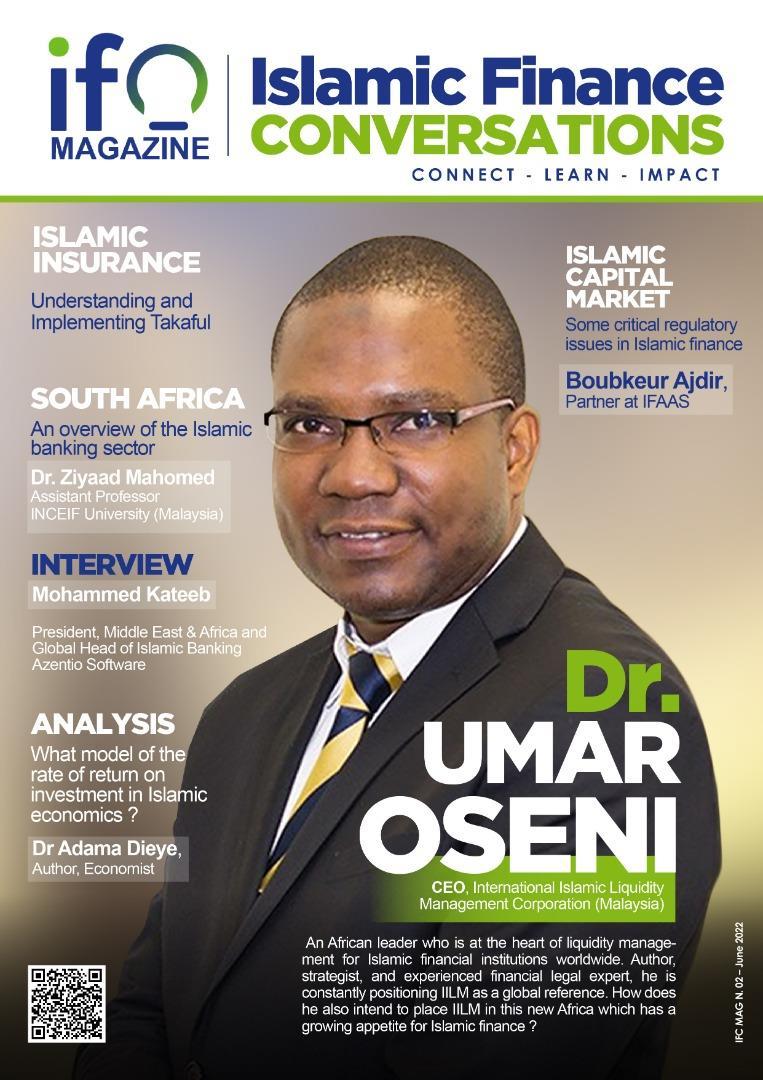 By Sory TOURE
By Sory TOURE
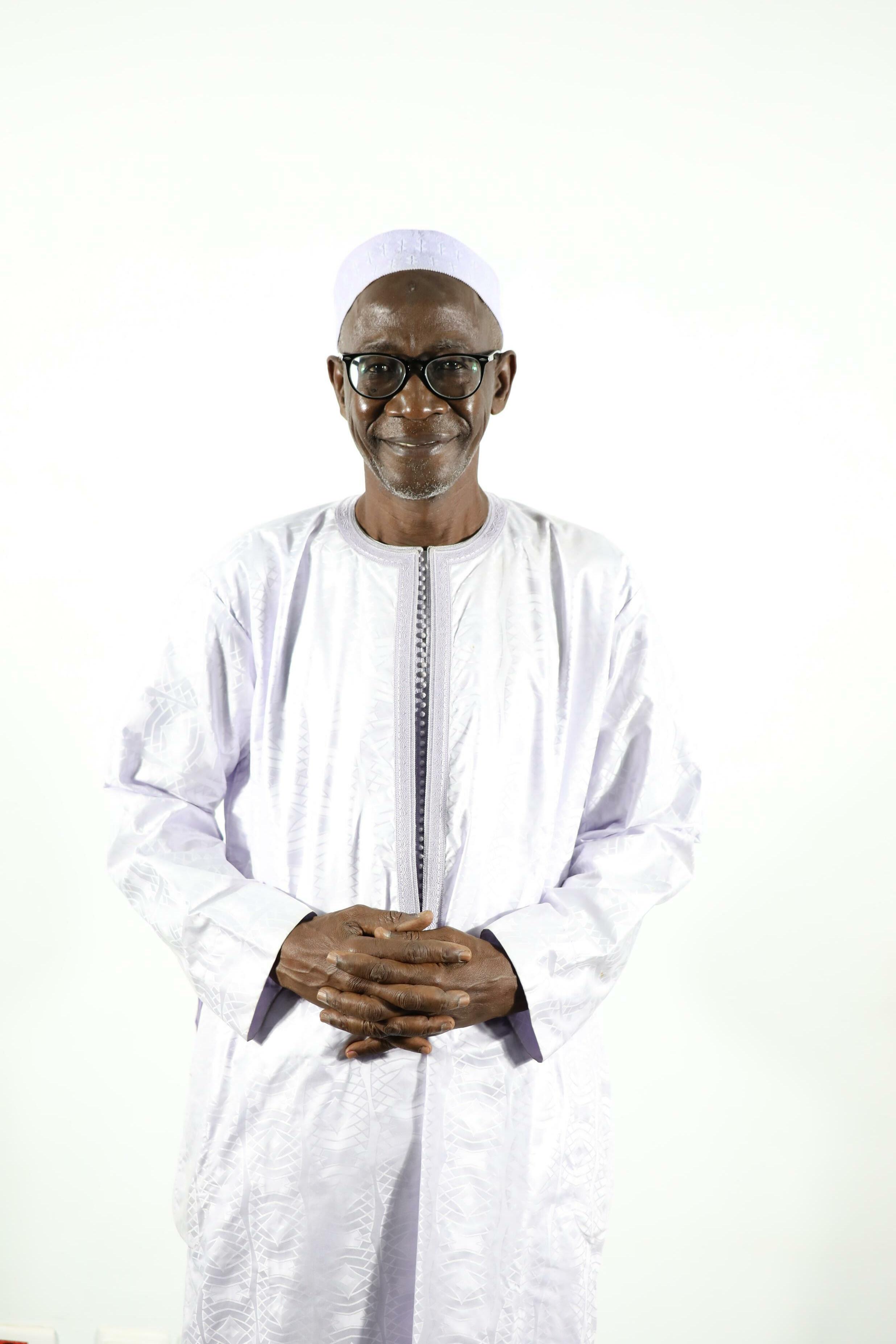
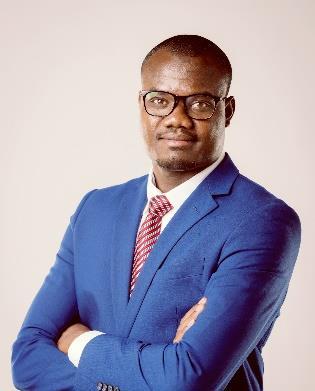
SOUTH AFRICA
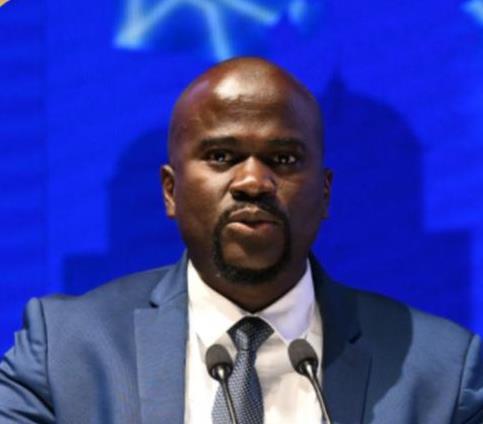
HALAL BUSINESS

THOUGHTS
FINTECH

Software Table of Contents Pages 04
INTERVIEW Mohammed KATEEB President Middle East and Africa, Azentio
EDITORIAL
08 NEWS Updates on Islamic financein Africa and around the globe 12
Dr Ziyaad Mahomed Islamic Finance in South Africa: Time to Move Forward 22 12 18 What model of the rate of return on investments in the Islamic economy? ISLAMIC ECONOMY Dr. Adama DIEYE, Economist, Author
Lagassane OUATTARA Senior Investment Officer, IsDB The March towards the first Ivorian Sovereign Investment Vehicle
DIOUF President, Halal Sénégal Halal Certification in West Africa: Issues and Impacts on Free Trade among OIC Member Countries
Dénéba
2 IFC MAGAZINE - JULY 2022 28
Dr Ziyaad Mahomed
CEOA
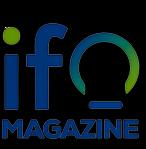

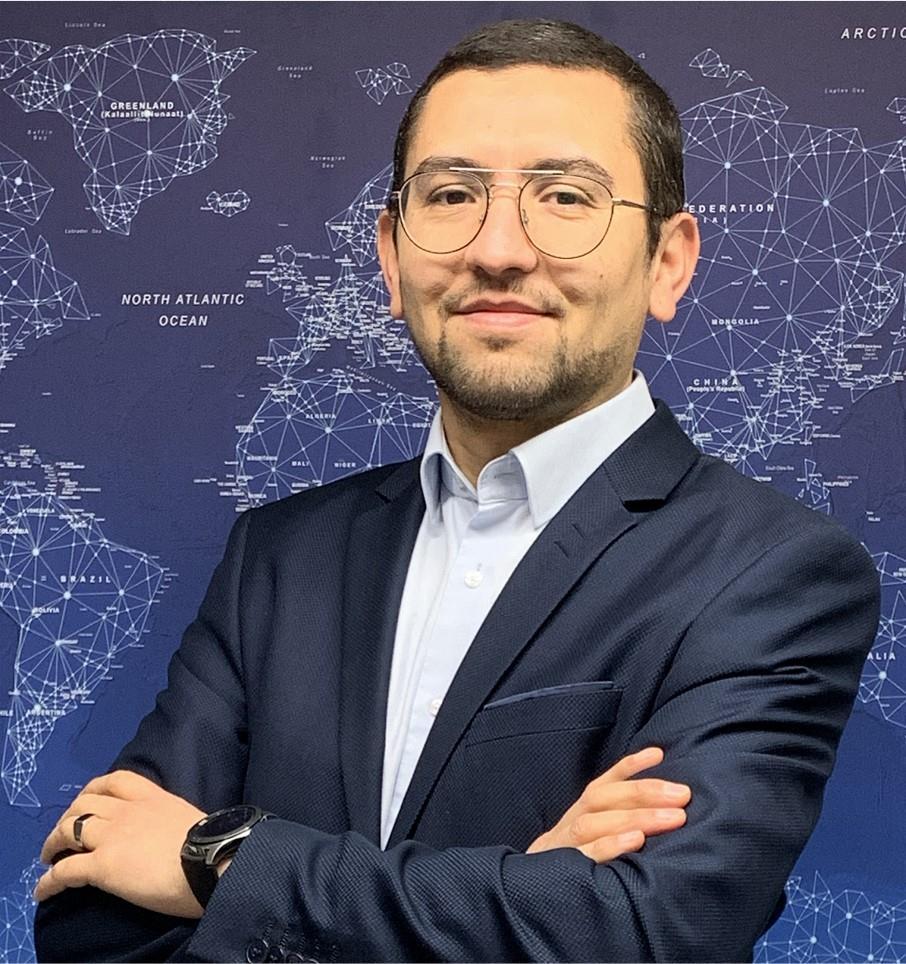




80 SOCIAL FINANCE 38 Interview: Dr Umar Oseni CEO, International Islamic Liquidity Management Corporation ISLAMIC CAPITAL MARKET Some fundamental regulatory issues in Islamic finance 38 50 Analysis: Takaful Insurance as a Tool for Financial Inclusion 73 Abidjan Takaful Conference: Throwback 54ISLAMIC INSURANCE Understanding and implementing Islamic insurance 54 62 62 38 50 88 LIBRARY 89 AGENDA Interview : Ezzedine Ghlamallah 76 Dr Umar OSENI CEO, International
Liquidity Corporation (IILM) Boubkeur AJDIR 76 Ezzedine GHLAMALLAH 73 Maguette SAKHO What partnerships between Development Institutions and Zakat Funds to achieve the Sustainable Development Goals? 3 IFC MAGAZINE-JULY 2022
Islamic
Islamic finance is gaining momentum in Africa!
Dr Umar Oseni, IILM Corporation (Malaysia), asserts that "Africa stands to benefit from our drive to penetrate new markets for diversification benefits and scalability, which Africa is on our top priority list '' He is not the only one nurturing this ambition; Africa is of interest to several other financial institutions and industry players.
Africa is on the move! It is moving and growing, and so is Islamic finance Indeed, the Islamic finance industry in Africa is not yet as developed as in other parts of the world (Europe and Asia) Nonetheless, this should not overshadow the growing momentum that we have seen through numerous activities across the continent. Islamic finance is positioning itself as a viable and increasingly sought-after leverage to boost Africa's development.
Staying true to our vision of Connect Learn Impact, we bring you timely coverages on several sectors of Islamic finance in this second quarterly of IFC MAGAZINE.
In this vein, in an exclusive interview, Dr Umar Oseni, head of an international liquidity management organisation for Islamic financial institutions, talks about his experience and ambition with prospects for Africa Mr Boubkeur Ajdir's article on the Islamic capital market addresses some of the structural regulatory issues facing Islamic finance

To proceed, we are led into an eye-opening discussion on innovation and Fintech with their tremendous potential for Africa by Mr Mohammed Kateeb, President, Middle East and Africa, and Managing Director of Islamic Finance at Azentio Software, the first fully Islamic core banking provider (already present in Africa)
Dr Adama Dieye shares his expert view on the thorny issue of the rate of return on investments in the Islamic economy and the alternative to LIBOR, which has been used as a benchmark in many Islamic financial institutions Consequently, the Governor of the Central Bank of Bahrain, Mr Rasheed Mohamed Al Maraj, said on this matter at the 20th annual conference of the Shari'ah Board of AAOIFI (The Accounting and Auditing Organisation for Islamic Financial Institutions): "I believe it is time for the industry to try to address one of the strongest and most common criticisms from the public about the use of traditional benchmark rates for Islamic transaction pricing It is admittedly more complex and subtle than just using a money market reference price, but it is the right thing to do "
A focus on Islamic insurance will enable readers to understand this new industry that is evolving with a more inclusive value proposition that resonates with African cultures As such, Maguette Sacko sees Islamic insurance or Takaful as a vehicle for financial inclusion, which will de facto help improve the overall relatively low penetration rate of insurance Also included are the highlights of the Abidjan Takaful Conference 2022 forum entitled: Harnessing the Potential of Takaful for Economic Inclusion and Sustainable Development in Africa
The spotlight on South Africa comes from Dr Ziyaad Mahomed, who takes us down the history lane of the industry's development
Finally, this issue is packed with other articles and columns that we hope will benefit many. Given this general enthusiasm on the part of Islamic finance organisations and players, is there not a need for further actions and initiatives by all stakeholders to enhance synergy for the sustainable development of the industry?
Happy reading!
Editor-in-Chief

4 IFC MAGAZINE-JULY 2022

Editor-in-Chief sory.toure@dexterityafrica.com Managing Editor muhammed.jimoh@ dexterity-africa.com Editorial Secretaries Tenan tenan.soro@ dexterity-africa.com salomon.nouaman@ dexterity-africa.com Correction muhammed.jimoh@ dexterity-africa.com pefagneli.sanogo@ dexterity-africa.com Marketing and Sales publishing@ dexterity-africa.com Contributors Infographics yannickachille222@ gmail.com Published by Dexterity Africa Abidjan Côte d’Ivoire Contacts Tel +225 27 22 558 120 Email: publishing@dexterity-africa.com 5 IFC MAGAZINE-JULY 2022 Previous Issue
There is no doubt that Islamic social finance has the potential to achieve human development through financial inclusion and shared prosperity. In order to unlock the full potential of it, there is need to understand the challenges we face in the world in the implementation of it.
In Islamic banking, there is no black box that needs a genius to unwind it. Many of these conventional products that have been under stress lately are very complex and need special risk management tools. In Islamic banking, you will not have this kind of thing. Some of these products would not be sharia accepted.
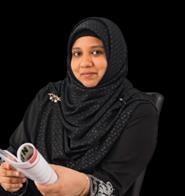

6 IFC MAGAZINE-JULY 2022
Islamic finance can, in principle, become a factor of financial stability because risk-sharing reduces the debt ratio, and the exchanges are backed by tangible assets and therefore fully guaranteed.
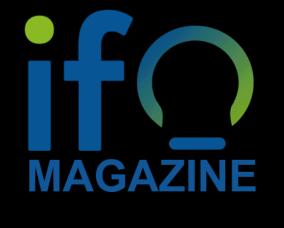
All that we had borrowed up to 1985 or 1986 was around $5 billion and we have paid about $16 billion yet we are still being told that we owe about $28 billion. That $28 billion came about because of the injustice in the foreign creditors’ interest rates. If you ask me what is the worst thing in the world, I will say it is compound interest.


7 IFC MAGAZINE-JULY 2022
In her capacity as President of the National Accounting Council (CNC), Nadia Fettah Alaoui, the Moroccan Minister of Economy and Finance, has authorized, through a ministerial decree, the amendment of the accounting plan on insurance to take into account the entry of Islamic insurance (Takaful) in the market This amendment, following the introduction of Takaful, aims to support the sharp growth of the participatory finance sector in the country The amendments to the accounting plan will take effect from the date of publication of the decree of the Minister of Economy and Finance amending and supplementing the decree of the Minister of Finance and Privatization No 1493-05 of 20 October 2005 on the accounting plan for insurance
their needs for efficient care. Also, in a win-win type of partnership and through ADM, PROMISE intends to promote its actions and innovative products to a segment of the population that does not have access to conventional financing






The Islamic Microfinance Development Programme in Senegal (PROMISE) and the Municipal Development Agency (ADM) signed a partnership agreement on 15 June 2022 for five (5) years. The signing ceremony was attended by Ms Fatou Diané, Coordinator of PROMISE and Mr Cheikh Issa Sall, Director General of ADM By entering into this partnership, PROMISE's objective is to benefit from ADM's expertise and experience to be able to quickly reach vulnerable communities and identify
Organised by the Ministry of Planning and Development with the aim of mobilising the resources necessary to finance the 2021-2025 NDP (National Development Planning), the Consultative Group, which convened on 15 June 2022 at the Sofitel Hôtel Ivoire, Abidjan, brought together all the country's bilateral and multilateral financial partners Among the main actors present at this high-level gathering was the Islamic Development Bank (IsDB), which announced through its Vice-President in charge of operations, Mr Mansur Muhtar, the disbursement of USD 2 billion for the financing of the NDP It should be noted that the financing intentions gathered from the various partners were evaluated at more than francs CFA 15,000 billion against the expected francs CFA 9,335 6 billion, i e , a mobilisation rate of a little over 168%. The success of this Consultative Group is real hope for the Ivorian authorities as regards the effective mobilisation of the resources planned for the implementation of the 3rd NDP The objective of the latter is to achieve the economic and social transformation necessary to raise the country, by 2030, to the rank of upper-middle-income countries.
NEWS
The
❖ $70 billion spent on cosmetics ❖ $100 billion spent on pharmaceuticals ❖ $231bn in media expenditure ❖ $102 billion spent on tourism ❖ $295bn spent on Modest Fashion ❖ $1270 billion in food expenditure ❖ + USD 2,000 billion in total expenditure in 2021 ❖ 8.9% growth in 2021 8 IFC MAGAZINE-JULY 2022
State Global of the Islamic Economy Report in 2021 (SGIER, 2022)
The National Shipping Company of Saudi Arabia (Bahri) has announced the issuance of a Corporate Sukuk. Denominated in Saudi riyals (SAR), the value of this Sukuk, to be determined by market conditions, is estimated at SAR 3.9 billion. Launched on 16 June, the subscription period for the offer runs until 21 July 2022 Subscription to the offer is reserved explicitly for institutional investors as defined by the regulations of the Capital Market Authority (CMA) The offer has a nominal coupon value of SAR 1 million and a maturity of 7 years Al Rajhi Capital, HSBC Saudi Arabia, and SNB Capital were retained to arrange the subscription operations.
The Malaysian bank Muamalat, on Tuesday, 24 May 2022, launched its first Shari’ah-compliant digital gold investment platform allowing customers to invest in gold via mobile quickly. The application, called EasiGold, deployed in collaboration with ACE Capital Growth, aims to promote gold as a safer investment alternative for the public in the face of economic uncertainty According to Zury Rahimee Zainal Abiden, head of the retail banking division, the platform is open to the bank's customers and to people interested in investing in gold The platform is expected to attract up to 350,000 customers within 12 months. The platform also offers a real-time gold price display that allows customers to buy and sell London Bullion Market Association (LBMA) certified 999 9 purity gold at spot prices
On 23 May 2022, a Memorandum of Understanding (MoU) was signed to strengthen collaboration on the free trade zone in Azerbaijan. The signatories of this MoU are The Islamic Corporation for the Development of the Private Sector (ICD), the private sector arm of the Islamic Development Bank (IsDB) Group and the Alat Free Economic Zone Authority (AFEZA), the authority in charge of regulating investments in the Alat Free Economic Zone The agreement was signed at the ICD headquarters by Mr Ayman Sejiny, CEO of ICD, and Mr. Valeh Alasgarov, CEO of AFEZA. On the one hand, the agreement will enable ICD to meet the growing demands of companies registered with AFEZA by providing them with access to a diversified source of financing On the other hand, both parties agree to explore the possibility of organising joint activities to promote AFEZA to the member countries of the Organisation of Islamic Cooperation (OIC). The MoU will also enable both parties to collaborate and conduct joint consultations to develop specific instruments to achieve the common goals It should be noted that the ICD is a multilateral development finance institution established in November 1999 With a capital of USD 4 billion, its aim is to foster sustainable economic growth in the 55 member countries


Digital financial platform Marhaba DeFi Network (MRHB) has launched the world's first Shari'ahcompliant certification of Non-Fungible Tokens (NFTs) The initiative will bring more transparency to the process of certified companies as it gives them the ability to prove to customers the Shari'ah compliance of their business practices. This certification aims to gain acceptance over time for the use of certain crypto-currencies whose Shari'ah compliance is still a matter of controversy among scholars of Muslim business law With this new development, MRHB's intention is to make the most of the resources of the Islamic economy in crypto-currencies
ICIEC (Islamic Corporation for the Insurance of Investment and Export Credit), and IFTI (International Federation of Islamic Takaful and Insurance Companies), signed a Memorandum of Understanding (MoU) on 22 May 2022 in Saudi Arabia to boost the Takaful insurance sector.
The signing of the MoU was done in the presence of Mr Oussama Kaissi, Director General of ICIEC, and Mr Reda Amin Dahbour, President of IFTI The main objective of the agreement is to promote Takaful and to help IFTI member institutions provide the best solutions and services by building the technical capacity of the Islamic insurance workforce Established in 1994, ICIEC remains the world's only multilateral Shari'ah-compliant insurer providing a full range of insurance solutions to corporate and individual customers in all 48 member states
9 IFC MAGAZINE-JULY 2022
Islamic Finance Intelligence
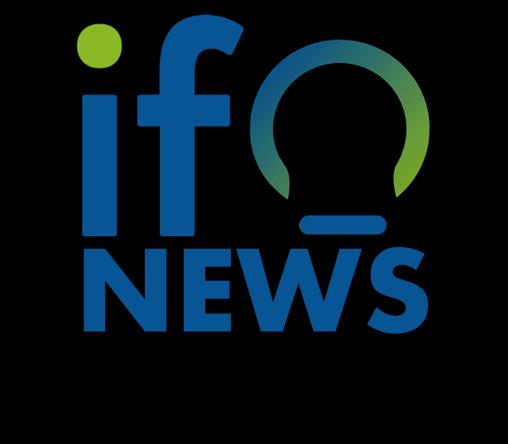
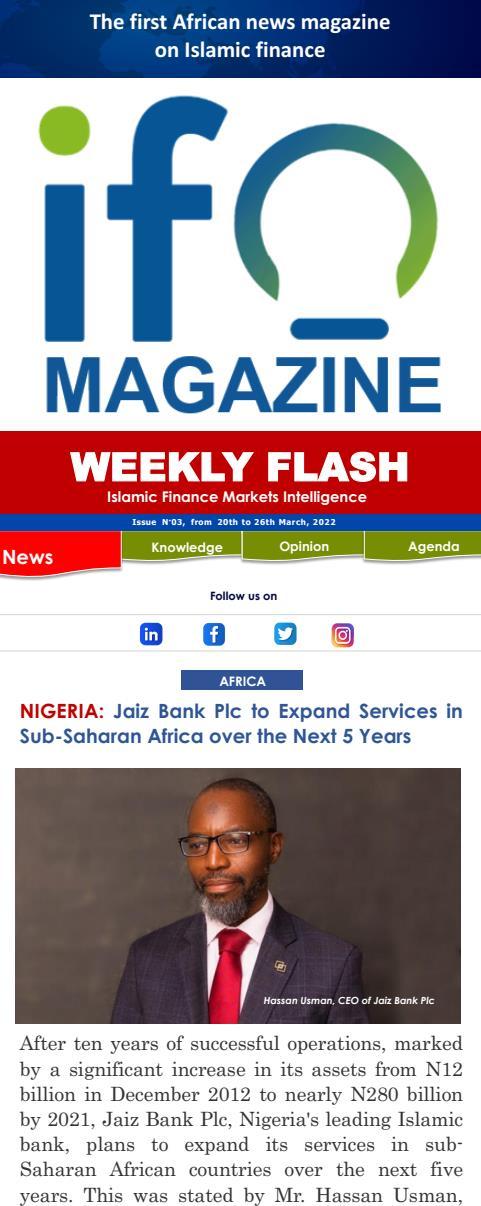



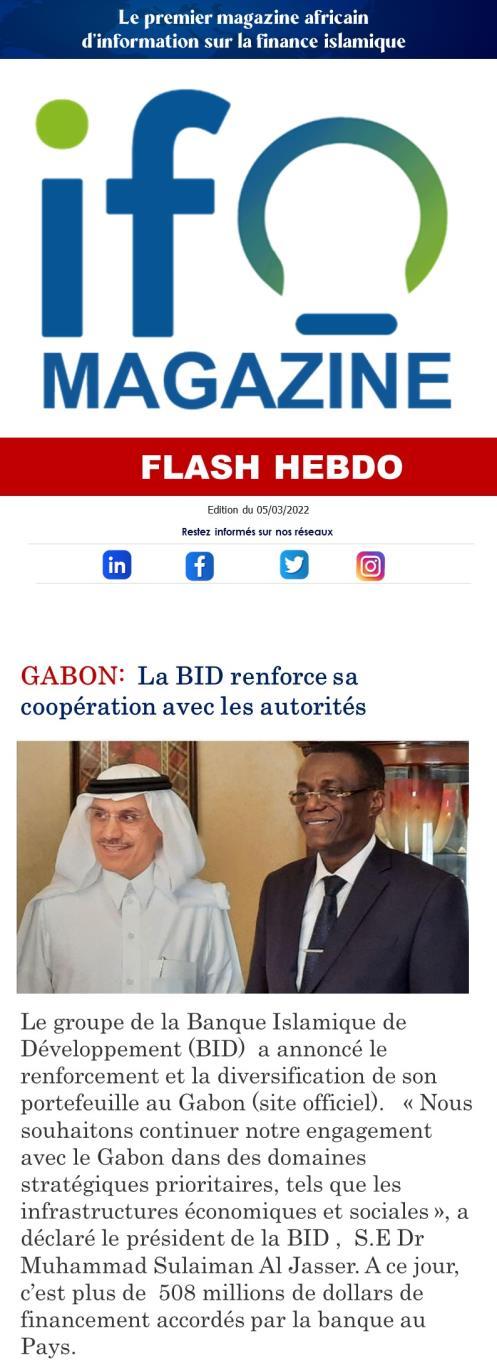
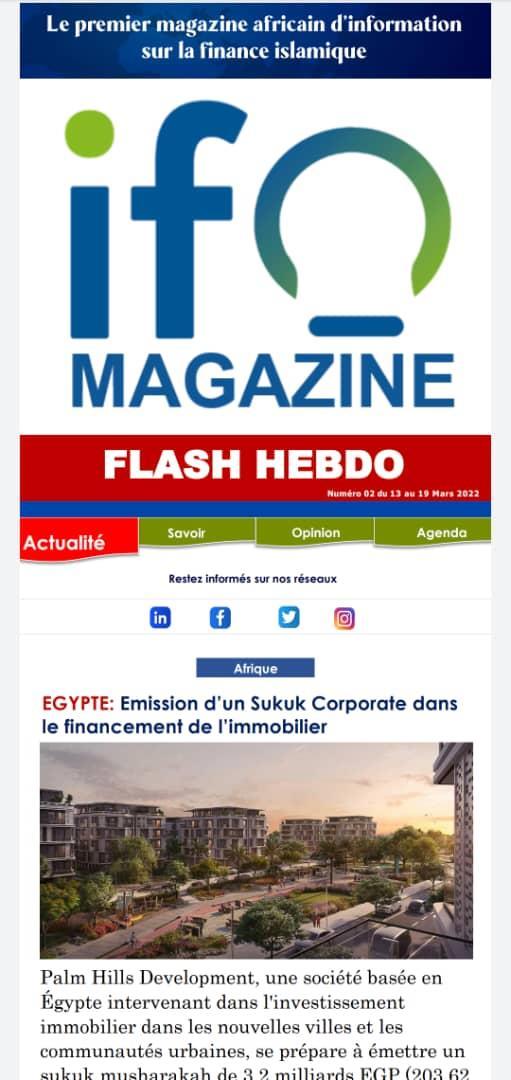
THE WEEKLY
Every week, understand the dynamics of Islamic finance markets in Africa and around the world and seize new opportunities.



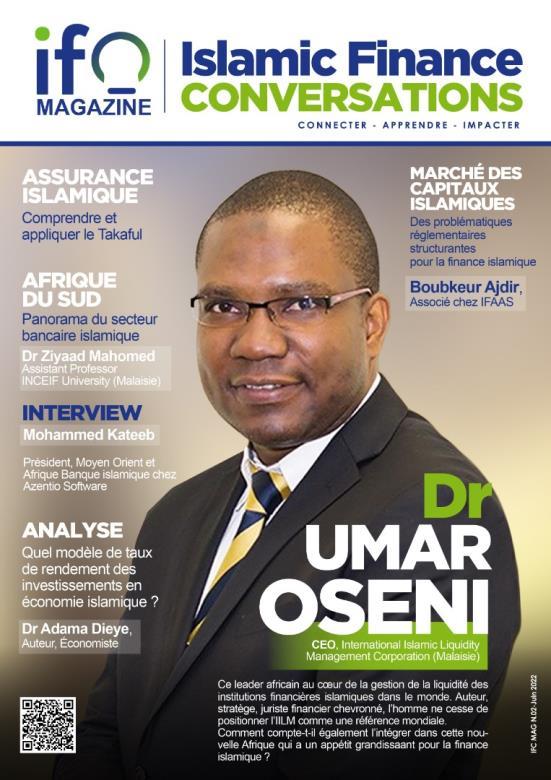
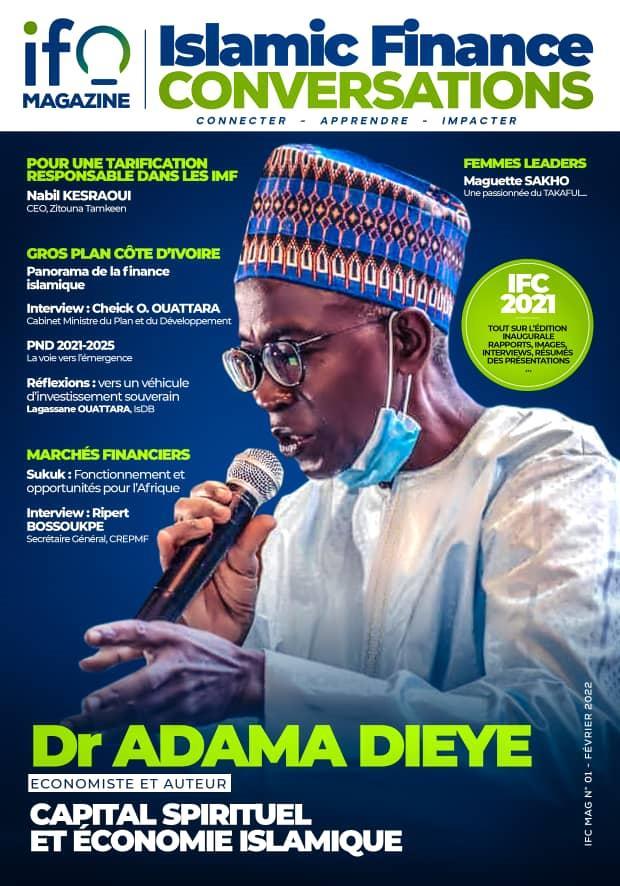
Français - English THE FIRST AFRICAN NEWS MAGAZINE ON ISLAMIC FINANCE News-Analysis-Surveys-Interviews Reports-Trends-Coverage-Features PROMOTE YOUR ORGANISATION OR INSTITUTION THROUGH OUR SERVICES: ADVERTISING, REPORTING, PARTNERSHIPS AND SPONSORING. THE QUARTERLY


Islamic Finance in South Africa
With
Mahomed Dr. Ziyaad
13 IFC MAGAZINE-JULY 2022
Islamic Finance in South Africa: Time to Move Forward

MILESTONES
IslamicBanking
As a country made famous for its unique landscape, significant mineral wealth, and tumultuous history of apartheid, South Africa has remained a bastion of sophisticated financial services and stringent financial regulation in Africa. Islamic finance has also gained a firm foothold in the country, serving a minority Muslim community of less than 3% of the population or 1.8 million adherents. South
IIslamic banking in South Africa was off to a shaky start, stumbling over its first effort, Jaame Limited, launched in 1980 and liquidating due to financial challenges soon after. Unfortunately, the second effort also ended in disaster, providing a unique case study for academics for decades to come (only a handful of Islamic banks have ever collapsed internationally). Islamic Bank Limited was granted banking status in 1988, failing 9 years later and leaving a trail of tears, distrust,
14 Outlook
.
(+-USD500 million) in 2021. Growth in the sector was sluggish until 2003, when First National Bank (FNB) began offering Shari'ah-compliant motor vehicle finance through Wesbank. FNB launched the first Islamic banking window in the country in 2004, followed by Islamic windows at HBZ Bank in 2005 and ABSA in 2006. Standard Bank (the largest bank in Africa) launched its South African Islamic banking offering in 2016 but was already active in Tanzania and Nigeria much earlier.
By June 2020, BASA (Banking Association of South Africa) reported that Islamic deposits stood at ZAR37 billion, up from ZAR 23 billion in December 2018; and Islamic Financing reached ZAR14.6 billion (Al Baraka contributed approximately ZAR8 billion (Islamic bank window data was not available), an increase of ZAR4 billion from 18 months earlier.

Takaful
An essential service supporting asset finance is asset cover, though conventional insurance is impermissible in Islamic law. Takafol South Africa offered the country's first Shari’ah-compliant asset protection in 2005. Since no Islamic insurance regulation exists, the company operated under the Short-Term Insurance Act through a unique Shari'ahcompliant model integrating Wakalah (agency) and Waqf (endowment). Several takaful offerings are now available in the country. The most significant recent announcement was the launching of Shari'ahcompliant medical aid by the largest medical insurance provider in the country: Discovery Health (launch expected in June 2022). By 2020, total Takaful contributions were estimated at ZAR145 million, with approximately 6,500 participants nationwide.
IslamicAssetManagement
Shari'ah-compliant asset management has also blossomed in South Africa, first introduced in 1992, then with Oasis Asset Management in 1997, and the Futuregrowth Al Baraka Equity Fund in 2003. By 2021, 25 Shari’ah-compliant domestic general equity sector funds, balanced funds, and property funds have been established. Shari'ah Compliant Unit Trusts managed over ZAR35 billion in assets in 2020.

Sukuk
The South African Sukuk market is underdeveloped, unlike its African neighbours like Nigeria and The Gambia, which have issued several sovereign and corporate issuances. However, the National Treasury did issue a USD500 million Sukuk in 2014 and Al Baraka issued the first corporate Sukuk in 2018 (ZAR200 million).
Regulation
No specific Islamic finance regulation exists in South Africa and Islamic Financial Institutions operate under conventional licenses. However, Section 24JA of the Income Tax Act No 58 of 1962 was introduced in 2010, recognising diminishing Musharaka, Mudharaba, Murabaha, and Sukuk. Other amendments to Value Added Tax (VAT) and the Transfer Duty Act (No 40 of 1949) brought relief for any double taxation arising from first sale purchases for Islamic banks. The impact facilitated better parity between conventional and Islamic banks, effectively lowering costs for customers.
Outlook
sur l'impôt sur le revenu (Income Tax Act) n° 58 de 1962 a été introduite en 2010, reconnaissant la diminution des musharaka, mudharaba, murabaha et sukuk. D'autres amendements à la taxe sur la valeur ajoutée (TVA) et à la loi sur les droits de transfert (n° 40 de 1949) ont permis d'alléger toute double imposition découlant des achats à la première vente pour les banques islamiques. Ces modifications ont permis d'améliorer la parité entre les banques conventionnelles et les banques islamiques, réduisant ainsi les coûts pour les clients.
Défis
Après plus de 30 ans de finance islamique dans le pays, des défis importants subsistent. Les produits et services ont été centrés sur les structures bancaires de base fondées sur le partenariat et la dette, les banques islamiques ayant opté pour une approche plus conservatrice de l'innovation. Le marché local a eu des difficultés à se développer, et certaines de ces difficultés ont été élaborées davantage:
proposées en Indonésie (BMT), au Soudan ou au Bangladesh n'ont pas encore pénétré le marché sud-africain.
- Le Life Takaful est un instrument populaire à l'échelle internationale, mais il n'est pas disponible en Afrique du Sud.
- Il existe peu ou pas de produits de financement personnel.
- Aucun Sukuk souverain libellé en Rand n'a été émis dans le pays, et un seul Sukuk d'entreprise a été émis, alors que des pays africains moins matures ont établi des marchés de Sukuk.
- Le renforcement des capacités est faible, ce qui se traduit par la gamme de produits limitée et restreint également l'innovation.
- Les conseils de la charia dans le pays sont dominés par une poignée d'érudits de la charia connectés depuis l'introduction, ce qui contribue potentiellement aux défis auxquels l'industrie est confrontée. La plupart des érudits qui occupent des postes dans les conseils de la charia ont peu ou pas d'expérience en finance.
- La communauté musulmane sud-africaine a une compréhension limitée de la finance islamique.
- Le développement de stratégies de durabilité axées sur la finance islamique est limité, voire inexistant.
Figure 1: Total des actifs et passifs bancaires islamiques pour 2021
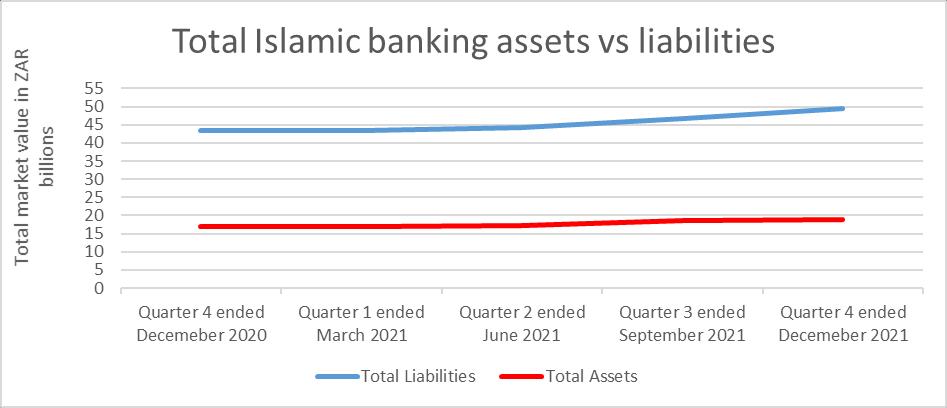
Source: BASA (2021)
- Les excédents de liquidités ont été particulièrement difficiles à gérer en raison du nombre limité d'instruments de trésorerie conformes à la charia. L'inadéquation entre l'actif et le passif a continué à se creuser en 2021 (voir figure 1).
- Les produits destinés aux micro et petites entreprises ont été limités, et les solutions de microfinance islamique holistiques comme celles
Allerdel'avant
Les solutions de finance islamique offrent des avantages significatifs par rapport à leurs homologues conventionnels car elles contribuent à l'édification d'une nation juste, éthique et morale. Les IFI sud-africaines ont progressé.
16 IFC MAGAZINE-JUILLET 2022 Outlook
untapped broader South and Southern African community are mostly unaware of the advantages of Islamic finance. For South Africa to move to the next stage of Islamic finance development, significant introspection is required. This begins with Islamic corporate value intent based on the Maqasidic approach (Islamic legal objectives), firmly rooted in socioeconomic empowerment, promoting an entrepreneurial mindset, and building a sustainable and responsible industry. With external exposure, practitioners may recalibrate and expand the sector, whilst Shariah Boards must diversify and develop through international capacity. Existing regulation
requires substantial revision if Islamic finance is to grow, broadening the product dispensations, removing barriers to Sukuk issuance, and assuring tax certainty. Providing an enabling environment for Islamic fintech solutions may be significantly advantageous as established IFIs may reach an untapped market through fintech incubation and collaboration. The South African Islamic finance sector has made significant strides since it stumbled in the 80s and 90s and has supported a minority Muslim community effectively in the past. It is time to move forward.

17 IFC MAGAZINE-JULY 2022
Outlook
Halal Certification in West Africa: Issues and Impacts on Free Trade among OIC Member Countries
The problem
The trade of Halal products has entered a phase of unprecedented growth in recent years. It has recorded a growth of 25% with a portfolio of more than US$3.6 trillion, with one-third of this amount coming from Halal food products, and forecasts of more than 40% growth in the next five years.
In a context where multilateralism is stalling, the rush toward regional and bilateral trade agreements is increasing. Especially since the unconditional supporters of multilateral agreements, the United States and Japan, have abandoned their initial reluctance. As a result, a new era of economic partnership agreements has opened up.
Today, it must be acknowledged that the Organisation of Islamic Cooperation (OIC) member states are not left behind. Their regional economic integration is again on the agenda
agenda through implementing the Protocol on the Preferential Tariff Scheme (PRETAS) for the Trade Preferential System (TPS) among the OIC member countries. The TPS is an appropriate way to achieve the free trade area project to open a new era in trade cooperation among Islamic countries, particularly in sub-Saharan Africa.
The Halal production industry is probably one of the most dynamic in the world. The partnerships with

From a niche market to a mainstream market, halal is going global
18 IFC MAGAZINE-JULY 2022
African Muslim countries are often more dependent on interstate affinities in bilateral cooperation and assistance rather than the private sector's economic opportunism based on the strengths of a sustainable business relationship. Yet the African continent offers resources in terms of human capital, inputs, raw materials, and development opportunities that could form the basis of a new attractiveness for several other countries of the Organisation of Islamic Cooperation (OIC).
Challenges
SMEs play an essential role in all economies as they drive growth,
generate employment, generate employment and raise living standards. As far as women are concerned, they can achieve economic empowerment if their SMEs receive support. It is estimated that 500 million new jobs will be created by 2030. A significant proportion of these jobs will be in the Organisation of Islamic Cooperation (OIC) member countries, where 60% of the population is under 30 years of age. Supporting SMEs/SMIs in West Africa by taking on the responsibility for standardisation and certification could be an excellent vector for growth.
While many market sectors are experiencing increased saturation and competition, the halal sector in West Africa, as elsewhere in the world, is evolving. The sector brings about new opportunities and rules and gives agile and enterprising SMEs the chance to connect with this new market.

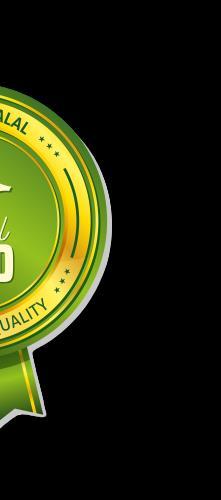
19 IFC MAGAZINE-JULY 2022
It is estimated that 500 million new jobs will be created by 2030. A significant proportion of these jobs will be in the Organisation of Islamic Cooperation (OIC) member countries.
However, the halal sector poses its own challenges that newcomers may encounter: different ways of interpreting religious rules, different standards, and constantly changing regulatory frameworks. By shedding light on these issues, West African countries (a market of about 250 million consumers) will be able to implement a sub-regional strategy on halal business to accompany the actors and raise the level of trade within the OIC countries.
Opportunity and Impact
The adherence level of the governments of the OIC member countries in West Africa and their understanding of the halal sector as well as institutional capacity building within the halal sector is a crucial factor for success.
The primary role of a Trade and Investment Assistance Institution (TII) such as the Islamic Centre for the Development of Trade is to promote and facilitate trade, finding ways to connect businesses with potential buyers. Trade exhibitions like the World Halal Summit are well-established and proven venues. Similarly, halal food and beverage fairs have become a significant player in the industry over the past decade. Initiatives that help companies from the same country to come together to exhibit their products in a joint stand are helpful. However, the benefits of these gatherings can be maximised
The choice of standards that a manufacturer decides to adopt and the certifying body to issue the certificate of conformity must be carefully considered, especially when exporting to West Africa.
West African manufacturers who are serious about successfully entering the market need to
keep abreast of discussions and decisions taken at national, regional, and international levels regarding halal compliance and quality. Exporters do not want to find themselves, as in the past, with whole containers ready to be shipped but whose goods are no longer considered halal by the authorities of the importing country.
Priority and favourable areas for halal business entrepreneurship in West Africa
Agribusiness and the tourism economy have been identified as essential growth sectors for halal business in relation to the economic development policies of WAEMU and ECOWAS countries.
Perspectives
• Anchoring the dynamism and innovation of SMEs/SMIs in West Africa in the growth policies of OIC countries as well as in their current priorities in terms of job creation among youth and women;
• Harmonising the halal standard in West Africa and creating national, sub-regional, and intra-Umma strategic alliances to penetrate large markets and be competitive;
• Establishing a sub-regional strategy on Halal business and an Observatory of the Halal market's evolution in West Africa.
20 IFC MAGAZINE-JULY 2022
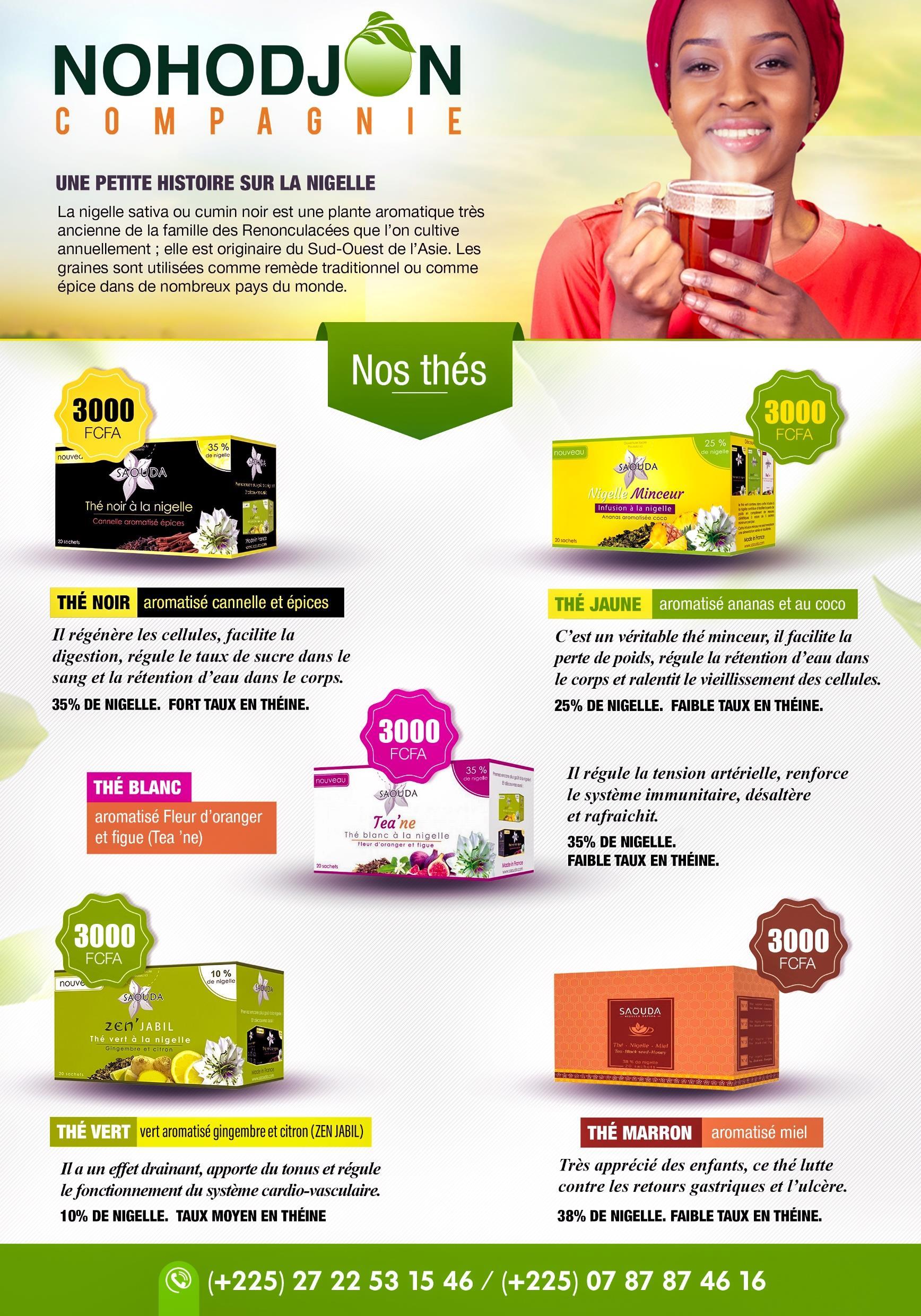


Islamic
Economics
By
DIEYE
What model of the rate of return on investments in the Islamic economy?

The announcement made in July 2017 by the Director-General of the UK's Financial Conduct Authority (FCA) that the market needs to abandon LIBOR as an interest rate benchmark by the end of the year has reignited the issue of determining benchmark rates for economic and financial transactions in the Islamic economy. The announcement by the Financial Conduct Authority was accompanied by proposals to replace LIBOR with what was termed "backwards-looking overnight riskfree rates" (i.e. the Secured Overnight Financing Rate (SOFR) for USD transactions and the Sterling Overnight Index Average (SONIA) for GBP transactions). Generally speaking, the approach raises essential practical and methodological issues, to which must be added, for Islamic finance institutions, the Sharia issues involved in determining a risk-free rate. Indeed, IBORs (Interbank Offered Rates) are "forward" rates, which means that the rates are fixed and publicly available at the beginning of each calculation period. In contrast, RFRs are overnight rates, and - at this stage - the market consensus is that a forward rate can only be produced on a "backwardslooking" basis, meaning that an RFR would be determined based on historical data at the end of each calculation period. This would result in uncertainty about the price of a transaction, which according to Sharia rules, must be determined when a
service is agreed upon, or an actual transaction occurs.
In this context, it appears that it is time for the Islamic financial system to abandon conventional reference rates and instead establish an alternative reference rate consistent with Shariah principles.
From a broader perspective of the Islamic macroeconomic framework, due to the prohibition of fixed and predetermined income (such as interest rates), the determination of a rate of return that compensates the owners of public or private assets (or even both) has created a central issue that has quickly captured the attention of Islamic economic scholars and practitioners. The issue goes beyond the financial sphere to include aspects of macroeconomic policy design. In this regard, Askari et al. (2014) show that an increase in the rate of return on investment would lead to an increase in investment spending, which would result in an increase in aggregate demand and, consequently, desired output levels. The availability of this indicator makes it possible to incorporate medium- and long-term economic growth considerations into the technical work through the specification and estimation of a longterm relationship that positively links gross domestic product (GDP) to the rate of return on investment in the real sector of the economy (Dieye, 2020). Among these pioneering works is the work of Khan and Mirakhor (1989).
They established that the rate of return on financial assets is determined by the rate of return on the real sector of the economy that serves as a benchmark for investment decisions. Several approaches have been widely discussed at the macro and sectoral levels, ranging from simple ratios to more complex market indices. One method suggested by Haque and Mirakkor (1999) would be to estimate the overall rate of return based on the market index return on capital in well-developed financial markets.
However, for many other developing countries, financial markets are not sufficiently developed and do not allow the use
IFC MAGAZINE-JULY 2022 24
Islamic Economics
From a broader perspective of the Islamic macroeconomic framework, due to the prohibition of fixed and predetermined income (such as interest rates), the determination of a rate of return that compensates the owners of public or private assets (or even both) has created a central issue that has quickly captured the attention of Islamic economic scholars and practitioners.
of this method. In practice, these limitations have motivated the use of an alternative (Bai Chong-En et al. 2006) to estimate a rate of return on capital as a proxy for the rate of return on investment in the real sector (Dieye, 2020).
Recent literature has suggested using indicators referring to the economic growth rate, the producer price index, the bank profit rate, and even the Zakat collection rate.
Undoubtedly, much more theoretical analysis and empirical validation will be needed.
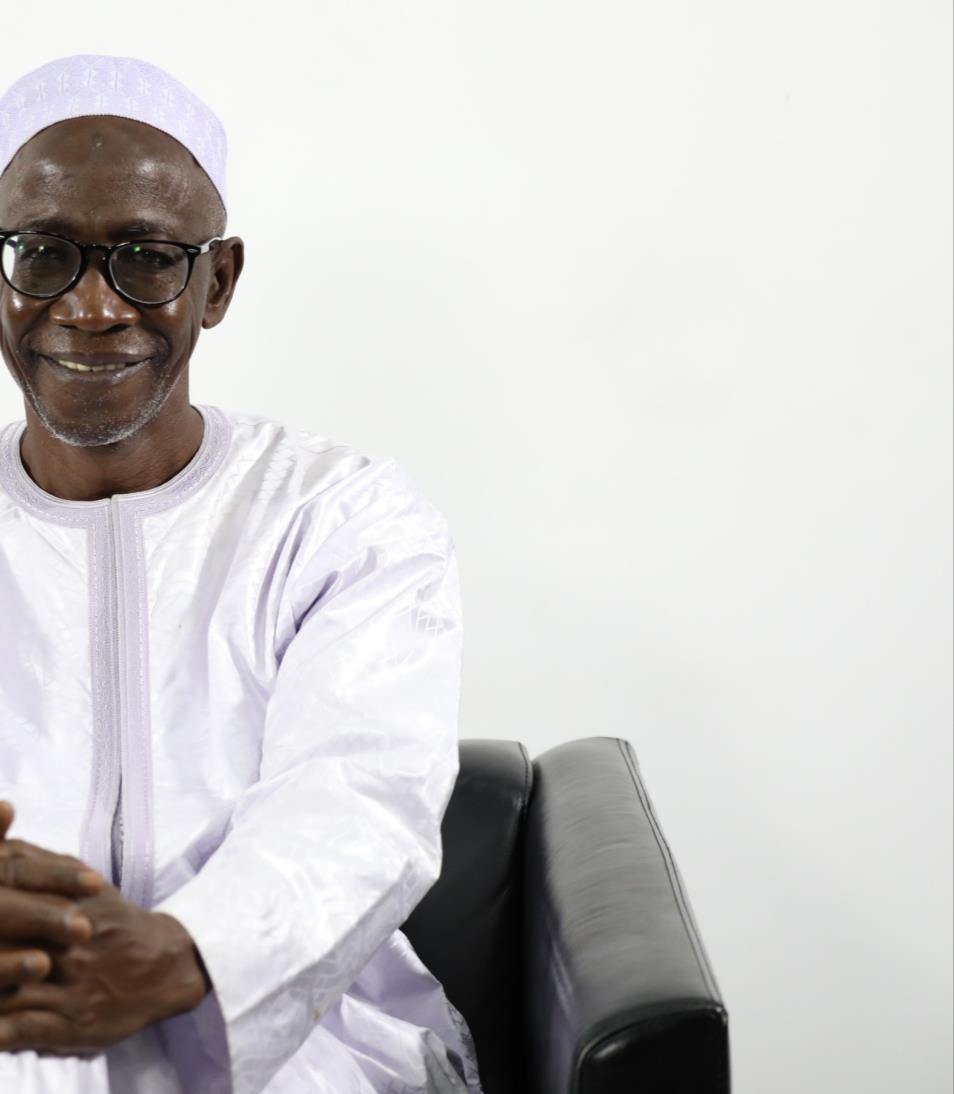
IFC MAGAZINE-JULY 2022 25
Islamic Economics
Lagassane Ouattara
Senior Investment Officer Islamic Development Bank
The March towards the first Ivorian Sovereign Investment Vehicle

Stage 2 : Mobilisation of Resources
The conceptual foundations of the first Ivorian sovereign fund were laid in a previous article This fund will position itself as the operational leverage of the State's policy to acquire stakes in the private sector. In this article, we propose analysing the possible financing channels that will enable the fund to be endowed with significant financial resources commensurate with its ambitions
The financing of the strategic fund will have to be based on resources from various sources outside the state budget. The aim is to use under-exploited funds that do not fit into the traditional budget financing channels to make them yield a profit through profitable investments. In this regard, the different types of resources to target are the following:
recently set up, will undoubtedly play a fundamental role in centralising these resources, part of which could be allocated to the sovereign wealth fund. The fund managers will be saddled with the responsibility to make them grow. Collaboration can be envisaged in which the CDC centralises the reserves of the various social security funds and the regulated deposits to transfer them to the sovereign fund for profitable investments.
In short, the State of Côte d'Ivoire has several non-budgetary financing channels to endow its future sovereign fund with the resources necessary for its proper functioning
•
Mining
and oil revenues: The revenues collected by the State within the framework of the mining and oil codes are a potentially substantial source of financing for the sovereign wealth fund; in exchange for the awarding of mining permits, the State benefits from a 10% share in the capital of each operating company. In the oil sector, this share varies according to the terms and conditions of each contract. In addition, operators are required to pay, where applicable, taxes on additional profits (superprofit).
• Coffee and cocoa marketing royalties : Part of the royalties paid by coffee and cocoa exporters to the State (excluding the Single Exit Duty, which is an essential component of the state budget) can also be used to finance the Sovereign Wealth Fund effectively.
• Reserves of social security funds and regulated deposits: This category includes, among others, the reserves of pension funds (CNPS, CGRAE, among others), the sums received by judicial administrators and judicial representatives, as well as the accounts of third parties deposited with notaries. The Caisse des Dépôts et Consignation (CDC), which was
• Initial lump sum contribution from the government of Côte d'Ivoire: Although the Strategic Fund does not envisage using direct resources from the government budget to finance its investments, a lump sum contribution from the government will be necessary at the start of activities to cover the operating costs of the first few years (fitting out of offices, logistics, office supplies and equipment, payroll, to mention but a few).
Lagassane Ouattara works at the Islamic Development Bank as a Senior Investment Officer He is involved in private sector financing operations in the institution's member countries, which are spread over various continents, including Africa, the Middle East, Central Asia, Latin America, etc In addition to his professional activities, Lagassane regularly produces thoughts on economic and financial subjects, which are published in renowned magazines such as Jeune Afrique and Tycoon
26 IFC MAGAZINE-JULY 2022

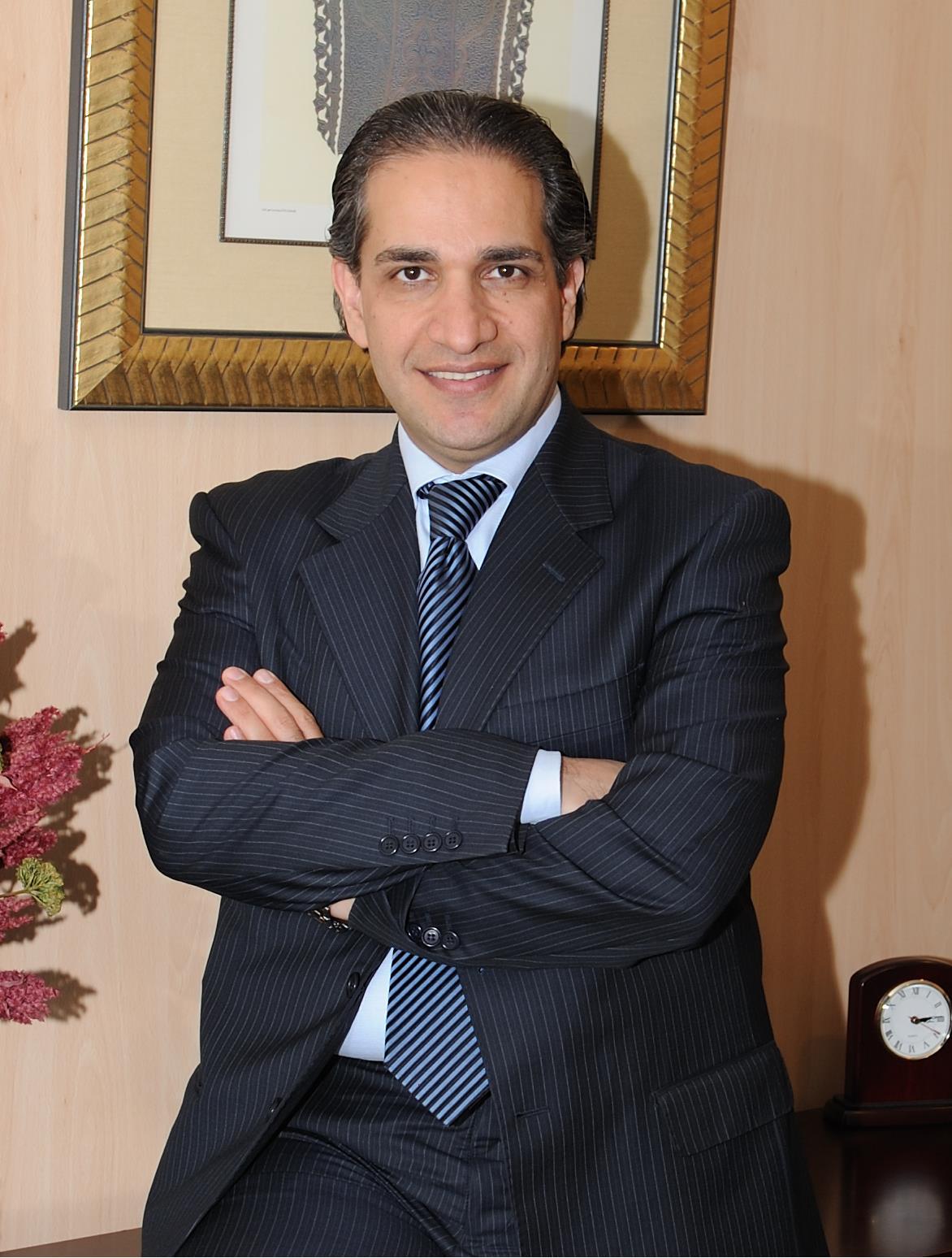
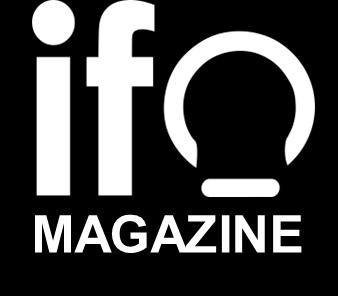
Interview

Mohammed Kateeb 29 IFC MAGAZINE-JULY 2022

30 IFC MAGAZINE-JULY 2022
MohammedKateebisanestablishedleader,knownforbeingresults-driven, dynamicandhighlyentrepreneurial.Hehasadiverseexperiencein buildingbusinesses,teamsandidentifyingandcapitalizingonmarket opportunitiesforover30yearsintheUSA,UKandtheMiddleEast.Heiscurrently leadingtheregionalstrategy,commercialoperations,productandbusiness growthforAzentioSoftwareacrossMEA,advancingitspositionasaninnovative industryleader.BeforejoiningAzentio,KateebwastheGroupChairman&CEOof PathSolutions,focusedongrowingthecompany'stop-linegrowthtowininthe complexmarketplace.Previously,Kateebhasspent11yearsasanexecutivewith Microsoft.Heisalsoknownasakeycontributortotheregion's Telecommunication,MediaandInformationTechnologyindustry.Kateebwas recentlyselectedasaco-chairoftheGeneralCouncilforIslamicBanksand FinancialInstitutions(CIBAFI)InnovationandTechnologyWorkingGroup(ITWG) fortheyear2021-2022.TheITWGispartoftheapprovedCIBAFI'sStrategicPlan 2019-2022whoseobjectiveistoconductvariousinitiativeswiththeaimof strengtheningtheadoptionoffinancialtechnologieswithintheIslamicfinancial servicesindustry.Currently,heistheBoardDirectorofiPORTALandFaster Community.HealsoservedasamemberoftheBoardofTrusteesofIsDBI,an affiliateoftheIslamicDevelopmentBankGroup(IsDB)thatfocuseson developingatechnology-enabledIslamicfinancialservicessectorleveraging state-of-the-arttechnologytomainstreamIslamiceconomicsandfinance knowledge.Kateebwaspresentedwiththe'Fintech LeaderofTheYearAward'at FintechLeadershipPrize2021andthe'FinancialServicesTechnologyLeadership Award'attheMEAFinanceBankingTechnologyAwards2021.Apartfrom receivingthe'IslamicFintechLeaderoftheYearAward'ofFINTECHPRIZEin2020, hewasalsoselected'BankingTechnologyPersonalityoftheYear'attheBanktech Award2021and'BestTechnologyExecutiveoftheYearforFinancialServices'at theMEAFinanceAwards2020.Winnerofthe‘2018GIFAAdvocacyAward(Islamic FinancialTechnology)',Kateebwaschosenthesameyearamongthe'Leadersof IslamicEconomyinEastAfrica',andin2017hewasgrantedtheprestigious 'LeadershipAwardinInformationTechnologies&Media'byISFIN,namedfive timesamongthe'Top50MostInfluentialLeadersWhoMaketheIslamicEconomy' inISLAMICA500.Kateebisalsotherecipientof'FinanceMonthly–CEOAward 2018',andrecognized'GamechangeroftheYear(IslamicFintech)'inACQ5Global Awards2021,2019&2018,honoredbyIFFSAwiththe‘2016HonoraryLeadership Award',namedamongthe'Top10CEOsinEnterpriseSoftware'inthe2016/17CEO InsightGlobalAwards,inadditiontobeingselectedtwicein2018&2017'Best IslamicFinanceTechnologyCEOoftheYearEMEA'byGlobalBanking&Finance Review,aswellas'IslamicFinanceTechnologyCEOoftheYear2015'byBusiness Worldwidemagazine.Kateebisalsoaregularspeakerandhaskeynotedatmany internationalconferencesonthesubjectofITtrendsintheglobalfinancial servicesindustry,andisanactivememberoftheIslamicfinancecommunity. Furtherinfoisavailablehere:https://www.linkedin.com/in/mohammedkateeb/
31 IFC MAGAZINE-JULY 2022
It is our pleasure to interview one of the most important leaders in the emerging world of fintech, particularly in the Islamic financial services sector, Mohammed Kateeb, President, Middle East & Africa and Global Head of Islamic Banking at Azentio Software.
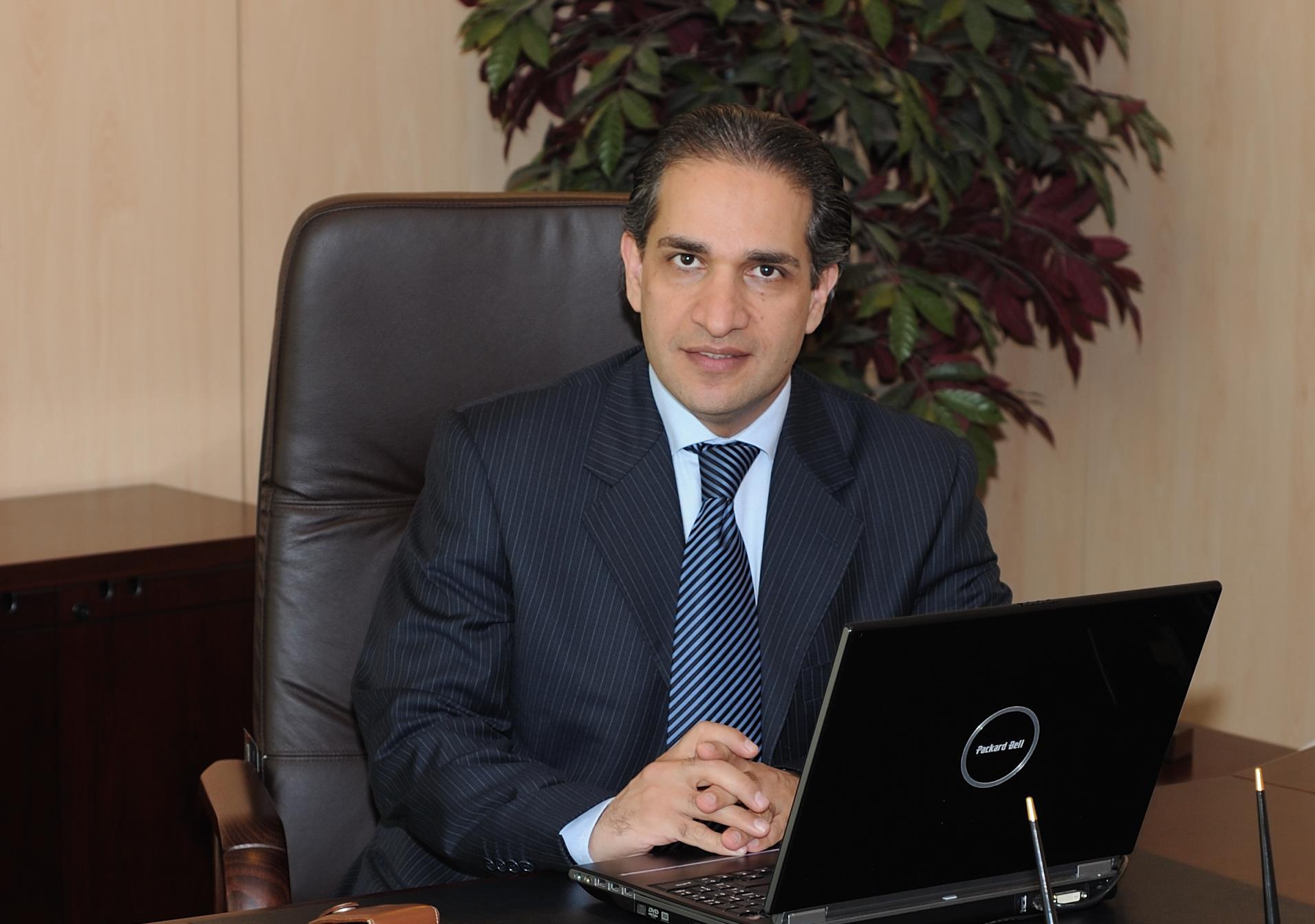
Mr. Kateeb, when it comes to Islamic banking and fintech, the industry is undoubtedly gaining momentum but facing unique challenges. As an expert, tell us your strategies to successfully sail through them.
Thank you for this opportunity. The last couple of years have rocked the financial world with an explosion of technological innovation mainly due to the pandemic which forced an unprecedented level of channel switching to address changes in customer behavior and expectations. At the heart of all these changes, financial technology or fintech which has pushed traditional financial institutions to keep up with the digital revolution and prioritize the needs of their customers.
As you know, the Islamic banking industry is heavily burdened with regulations and restrictions. Many Islamic banks in this part of the world still have a long way to go to be on par with conventional banks due to regulatory limitations and concerns. Nonetheless, we have seen some Islamic banks being true pioneers in relation to how they utilize these evolving technologies to meet customers demands like never before.
With more Islamic financial institutions adopting the new technologies, they too can see similar success and growth to what has been experienced by their counterparts. The outlook seems very favourable, given the strategic intents of various governments in the region to either transforming to Islamic fintech hubs or sustaining their position as Islamic financial hubs.
Azentio Software has a proven track record helping Islamic banks with their digital transformation. We empower the Islamic finance community with flexible and innovative Sharia-compliant software products that are specifically designed to improve customer experiences to compete in the digital age.
We are now in the post-pandemic era going through unprecedented and profound changes. How can digital trends in Islamic finance be effectively utilized to overcome the economic damage caused by the pandemic?
Several studies showed that Islamic finance is not only capable of weathering the economic consequences of the pandemic but it also has the potential to emerge as a successful alternative financial system. It can challenge the conventional banking system dominance. The current pandemic has provided another opportunity for Islamic finance to prove its potential and shine. The digital disruption is prompting Islamic banks to accelerate their digital strategy - though each at its own pace - with a vision to create a resilient and competitive sector.
THE CURRENT PANDEMIC HAS PROVIDED ANOTHER OPPORTUNITY FOR ISLAMIC FINANCE TO PROVE ITS POTENTIAL AND SHINE.
As one of the industry veterans, what does it take to understand banking customers today?
Financial institutions worldwide are using the wide array of advanced research and scientific tools available today to give them a big competitive advantage in generating insights that lead to new organic growth. Consumer Behavioral Science plays a key role in understanding customers' behavior, lifestyle, and preferences. The classic general segmentations that
32 IFC MAGAZINE-JULY 2022
the banks have utilized over the years will not be good enough to keep their customers satisfied. Banks need to collect a tremendous amount of data about their customers through various channels, analyze this data, recognize patterns of behaviour, and use it strategically to deliver products and services that suit their needs. Their main objective is to understand how they can drive growth by meeting customers' individual needs. Getting to this level of understanding about what customers really want from their banks requires the ability to understand what motivates them and how they make decisions deeply. Banks that identify those needs are best suited for attracting new customers, which, in turn, leads to new growth opportunities.
Whether Islamic finance is a catalyst for inclusive growth and sustainable development is not as straightforward as one may hope. While the inherent features of Islamic finance confer several advantages, the full potential of a complete Islamic economy has yet to be realized.
For Islamic finance to reach there requires significant improvements in awareness level, capacity building, standardization, risk management practices, regulatory oversight, tax treatment, and insolvency frameworks.
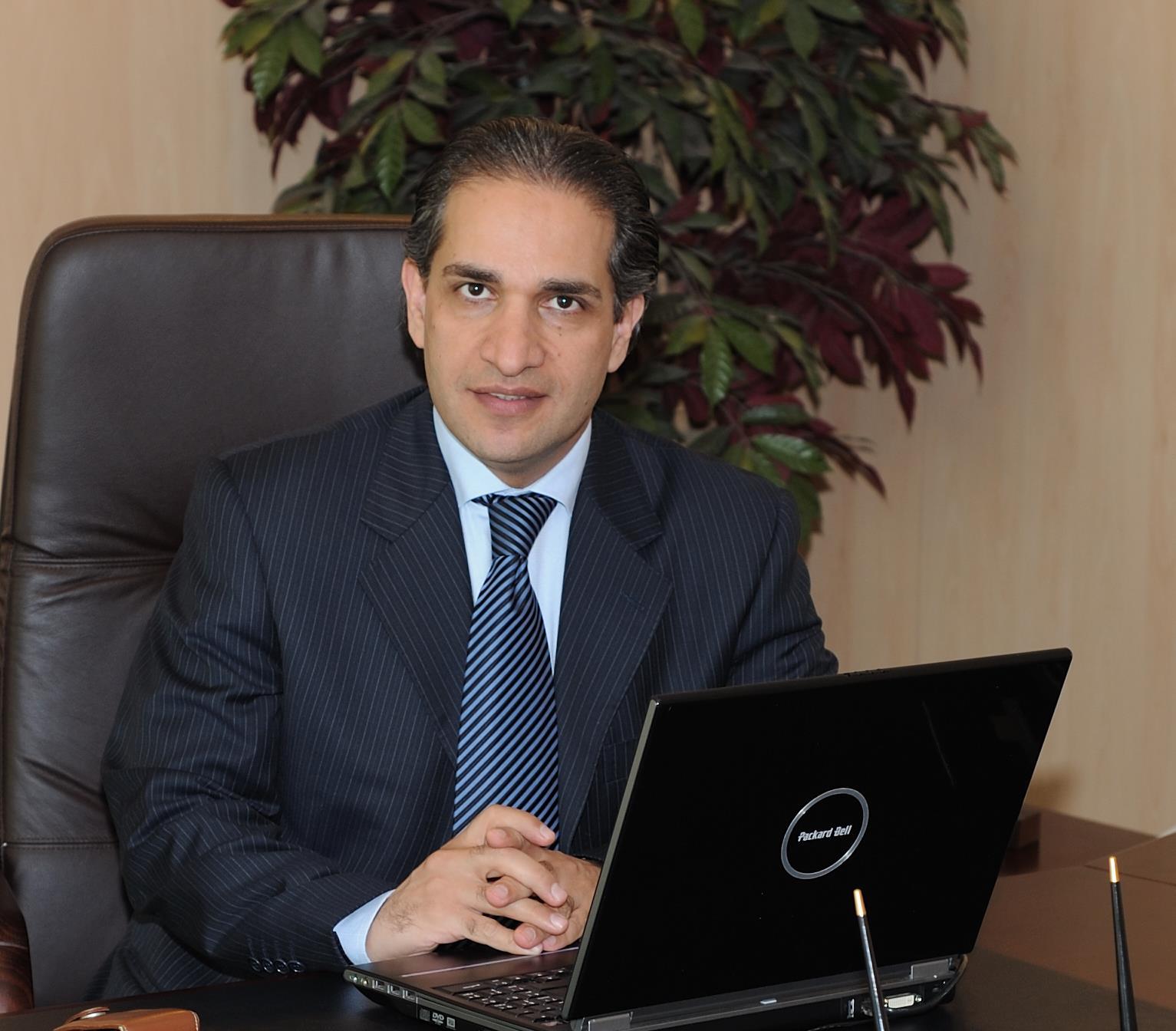
Can Islamic finance spur inclusive growth and sustainable development?
THE CLASSIC GENERAL SEGMENTATIONS THAT THE BANKS HAVE UTILIZED OVER THE YEARS WILL NOT BE GOOD ENOUGH TO KEEP THEIR CUSTOMERS SATISFIED.
33 IFC MAGAZINE-JULY 2022
Azentio recently deployed a BI solution at a Kenya-based bank. What is the relation between business intelligence and decision-making?
Right, Gulf African Bank in Kenya (GAB) went live with Azentio's Business Intelligence solution. This implementation will provide the bank with a cutting-edge solution that utilizes analysis techniques, ratios, formulas and computation procedures to measure and monitor the GAB's online performance and profitability in real-time. The ultimate goal of this project is to drive better business decisions that enable the bank to increase revenue, improve operational efficiency and gain competitive advantages over local and regional banks. When our customers implement our Intelligence platform, the objective is directly related to the importance of using the data strategically internally to enhance the efficiency of the bank's operations and externally to deliver superior products and services to GAB customers. It is important that every decision in the bank is based on data with the objective of becoming a datadriven organization.
What is Azentio's vision for advancing Islamic banking in Africa?
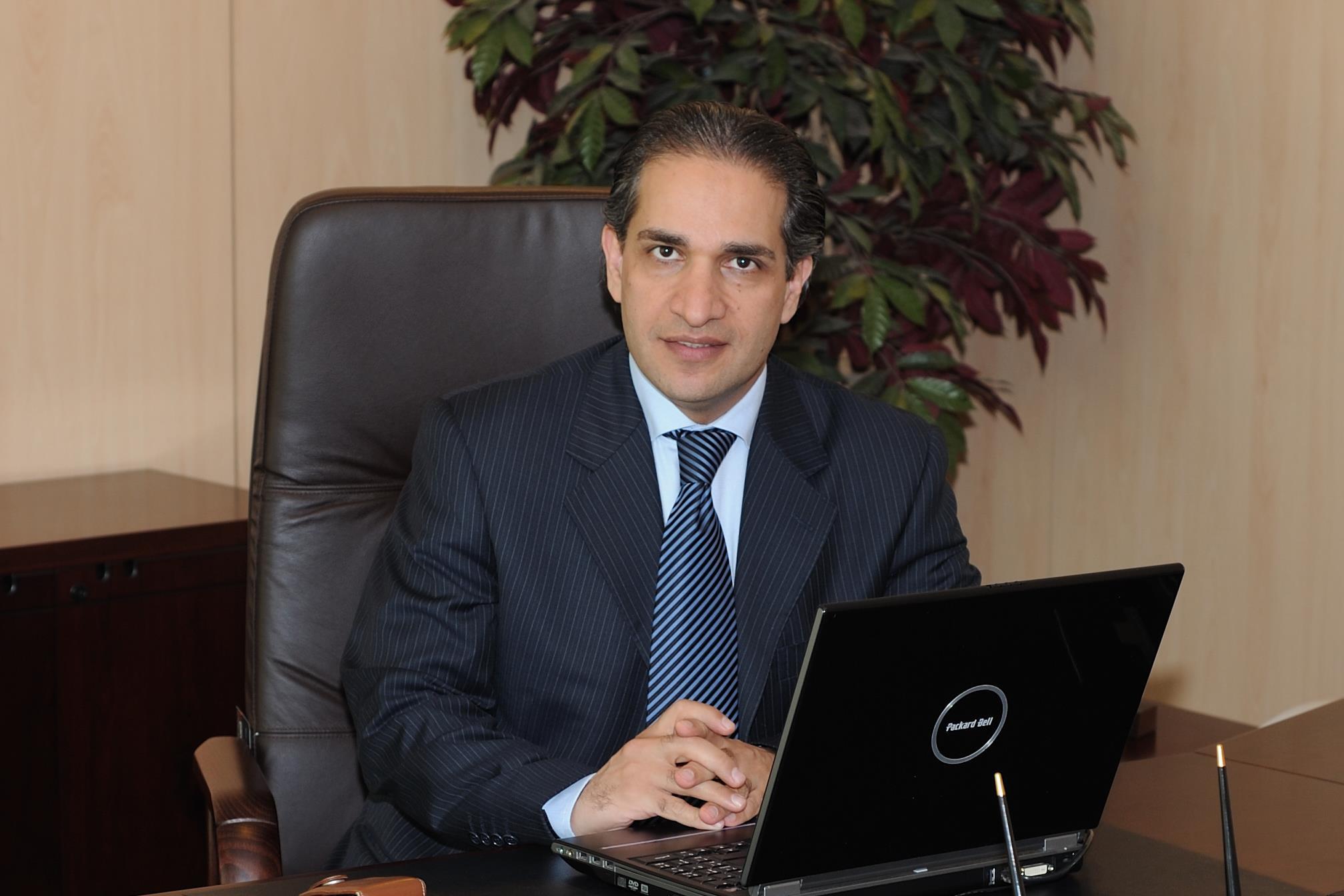
Africa's fast-growing population and markets present ample opportunities for us in an environment of slowing global growth. It is one of our key focus markets. We have the market knowledge and the skills to serve our African clients. Leveraging Islamic fintech and innovative digital technologies can provide a comparative advantage, especially for expanding outreach to the unbanked/remote communities and reducing the cost of financial intermediation.

THE ULTIMATE GOAL OF THIS PROJECT IS TO DRIVE BETTER BUSINESS DECISIONS THAT ENABLE THE BANK TO INCREASE REVENUE, IMPROVE OPERATIONAL EFFICIENCY AND GAIN COMPETITIVE ADVANTAGES OVER LOCAL AND REGIONAL BANKS.
34 IFC MAGAZINE-JULY 2022
Muhammed JIMOH, IFC MAGAZINE
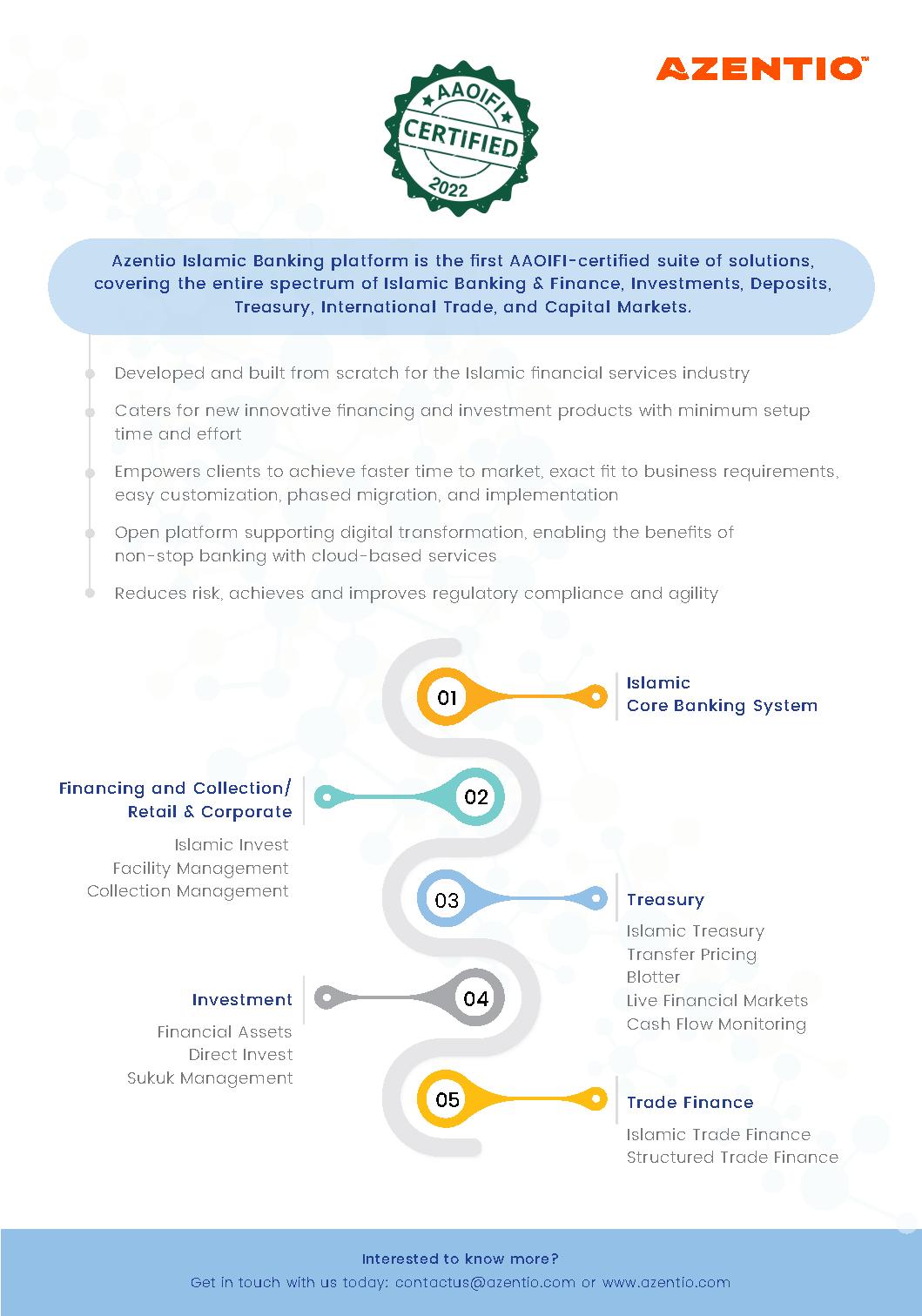

ADVERT COVERAGE ANNOUNCEMENT
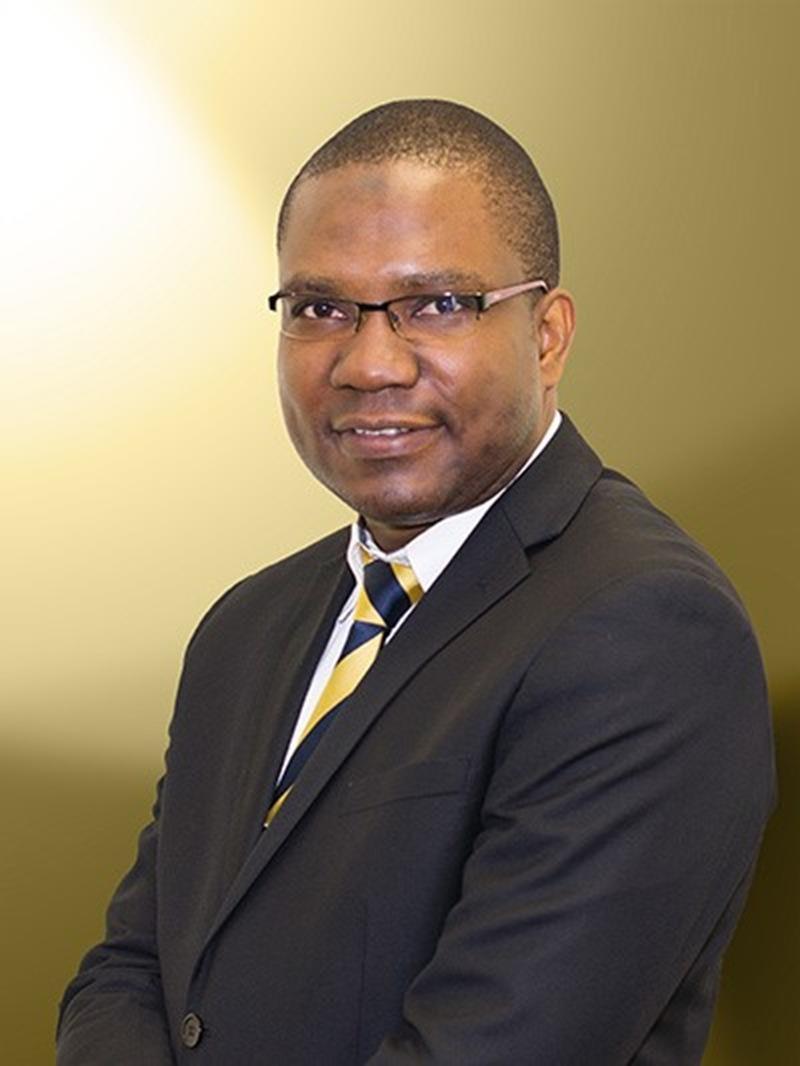
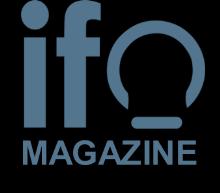
Islamic Capital Markets
Dr. UMAR OSENI


International Islamic Liquidity Management Corporation (Malaysia)
Our interest in Africa remains strong, and we are already in talks with multilateral institutions such as the African Development Bank (AfDB) in a collaborative effort to see how we can support the African market.
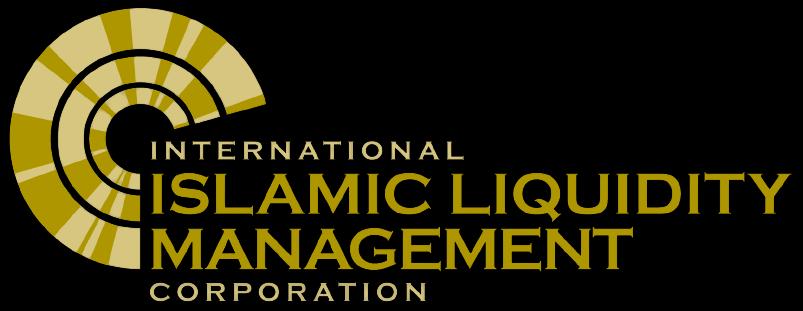
39 IFC MAGAZINE-JULY 2022
The International Islamic Liquidity Management Corporation (IILM) is an international organisation established by central banks and a multilateral organisation to address liquidity management challenges faced by Islamic financial institutions globally by developing and offering highly rated Shari’ah-compliant liquidity instruments.

The IILM has a diverse membership, comprising central banks of Indonesia, Kuwait, Malaysia, Mauritius, Nigeria, Qatar, Turkey, the United Arab Emirates, and the Islamic Corporation for the Development of Private Sector (ICD). The IILM aims to foster regional and international cooperation and build robust liquidity management infrastructure at national, regional, and international levels by offering US dollar short-term Sukuk in the market on a regular basis. The IILM Sukuk is a highly rated Shari’ah-compliant money market instrument supported by sovereign linked and supranational assets, which is offered to suit the varying liquidity needs of Islamic financial institutions. The IILM issuance programme is rated A-1 by Standard and Poor’s (S&P) and is distributed and tradable globally via a multi-jurisdictional network of primary dealers. To date, the IILM has issued over USD 78 billion of Sukuk.
Since 2018 you have been heading IILM moving from acting CEO to CEO of an important organisation such as IILM. What does it mean to you? What lessons of leadership should we learn from this outstanding trajectory?
Alhamdulillah, I give thanks to Almighty Allah for his bounties. Indeed, it is an honour to continue to serve as CEO of such a great international organisation, and it has been an exciting journey and experience. Leading the IILM, where you have Central Banks as the shareholders, requires leading with the highest level of
ethics and professionalism. I am proud of my team and fervently appreciate the guidance from the IILM Board; they have been the backbone of the success since I assumed the position of Acting CEO and subsequently the CEO. I lead with a simple approach of making the office title less important while laying more emphasis on results. This strategy has been effective as everyone feels a sense of belonging and is ready to give their best, which has been instrumental in all the milestones achieved thus far. We work not in silos but as a TEAM (Together Everyone Achieves More). And together, we have achieved important milestones, such as increasing the IILM Sukuk outstanding in the market to an all-time high of USD 3.51 billion in 2020 from USD 1.96 billion earlier. This allowed us to address investors’ needs by regularly offering various tenors and improving the liquidity in the secondary market. And this was achieved during an unprecedented time when the COVID-19 pandemic hit the world.
The Covid-19 pandemic has impacted economic activities and created a new normal. What are some of the challenges faced IILM during the pandemic, and what mechanisms were used by IILM to curb the impact of Covid-19? Did it impact your vision and long-term strategies in addressing the market challenges?
Undoubtedly, the COVID-19 pandemic had a major impact on the global economy, but the monetary authorities stood firm to support their economies and markets. The IILM was no exception, as we are part of the financial ecosystem and had our share of the challenges. At the height of the pandemic in April 2020, there was a liquidity squeeze in the global financial market and the IILM incurred a high cost of issuance to address investors' demand.
Oil prices also crashed to one of the lowest of all time, affecting the income streams of GCC countries and, by
What is IILM, its purpose and its objective?
40 IFC MAGAZINE-JULY 2022
Meet the Leader
Dr. Umar A. Oseni is the Chief Executive Officer and the General Counsel of the International Islamic Liquidity Management Corporation (IILM). Prior to this, he was the Acting Chief Executive Officer and Executive Director (Legal and Compliance) and has served as a member of IILM’s senior executive and management team since 2016.
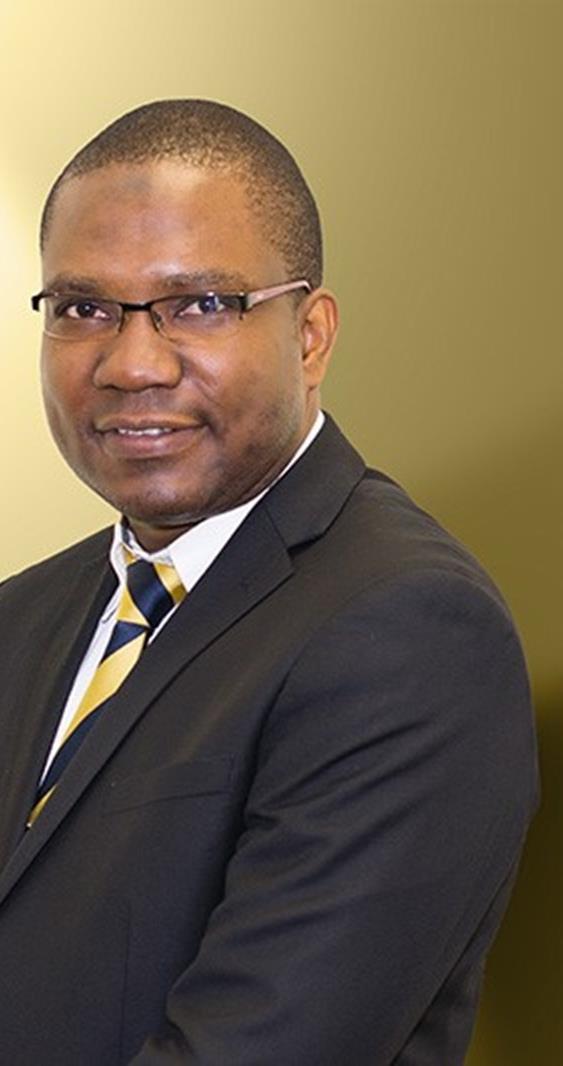
Dr. Umar A. Oseni was also a visiting post-doctoral fellow at the Islamic Legal Studies Program of the Harvard Law School, Harvard University. Apart from being a Harvard-certified negotiator and dispute resolution expert in commercial law, he also has significant and diverse experience in Sukuk structuring, Islamic finance law, and compliance matters.
Dr. Umar A. Oseni has consulted for numerous bodies in the areas of law and regulation of Islamic finance. With a good blend of both significant academic and industrywide experience in Islamic finance, Umar has completed strategic consultancy works for some United Nations agencies such as the International Organization for Migration (IOM), COMCEC of the Organization of Islamic Cooperation (OIC), Islamic Development Bank (IsDB) Group and other government and governmentlinked agencies.
Dr. Umar A. Oseni is a member of the Canadian Bar Association as well as the Nigerian Bar Association. In addition, he previously served as an Associate Professor of Law and Regulation of Islamic Finance at the International Islamic University Malaysia.
As part of his thought leadership role, Dr. Umar A. Oseni has published widely in refereed journals and has also authored authoritative books on Islamic finance and law.
He co-authored the first Textbook on Islamic Finance titled: Introduction to Islamic Banking and Finance: Principles and Practice (United Kingdom: Pearson Education Limited, 2013). He is also a co-author of IFSA 2013: Commentaries on Islamic Banking and Finance, and Alternative Dispute Resolution in Islam (Kuala Lumpur: IIUM Press, 2013). He co-edited Islamic Finance and Development (Cambridge, Massachusetts: ILSP, Harvard Law School, 2014) and Emerging Issues in Islamic Finance Law and Practice in Malaysia, (United Kingdom: Emerald Publishing, 2019. He is also a contributing editor of Fintech in Islamic Finance: Theory and Practice (UK: Taylor and Francis, Routledge, 2019), a pioneering authoritative book on the dynamics of financial technology in Islamic finance.
41 IFC MAGAZINE-JULY 2022
extension, creating opportunities to support jurisdictions in need of funding. The IILM, like every other organisation, also faced operational challenges due to lockdowns, ensuring the safety of employees and the new normal of working virtually. The organisation adapted operationally, re-strategised and overcame these challenges head-on. 2020 turned out to be one of the best years in the history of IILM. The IILM navigated the storm by strategically issuing to the market short-term Sukuk to support Islamic financial institutions in managing their liquidity needs. Most importantly, the IILM Sukuk served as a safehaven asset for investors seeking safety at the height of the pandemic. We also engaged in funding sovereigns to help them support their economies during the pandemic, thereby increasing our program size to USD 4 billion and an outstanding issuance size of USD 3.51 billion. The pandemic did not affect the long-term vision of the IILM; rather, it presented us with new challenges and opportunities given the new normal that we have incorporated into our vision as an adaptable and dynamic institution.
Considering that every jurisdiction has its own Shari'ah regulations and other Shari'ah requirements, how does IILM deal with this issue since they are involved in cross-board liquidity management? Do you think standardisation could be a potential solution?
No doubt that standardisation is key in accelerating the development of any programme or framework as it ensures wider market acceptance, transparency, and confidence, among others; that is why notable institutions and professions strive for it. The IILM recognises these benefits and continues to engage with Shari’ah scholars and stakeholders through Shari’ah roundtables and collaborative events with the Islamic Financial Services Board (IFSB) on how to entrench uniformity in standards, especially regarding the HQLA treatment of the IILM Sukuk and the need for a global Islamic Repo benchmark rate, which we believe would help further deepen the IILM
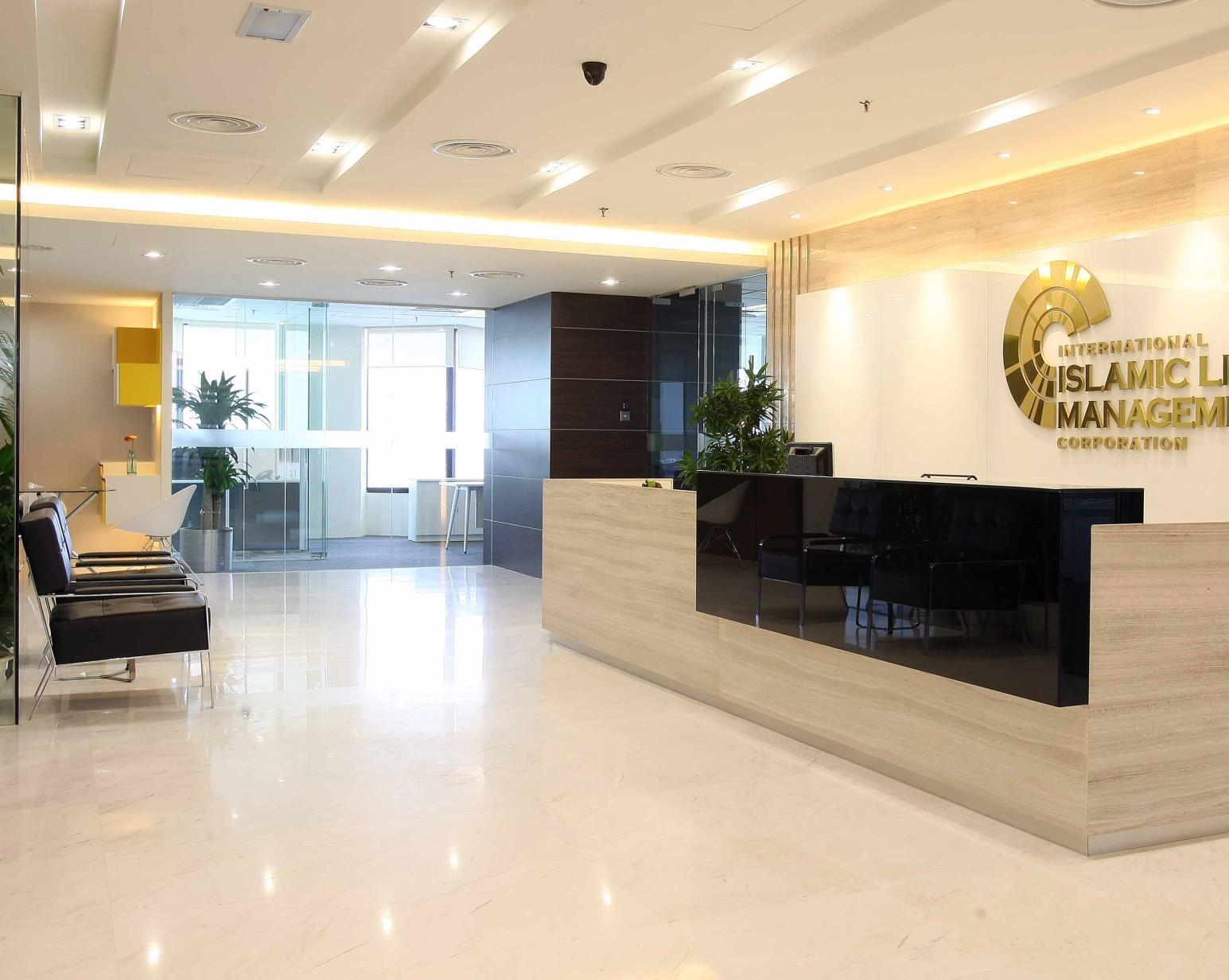
42 IFC MAGAZINE-JULY 2022
programme and the Islamic financial services industry as a whole. As a cross-border liquidity instrument, the IILM's short-term Sukuk has fared well, gained acceptance, and continues expanding its investors base in different regions. This is because it meets most of the requirements needed by the different standards in different regions, such as asset pool definition of Sukuk, risk management framework, Shari'ah Board, and fatwa, etc. For the IILM Sukuk to be widely accepted in terms of Shari'ah compliance, we aim at the highest tangibility ratio in structuring the Sukuk. At the moment, our asset portfolio is ~80% tangible, which is above the minimum 51% required by AAOIFI. Nevertheless, more can be achieved with regard to standardisation. Undoubtedly, it will unlock growth opportunities in the Islamic finance space and help boost the outreach of the IILM Sukuk programme
Today, the question of integrating ESG in the Sukuk structuring is being debated in many Islamic finance ecosystems, and many voices are calling for revamping the model to meet the maqassid of Sharia. How do you think the Islamic capital market could achieve these goals?
The relevance and growth of environmental, social and governance (ESG) principles in investment have attracted the attention of the global business community, especially with the current climate change concerns. There is a great synergy between Shariah and ESG principles, especially with regard to its ethical values and social considerations, which are in line with the original value proposition of Islamic economic theory and maqasid as-Shari’ah. The idea of expanding the concept of ESG integration to capture the maqasid as-Shari'ah is essential because it incorporates the broader ESG values and principles
recognised by the socially responsible investing (SRI) industry, which is effective in addressing the socio-economic challenges of society. To upscale the adoption of the ESG consideration in line with maqassid al-Shari’ah, the Islamic capital market must undertake a more dynamic and proactive approach such as encouraging financial institutions to integrate ESG goals into their business models and policy formation, incentivise complying entities, providing platforms and infrastructure for ESG related products, promote standardisation and reporting frameworks, effective regulation, and regulatory incentives. We have seen significant developments in this space in some advanced jurisdictions, such as Malaysia, where it introduced the Sustainable and Responsible Investment (SRI) Sukuk Framework. Therefore, one could easily say that there is some sort of convergence between ESG principles and the principles underpinning the Islamic Capital Market.
What role could IILM play in tackling these challenges? Is ESG Sukuk relevant from a liquidity management perspective?
The ESG challenge is a concern for all and within the financial ecosystem. As issuers of short-term Sukuk, the IILM could explore issuing ESG-related Sukuk in the future as the market develops. Also, we are open to long-term funding of sovereigns and GREs that are passionate about green projects and social financing within the ESG space. Liquidity is relevant to most financial institutions, especially Banks, and short-term ESG Sukuk would be relevant for institutions that are ESG-driven to invest in liquid instruments that are also ESG-compliant. By doing so, they can fulfil their ESG mandates without compromising liquidity. There is indeed a market for ESG short-term Sukuk, given the growing popularity of green Sukuk and the likes.
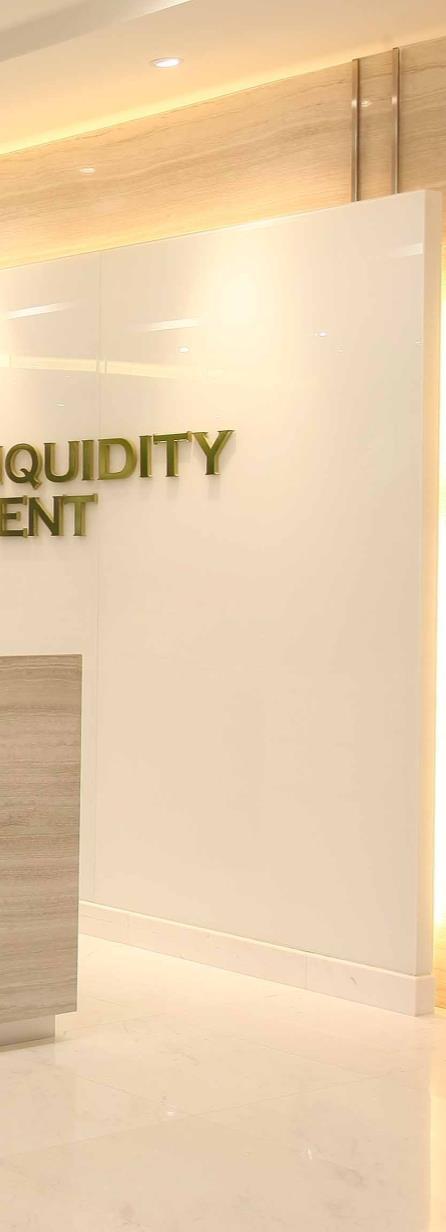
43 IFC MAGAZINE-JULY 2022
Islamic finance is making waves in Africa. New regulatory frameworks in many jurisdictions. But among the challenges faced by Islamic banks is liquidity. Is IILM tapping into this market? What is your relationship with African Islamic Finance Ecosystem?
Africa remains an important investment destination hub for investors due to its potential growth, colossal market base and diversification benefits. Islamic finance, as rightly mentioned, is beginning to penetrate the African market, which is long overdue given the numerous expected benefits and high level of financial exclusion on the continent.
However, like in other parts of the world, liquidity management remains a challenge, especially for Islamic financial institutions where instruments are scarce, hence the need for an institution such as the IILM.
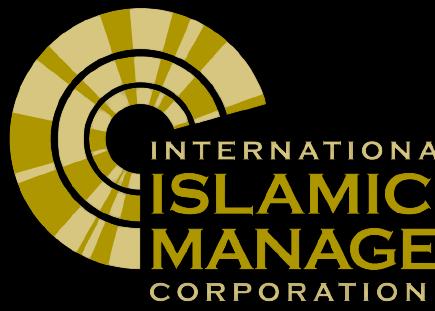
We have yet to fully tap the African markets as we have been more concentrated in the GCC region and Asia, given the depth of Islamic finance in those regions. However, the Central Bank of Nigeria and Bank of Mauritius are founding members of the IILM. Currently, collaborative efforts are ongoing to deepen the IILM market in Nigeria by onboarding financial institutions to subscribe to the IILM’s short-term Sukuk. We also have investors from other African countries, and we plan to continue to expand our African investor base in the near future.
What do you think African countries should do to be more attractive to investors like IILM?
It is critical for Africa to deepen the finance infrastructure and platform solutions in which financial products can be implemented and upscale their creditworthiness to attract capital globally. There is also the need to sustain the drive for awareness in the Islamic finance space and support establishing more robust Islamic financial institutions on the continent that can compete globally, roll out innovative Islamic products and deepen the market. Government, Shari’ah scholars and other stakeholders all have a role to play in developing the financial industry to be competitive globally and attract the best of investors, given the vast market potential.
What are the projections of IILM since they are planning to expand, and how would Africa benefit from this? Would you consider signing MoUs with African financial bodies?
The IILM plans to sustain its upward trajectory in providing cross-border liquidity solutions globally as the only dollar-denominated short-term Sukuk issuer. The vision is to be more innovative, penetrate more markets, serve as the global benchmark for Islamic liquidity management solutions and be adaptable in this ever-changing environment. Africa stands to benefit from our drive to penetrate new markets for diversification benefits and scalability, which Africa is on our top priority list. These developments would give them access to funding for sovereigns and liquidity solutions for their financial institutions. Our interest in Africa remains strong, and we are already in talks with multilateral institutions such as the African Development Bank (AfDB) in a collaborative effort to see how we can support the African market.
We know you are also involved in many strategic topics regarding the development of the Islamic finance industry, like Islamic Fintech. How do you see Islamic fintech as an opportunity for the industry?
Every leader in the financial ecosystem needs to have an eye on the tech space if you wish to continue to be in business. In this era of exponential growth in technology, adaptability and being alert are the ingredients for success. There are a lot of opportunities in the fintech space, and Islamic
44 IFC MAGAZINE-JULY 2022
finance needs to position itself strategically to make the best out of it.
Every aspect of our lives is being digitalised, such as digital currencies, blockchains, NFTs, etc. These are the realities of the future, and a lot of opportunities lie within them and Islamic finance should not be left behind. Undoubtedly, Islamic Fintech will define the success of the Islamic finance industry in the future, and there is an urgent need to develop the Fintech space. As part of my humble efforts, I led a global team of experts to produce one of the pioneering authoritative books on Fintech in Islamic Finance. This is part of the thought leadership some of us try to offer the global Islamic financial services industry.
How could the African Islamic finance ecosystem leverage Fintech to boost its leadership/appeal in the global finance industry?
By being there, proactive and not just reactive. Knowledge is power; we need to begin investing in the future and creating leaders who can evolve and keep up with the time. You need to be ready to accept change and move swiftly. The Islamic Finance space is still at its infancy stage, with so many products yet to be developed to meet the demand of investors, and the fintech space is the ideal place to make it happen. To be reckoned with globally, the African Islamic finance ecosystem could leverage technology, which has helped break barriers and allowed for a more global market. However, this can only be achieved by concerted efforts from industry leaders, considerable investments in Fintech, capacity building and innovative solutions.
Are there any further plans by the IILM to expand its programme offering?
The IILM has thrived to fulfil its mandate of providing liquidity management instruments to the market. In 2021, the IILM supplied an excess of USD 14.12 billion across 36 Sukuk, the highest volume since its inception. It became a frequent and stable issuer, constantly offering for the first time 3 different tenors monthly, namely 1-month,
3-month and 6-month Sukuk. This accounted for 27% of the total global USD Sukuk issuances in 2021 and positioned the IILM as one of the top USD Sukuk issuers. The secondary market volume increased to USD 1.4 billion, representing circa 10% of the total issuance.
Moving forward, the IILM will focus on developing its issuance programme with new features as well as addressing the demand for more high-quality liquidity assets (HQLA) and longer tenors depending on market conditions. The IILM looks forward to attracting new investors, particularly in Africa, to diversify its investor base, thus enhancing its liquidity for its Sukuk on the secondary market.
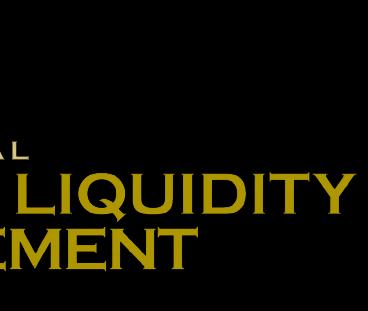 Sory TOURE, IFC MAGAZINE
Sory TOURE, IFC MAGAZINE
45 IFC MAGAZINE-JULY 2022
SOME

BOOKS AUTHORED BY Dr. OSENI


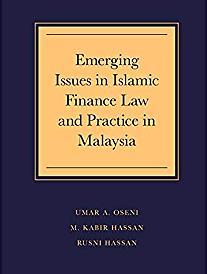
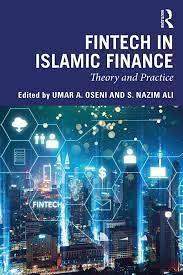

46 IFC MAGAZINE-JULY 2022





CERTIFICATE PRACTICE OF ISLAMIC CAPITAL MARKETS DEVELOP COMPETENCIES IN ISLAMIC CAPITAL MARKETS PRODUCTS AND SEIZE NEW OPPORTUNIES For more information training@dexterity-africa.com +225 07 57 707 012 +225 27 22 558 120 SUKUK AND STOCKS SHARI’AH/ESG SCREENING INVESTMENTS FUNDS PRIVATE EQUITY FINANCIAL MODELLING CROWDFUNDING FINTECH Malaysia Bahrain With virtual professional immersion ONLINE Nigeria Senegal
IFC MAGAZINE-JULY 2022 48 Ṣ ū Ṣ ū Ṣ ū Ṣ ū Ṣ ū Ṣ ū Ṣ ū Ṣ ū
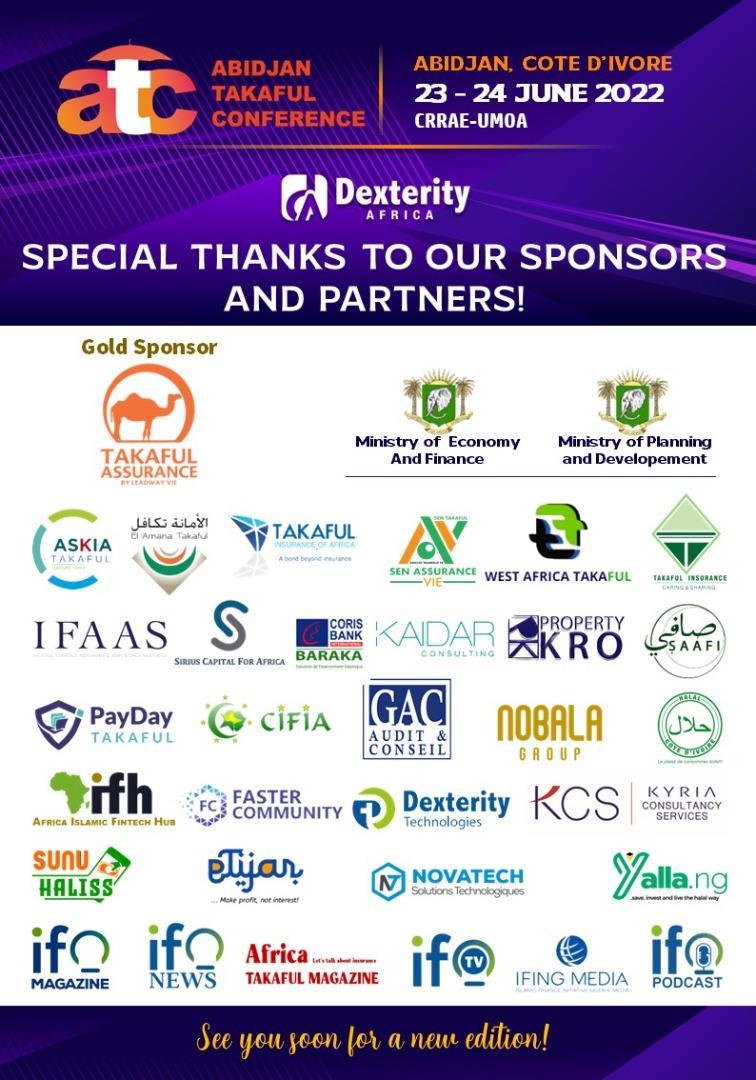
AN ANALYSISBY
Boubkeur
AJDIR


SOME FUNDAMENTAL REGULATORY ISSUES IN ISLAMIC FINANCE
Boubkeur AJDIR
Considering the regulatory approach to implementing an Islamic finance market in a jurisdiction is crucial. The laws governing the financial sector in non-Muslim countries contain some regulatory aspects that can potentially hinder Islamic finance.
We will review here two issues that bother the most on structuring and which concern the Islamic capital market, Sukuk, and some collective management tools: (i) the integration in texts or the integration of texts and (ii) the particular case of Sukuk and securitisation and (iii) the Shari'ah compliance benchmark. We will have the opportunity to address other issues in future articles to be published.
From this point of view, the examples closest to West Africa, namely Morocco and Tunisia, are radically different: while Tunisia has put in place specific texts on Sukuk, Morocco has chosen to integrate these instruments into the regulatory framework of securitisation
Both approaches have advantages and disadvantages.
Regarding the integration into the existing texts:
- Advantages: consistency between the Islamic and conventional products;
- Disadvantages: risk of forcing certain concepts that do not correspond to conventional finance.

Regarding the establishment of ad hoc texts :
- Advantages: better readability and consistency of the Islamic product;
I. Designated texts vs amendments to existing texts
When looking at regulatory approaches at the international level, one will notice there is no specific regulation for the "Islamic financial market" but rather for "Islamic financial products". Though, there are few exceptions. These products are usually regulated within a general framework of savings protection and market integrity. The objectives of the market authorities do not differ whether they are dealing with conventional or Islamic financial products. Concerning the products themselves, the question is whether it is appropriate to amend the existing texts governing the products and investment vehicles already in force (Undertakings for Collective Investment, Securitisation Mutual Funds, Repurchase Agreements, etc.), or whether it is appropriate to create an ad hoc text for each of these instruments.
- Difficulties: risk of being seen as a radically different product from the equivalent in conventional finance (e.g. an Islamic REPO may be seen as totally different from a conventional REPO).
II. Sukuk Issuance Through Securitisation and Without Securitisation
In the absence of a legal instrument comparable to the Anglo-Saxon trust, the issuance of Sukuk relies substantially on the technique of securitisation and/or assetbacked securities. [These so-called "assetbased" structures, which do not provide a right of co-ownership but rather a right to the income from the assets, give rise to divergent opinions among Muslim legal scholars].
IFC MAGAZINE-JULY 2022 51
However, the use of regulated securitisation vehicles is not an obligation imposed by the principles and rules of Islamic finance. For example, a joint venture company could issue Sukuk. These transactions can therefore be structured in different ways, depending on the needs of the issuers, the underlying assets available, and the investors' risk aversion. This structuring can be done while relying on ad hoc legal structures. Sukuk issuance without a securitisation mechanism is all the more important for governments that need to rely on a less cumbersome, less tedious, and less costly procedure. A sovereign Sukuk issuance should not be more complex to carry out than a conventional bond issuance. This is also applicable to private issuances as long as the interests and rights of investors are adequately protected. It is then relevant to study the use of SPVs rather than securitisation vehicles.
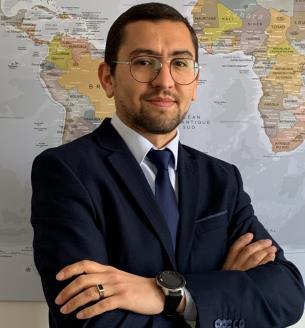
of Islamic financial products with Muslim business law. At the same time, they must put in place a framework to reconcile compliance with domestic law and compliance with Islamic law. To be possible, they must at least assess Muslim legal scholars' ability to provide opinions or advice to financial institutions. To this end, they need to define an institutional anchor for Shari’ah compliance and governance based on or inspired by international standards such as the IFSB and AAOIFI. The civil society context of West Africa does not allow for automatic and simplistic duplication of the approaches adopted in South Asian or GCC countries. Consequently, it is necessary to set up a "Shari’ah Reference System" that is specific to these countries, which makes it possible to integrate local legal specificities and take into account the socio-cultural, socioeconomic, and religious dynamics within the WAEMU zone.
III. The Need to Define a Normative Benchmark for Shari'ah Compliance
West African jurisdictions evolve in a secular context. This situation makes us consider that their authorities have neither the competence nor the legitimacy to pronounce themselves on the conformity
IFC MAGAZINE-JULY 2022 52
Boubkeur AJDIR, Partner, Director of IFAAS groupe in francophone countries
Audit Shariah d´un portefeuille d’actifs islamiques d'une valeur de 3 milliards de dollars
Des clientssur 5 continents


+ de 20 autorités (banques centrales, ministères) nous ont déjà fait confiance

Des projets et des missions dans plus de 40 pays
Près de 150 produits financiers islamiques dans diverses juridictions
Plusieurs milliers de professionnels ont déjà suivi nos formations
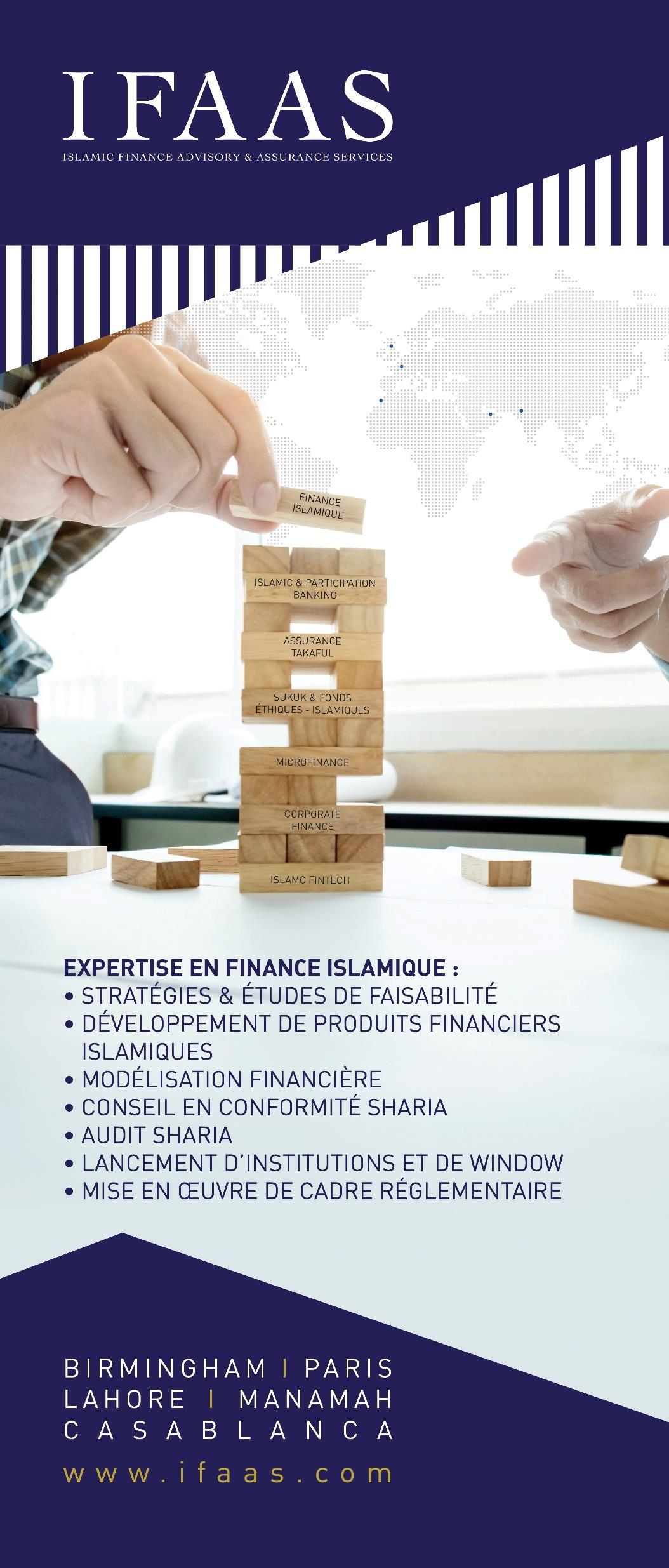
40 150
3 20
5 + 3000
Understanding and implementing Takaful

ver the past 30 years, the Islamic financial services industry has expanded rapidly in many parts of the world. According to the 2021 Refinitiv report, there are 1595 Islamic financial institutions in the world. In a context of perpetual crisis, the need to refer to ethical values is becoming increasingly important. The attractiveness of socially responsible investments has been strengthened, and Islamic finance is becoming more and more a reliable alternative to conventional finance. The Islamic insurance sector, or Takaful, has been one of the most successful since the arrival of the first such insurer in 1979 in Sudan. Islamic insurance or Takaful is etymologically a way of organising solidarity within the community (Ummah) of believers, designed in accordance with Islamic ethics and implemented through legal mechanisms that are consistent with Islamic law (Shari'ah).
Takaful is a system of insurance in which members contribute to a mutual fund to support each other in the event of a loss. The purpose of Takaful is to cooperate, live in harmony within the community and protect each other against the hazards of life. Takaful policyholders regularly contribute on a monetary basis which is supervised and managed by a Takaful management company. Conventional insurance penetration remains very low in Africa. It accounts for 60190 billion USD of life and non-life premiums in 2020, i.e. 0.95% of the world premium (Atlas Magazine N°189, March 2022).
MICROTAKAFUL TAKAFUL GENERAL TAKAFUL FAMILY
IFC MAGAZINE-JULY 2022 54
O
South Africa alone accounts for 67 5% of the continent's premiums, i e 1% of its GDP, far from the 5% observed in Asia (Atlas Magazine, February 2021). Insurers have been slow to adapt their products and services to the realities of the African continent These are, for the most part, identical to the products and services offered in industrialised countries, i e long and complex contracts distributed through expensive networks of agents and brokers which only reach the urban elite. Given the inability of the traditional insurance market to meet the insurance needs of all social classes, Islamic insurance, based on ethical principles, is positioning itself as a viable alternative
I- FOUNDATIONS
A- Principle and Model of Takaful a- Principle
Takaful insurance is fundamentally different from conventional insurance in that premiums are considered 'contributions' to a common fund established to spread the risk of an adverse event affecting a member of the group Takaful is an agreement of mutual aid and solidarity between members of a community in the event of loss or damage suffered by one of them. It is a global concept that can be translated into that of mutual guarantee or compensation between members of a group who are both insurers and insured It advocates the fair sharing of risks and benefits, a form of associative finance
Takaful insurance is, therefore, a mutual guarantee based on the principles of Islamic finance, which are :
- Risk sharing between the parties to the contract;
- Materiality: all transactions must have a "material purpose", directly or indirectly linked to the actual economic transaction;
- Non-exploitation: financial transactions must never result in the exploitation of one of the contracting parties;
- The prohibition of financing "haram" or illicit activities related to the production of alcoholic beverages, pork, pornography, and gambling.
The only investments allowed by religious law are those whose remuneration is the result of a sharing of the fate between investors and beneficiaries

Takaful implies:
- Separation of policyholders' funds from those of shareholders;
- Commitment to distribute financial profits to policyholders;
- The establishment of a Sharia Supervisory Board, which supervises insurance operations and monitors their compliance with Shari'ah law
b-Takaful: products and models
. The products
There are two types of Takaful products: General Takaful (nonlife insurance) and Family Takaful (life insurance). General Takaful, which offers short-term protection, generally for a period of one year, includes property insurance, liability insurance and personal injury insurance These are: motor, fire, marine, miscellaneous accident Takaful, Et Cetera.
Concerning the Family Takaful, it offers a combination of protection and long-term savings, covering a period of more than one year It includes personal insurance, with the exception of personal injury insurance These include Takaful for death, credit, education, health, Et Cetera
IFC MAGAZINE-JULY2022 55
Within the Takaful regime, there are several operational models that Takaful companies around the world have adopted Takaful with small numbers of participants operates as cooperatives and relies on Tabarru' (donation in Arabic) The contribution given by the promoters to the establishment of the Takaful is considered a Qard Hassan, i.e. a free loan, and that of the participants (policyholders) a donation (Tabarru') to the mutual guarantee fund.
Takaful companies operating as commercial companies may be managed according to some existing contracts in Islamic finance The separation is upheld between the mutual fund of the insured and the fund set up by the promoters The most commonly used models are the Mudaraba (partnership) model, the Wakalah (agent contract) model, and the hybrid model.
➢ Mudarabah model
General Takaful
PARTICIPANTS
1 Participants pay takaful contributions which form a takaful pool
2 The fund is invested in Shari'ah-compliant assets
3 Any profits generated by the investments are shared between the participants and the Takaful operator on the basis of a pre-agreed profit-sharing ratio.
4. At the end of the year, the surplus (after deducting claims, retakaful contributions, reserves and management fees) is distributed to participants In a modified Mudarabah model, the surplus is shared between the participants and the Takaful operator
➢ Mudarabah Model • Takaful Family
1) Participants pay takaful contributions which form a common takaful fund
2 The Takaful fund is divided into accounts: the participants' investment account (also called the participants' savings account) and the participants' special account (also called the participants' risk account). The latter is based on the Tabarru’ concept. The fund distribution ratio is agreed upon in advance between the participants and the Takaful operator
3 The funds in both accounts are invested in Shari'ah-compliant assets, such as Islamic government instruments, Islamic private debt and equity, as well as Islamic fixed assets and fixed deposit accounts
4. Any profits generated by the investments are shared between the participants and the Takaful operator on the basis of a pre-agreed profit-sharing ratio
5 The amount in the participants' investment account is paid to the participants at the maturity of the Takaful scheme or to the beneficiary in the event of the death of the policyholder
6 The amount in the participants' special account is used to pay participants' claims, retakaful contributions, provisions and management fees.
7. At the end of the year, the surplus is distributed to the participants. In a modified Mudarabah model, the surplus is shared between the participants and the Takaful operator
IFC MAGAZINE-JULY 2022 56
•
Models
•
Family Takaful’s modus operandi Takaful Fund PARTICIPANTS Investment Account • Claims • Service • Retakaful • Provisions Subscription surplus Operator Tabarru Investment Profit Risk fund 2 1 5 3 4 4 4 6 7 7
General Takaful’s modus operandi
Takaful Fund ( Primes)
Investment Reserves Retakaful Claims Subscription surplus Operator Investment profit X% Y% X % Y % 4 1 3 3 4 Deductions ➢ Wakalah Model • General Takaful 2
1. Participants pay Takaful contributions under the Takaful scheme, which are divided into: (a) Wakalah management fees (the remuneration of agents and administration fees) paid to the operator and (b) Takaful fund.
2. The Takaful fund is invested.
3. Any income or profit generated is added to the fund. The Takaful operator may also receive a performance fee if the investment performs well.
4. The Takaful fund is deducted from the participants' claims, retakaful contributions and provisions.
5. At the end of the year, the surplus (after deductions) is distributed to participants. In a modified Wakalah model, the surplus is shared between the participants and the Takaful operator.
➢ Wakalah Model
1 Participants pay contributions to build up the Takaful fund and pay the operator's Wakalah management fees
2. The Takaful fund is divided into two accounts: the investment account for savings and the special participants' account (also called the participants' risk account) The latter is based on the concept of Tabarru'
3. Funds in both accounts are invested in Sharia'hcompliant assets.
4. The profit from the investment, if any, is added to the accounts (investments and Tabbaru) The takaful operator may be entitled to a performance fee for good investment performance
The amount in the participants' investment account is paid to the participants at the maturity of the contract or to the beneficiary upon the death of the insured
The amount in the participants' special account is used for claims payments, retakaful and provisions.
5 At the end of the year, the surplus is distributed to the participants In Principle, the underwriting surplus under the Wakalah model should be distributed to the participants only; however, based on current industry practice, under a modified Wakalah model, the surplus is shared between the participants and the Takaful operator
➢ Hybrid model
This model is the most dominant in the Takaful market Indeed, this model is practised by most Takaful companies in the Middle East as well as in other regions (Malaysia, Bahrain, UAE, Sudan, Kenya ) In addition, the Audit and Accounting Organisation for Islamic Financial Institutions (AAOIFI) recommends the use of this model by Takaful operators (AAOIFI, 2003).
1. Participants make contributions to the Takaful fund.
2. The contributions are divided into: Wakalah management fees, risk funds (Tabbaru) and investment funds.
The agency fee, which includes the agency commission and the administrative fee, is paid into the Takaful operator's fund.
From the risk fund (managed under Wakalah), claims payments, provisions and retakaful costs are deducted.
IFC MAGAZINE-JULY2022 57
• Takaful Family
X% Y% Deductions X % Y % 5 1 3 3 5 1b 1 1a 2 4 Risk fund Provisions Claims Retakaful Surplus Investment Profit Operator s PARTICIPANTS Commissions de gestion wakalah Hybrid model PARTICIPANTS 2 1 3 4 100 % X% Y% 2 2 5 4 5b 5a Wakalah management fees Takaful Fund Investment fund Risk fund (Tabbaru) Claims Retakaful Provisions Profit Operator Surplus 2 1 3 4 1 2 5 4 5b 5a Wakalah management fees Takaful Fund Participants' investment fund Participants' risk fund Claims Retakaful Provisions Profit Operator Surplus Investments Profit 4 Modified Wakala PARTICIPANTS
General Takaful’s modus operandi
Family Takaful’s modus operandi
3. the investment fund (managed according to Mudarabah) is used to make Shari'ah-compliant investments.
4) Profits, if any, are shared between the participants and the Takaful operator based on the agreed ratio.
5) At the end of the year, the surplus from the risk fund is distributed to the participants and the Takaful operator according to the ratio agreed in the contract. It is based on current practice, although in principle, the underwriting surplus under Wakalah should be distributed to participants only.
B- Comparison between Takaful and conventional insurance a- Points of divergence
Takaful and conventional insurance may look similar at first glance in that they both share the objective of protection against unforeseen circumstances, but on closer inspection, the differences become apparent. The main difference between conventional insurance and Takaful is that the former is a risk transfer model, while the latter is a risk-sharing model In addition to the main feature mentioned above, there are some other differences between the two policies In conventional insurance, the risk is transferred from the insured to the insurer Takaful, on the other hand, is based on risk-sharing Each participant donates to a common fund and, in the event of a claim, the participant is indemnified. Unlike in conventional insurance, Takaful participants retain ownership of the fund The participants' contributions are then invested in 'halal' or Shari'ah-compliant activities in order to generate investment income If the fund generates a surplus, this is shared among the participants and, in some cases, with the Takaful operator It is a "win-win" situation for all stakeholders
II-
TAKAFUL MARKET IN AFRICA
The first Islamic insurance company was introduced in Sudan in the 1970s, based on a cooperative model quite similar to that of a traditional mutual insurer. The model remained confined to Muslim countries. More commercial models of Takaful were later introduced in countries such as Malaysia and Saudi Arabia Takaful has evolved into a viable alternative to conventional insurance and has attracted a wide range of customers, both Muslim and non-Muslim The development of Takaful insurance has spread to several countries in Africa and around the world Takaful is now seen as a key element in the development of Islamic finance in general, especially through its ability to raise capital.
a- Regulation in Africa
The promotion of Islamic finance requires the necessary improvement of the institutional framework in which these institutions operate The absence of a regulatory framework is a major handicap preventing the development of Islamic financial products on the continent. Despite this situation, some African countries such as Nigeria, Morocco, Tunisia, Kenya, and WAEMU countries... stand out from the crowd through specific jurisdictions for Islamic finance and, more specifically, for Takaful insurance
b- Regulations in the WAEMU region
The WAEMU zone has shown its willingness to develop Islamic finance through the establishment of a regulatory framework specifically intended for credit institutions carrying out an Islamic finance activity through two (2) instructions n°002-03-2018 and n°00405-2018 As of 2019, the Inter-African Conference on Insurance Markets (CIMA) has introduced Regulation N°003-19 regulating Takaful insurance operations in the member States However, in practice, certain local legal issues still pose obstacles to the use of Islamic finance Thus, tax laws and regulations at the national level need to be adapted to ensure that they do not penalise Islamic finance products.
b- Comparative summary
TAKAFUL
Mutual cooperation. Contribuions from policyholders finance the funds. The pooled funds can be used to protect other participants against risks.
CONVENTIONAL INSURANCE
A policy that transfers the risk to the insurance company. You pay a premium to be covered
Subject to both Shari’ah and governmental laws. Subject only to the laws of the government. The Takaful operator invests only in Shari’ah-compliant instruments that are free from gharar (uncertainty), maisyr (gambling) and riba (interest)
Dividends are paid to shareholders.
Insurance companies are free to invest in legal instruments such as shares, bonds, etc. Profits or surpluses are shared between the participants and operators of a Takaful fund.
IFC MAGAZINE-JULY 2022 58
c- Constraints

From a regulatory point of view, many efforts have been made in several countries on the continent for the effective development of Islamic finance in general and Takaful in particular However, after examining the current regulatory framework in some countries, it is worth noting some shortcomings related to prudential standards, taxation, and accounting, among others. In the WAEMU zone, for example, the prudential framework specific to Islamic finance is being adopted by the BCEAO However, the existing one does not provide for rules to manage the risks specific to Islamic finance The tax law in most WAEMU countries does not contain exemptions for credit institutions operating in Islamic finance Indeed, in order to finance certain real needs of clients, the Islamic bank must first own the asset in question before transferring it to the client. These transactions could lead to double taxation, which could make the product offered by the Islamic bank more expensive than that of the conventional bank.
TAKAFUL DEVELOPMENT PERSPECTIVES
The global Takaful market in terms of gross written premiums will be worth US$21 billion by 2020, according to Atlas Magazine. This development is an opportunity for Africa, which is struggling to channel sufficient financial resources from the industry into the Islamic financial markets The global Takaful market is very dynamic, as evidenced by the Islamic Finance Development Indicator (IFDI) 2021 report, with US$62 trillion in assets, 16% growth and 323 Takaful institutions operating worldwide (see Figure 2)
These figures show the dynamism of the smallest of the Islamic finance sectors in terms of assets. The Takaful market is dominated by the Gulf Arab Cooperation Council (GAC) and South East Asian countries Iran, Saudi Arabia and Malaysia account for the bulk of global Takaful assets in 2021 Africa accounts for only 1% of total assets With a very low market penetration of conventional insurance, Takaful or micro Takaful insurance presents more opportunities for the community In Africa, microinsurance is available through various forms: cooperative structures, mutual health and other community-based programmes, nongovernmental organisations (NGOs), microfinance institutions (MFIs), regulated commercial insurers and informal mechanisms such as tontines and other selfhelp groups Microtakaful targets mainly rural, lowincome workers in developing countries, particularly those working in the informal sector and who are often underserved or excluded from the traditional insurance system. Noteworthy is the case of the implementation of microTakaful in Cameroon for the improvement of maternal health, empowerment of women and social protection of the disadvantaged. The challenges of developing Takaful insurance in Africa are enormous These include low levels of banking inclusion, public awareness, limited domestic savings, and capacity building of sector players Despite the problems identified, the fact remains that Takaful insurance is a viable alternative for financial inclusion in Africa In countries such as Senegal, Morocco, Sudan, Nigeria, Egypt and Côte d'Ivoire, the large Islamic population constitutes a growth niche.
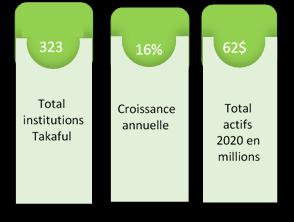

III-
Source: IFDI Report, 2021
IFC MAGAZINE-JULY 2022 59
CONCLUSION
The importance of the insurance sector is not only measured by the number of policyholders in a given country nor its contribution to GDP but also by the fundamental role it plays in the functioning of a modern economy and the social well-being of society The very low penetration rate of this strategic market requires players to develop an adapted offer, and Takaful insurance has the vocation to play this role fully
It aims to bring concrete solutions in terms of risk management to people Through risk pooling, Takaful insurance can transcend categorisation (poor/non-poor), taking into account the heterogeneity of society and the dynamics of poverty due to income irregularities. To achieve this objective, legal and regulatory changes should be considered
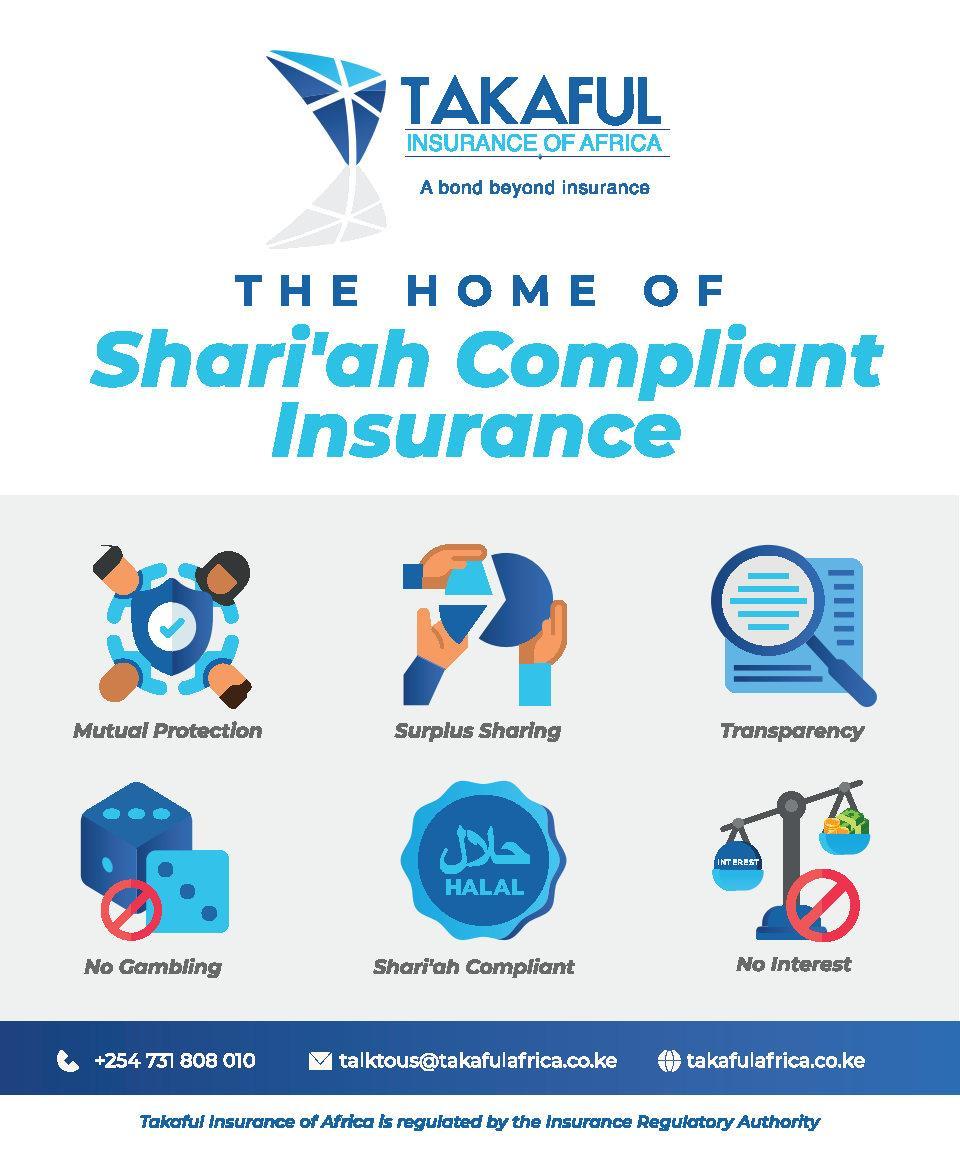
TAKAFULCONFERENCE
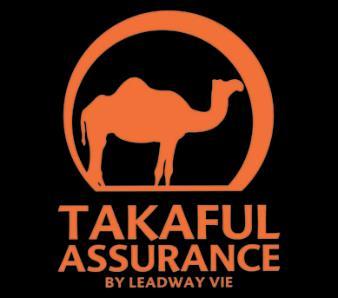
2022 isagoldenopportunityforall marketplayerstocomeandlearn whatTakafulisallabout,tolistento alltheopportunitiesthatexistin thisindustry,and,aboveall,toget involvedinthisvastprojectwhichis muchmoreprominenttodayinother partsoftheworld,EuropeandAsia, thanhereinAfrica.Meanwhile, solidarityandcommunallifeare significantconsiderationsfor Africans.Therefore,IthinkAfrica shouldtakeitsshareinthisgreat Takafulinsurancemarket,especially inthisvastIslamicfinancemarket.''
TIORNAN COULIBALY CEO LEADWAYASSURANCES
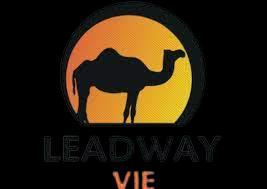
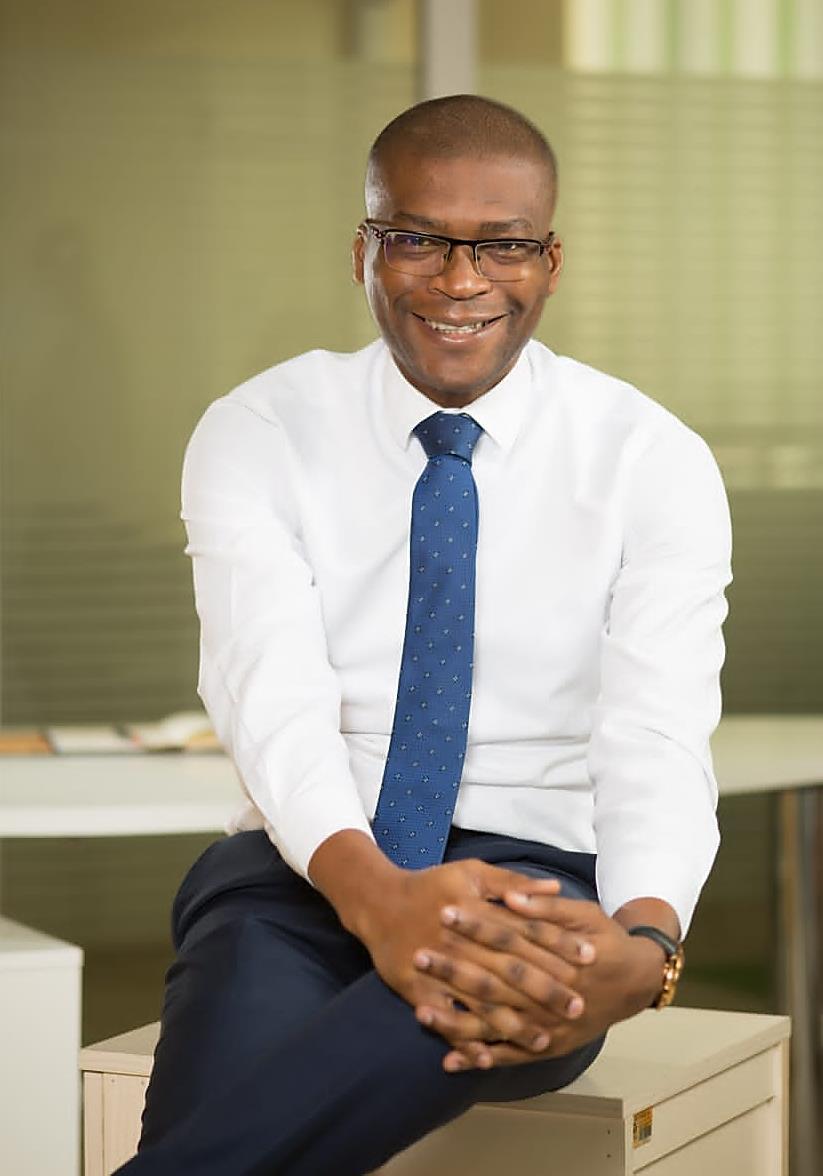 ABIDJAN
ABIDJAN
ABIDJAN TAKAFUL CONFERENCE
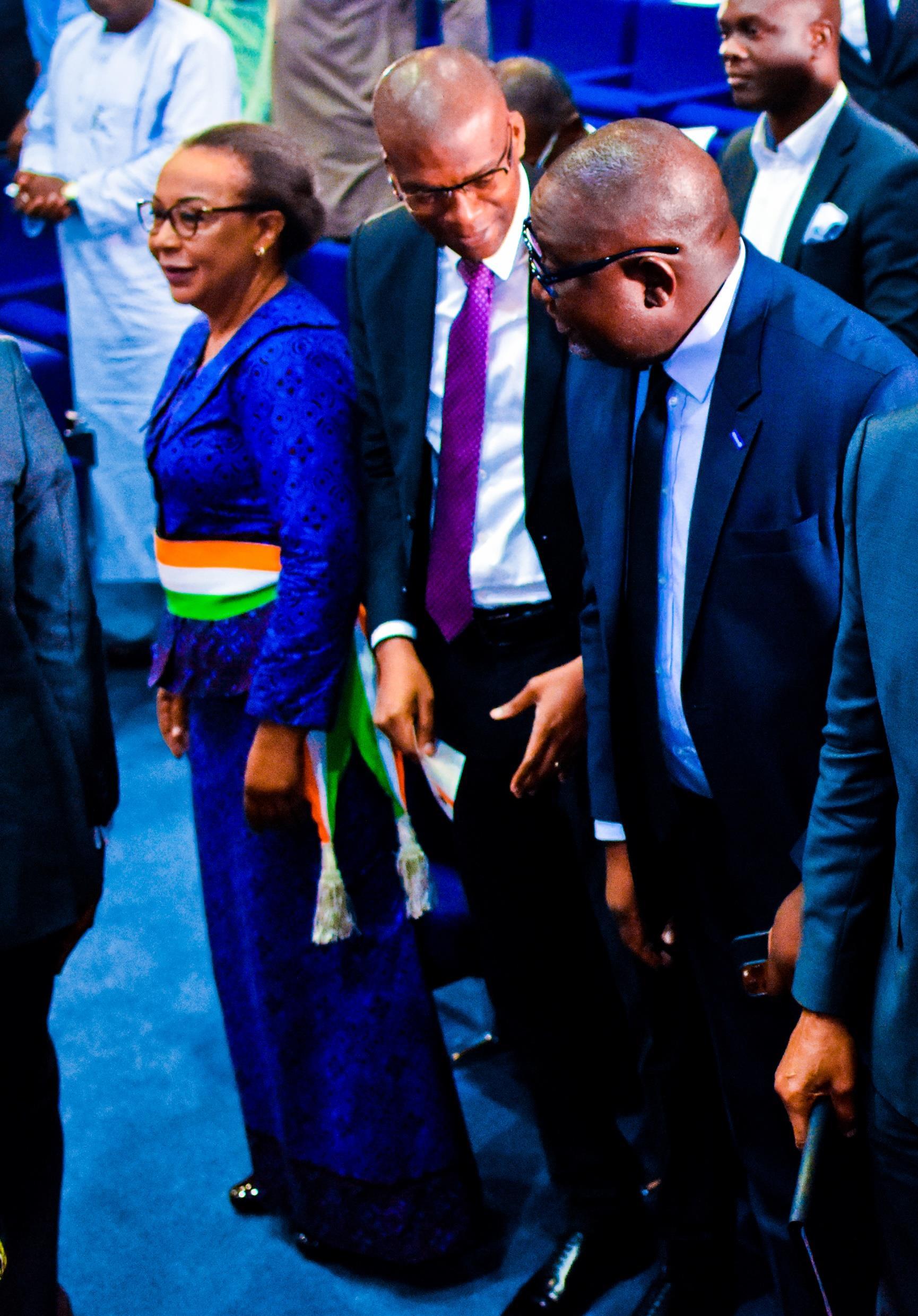
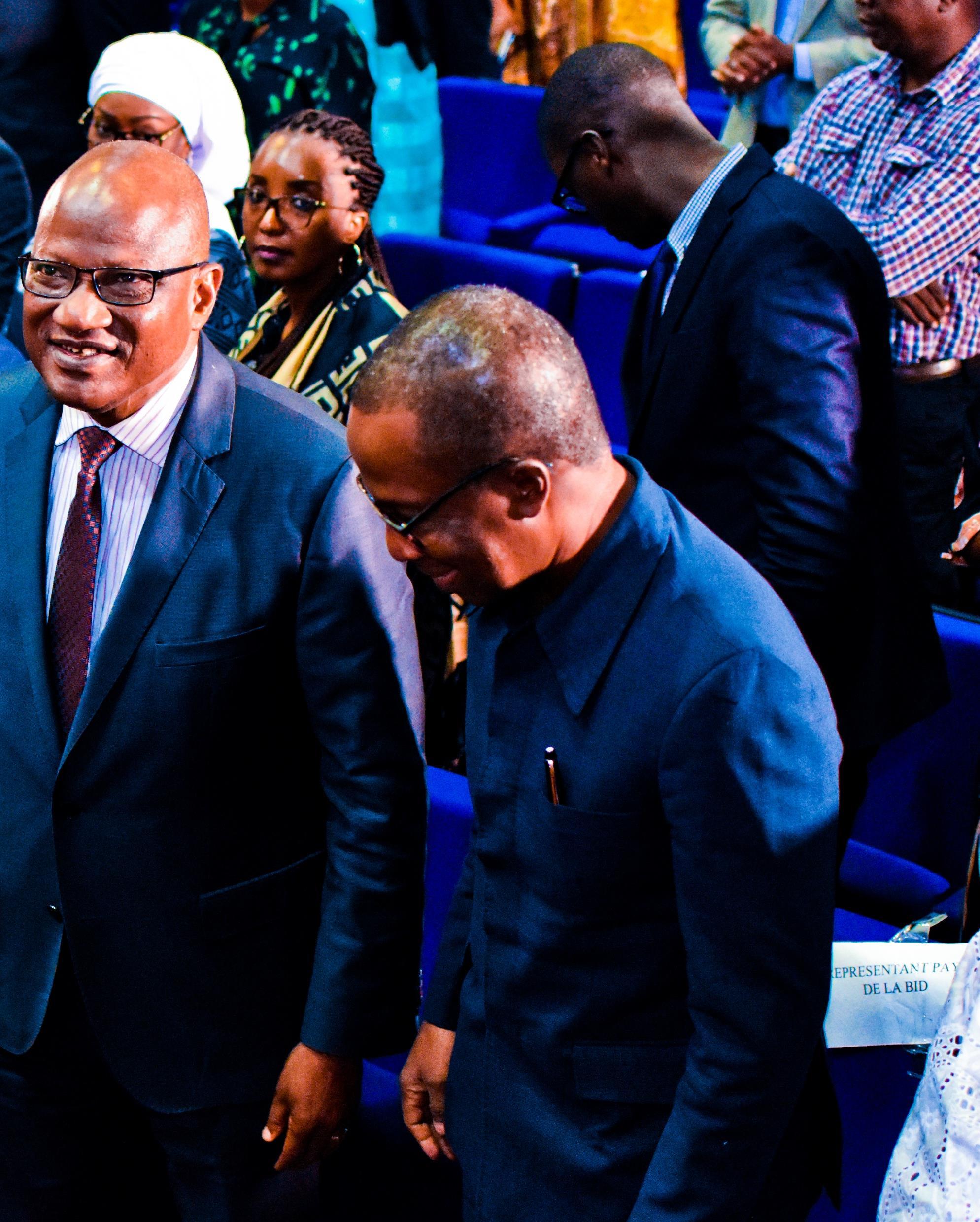

CRRAE-UMOA
Organised on the initiative of Dexterity Africa, the first edition of the forum Abidjan Takaful Conference (ATC) held on 23 and 24 June at the CRRAE-UMOA Plateau, Abidjan kept all its promises in many regards. From the quality of the moderators, speakers, and panellists to the pertinence of topics discussed and debated and the mobilisation of participants, all agreed on the success of the event's organisation With the central theme: "Harnessing the potential of Takaful to foster economic inclusion and sustainable development in Africa", around which the discussions were organised, the forum staged several activities These included panels, KeyNotes, B2B meetings, and Discovery Sessions. These various activities availed participants the opportunity to address and deepen several issues related to Takaful, Islamic insurance
ATTENDANCE OF MANY OFFICIALS
Among the personalities who took part in this first edition of ATC are:
- Mr Siaka FANNY, Technical Advisor to the Minister of Economy and Finance, Executive Secretary of the Financial Sector Development Programme (PDSFI), representing the Minister of Economy and Finance, His Excellency Adama Coulibaly;
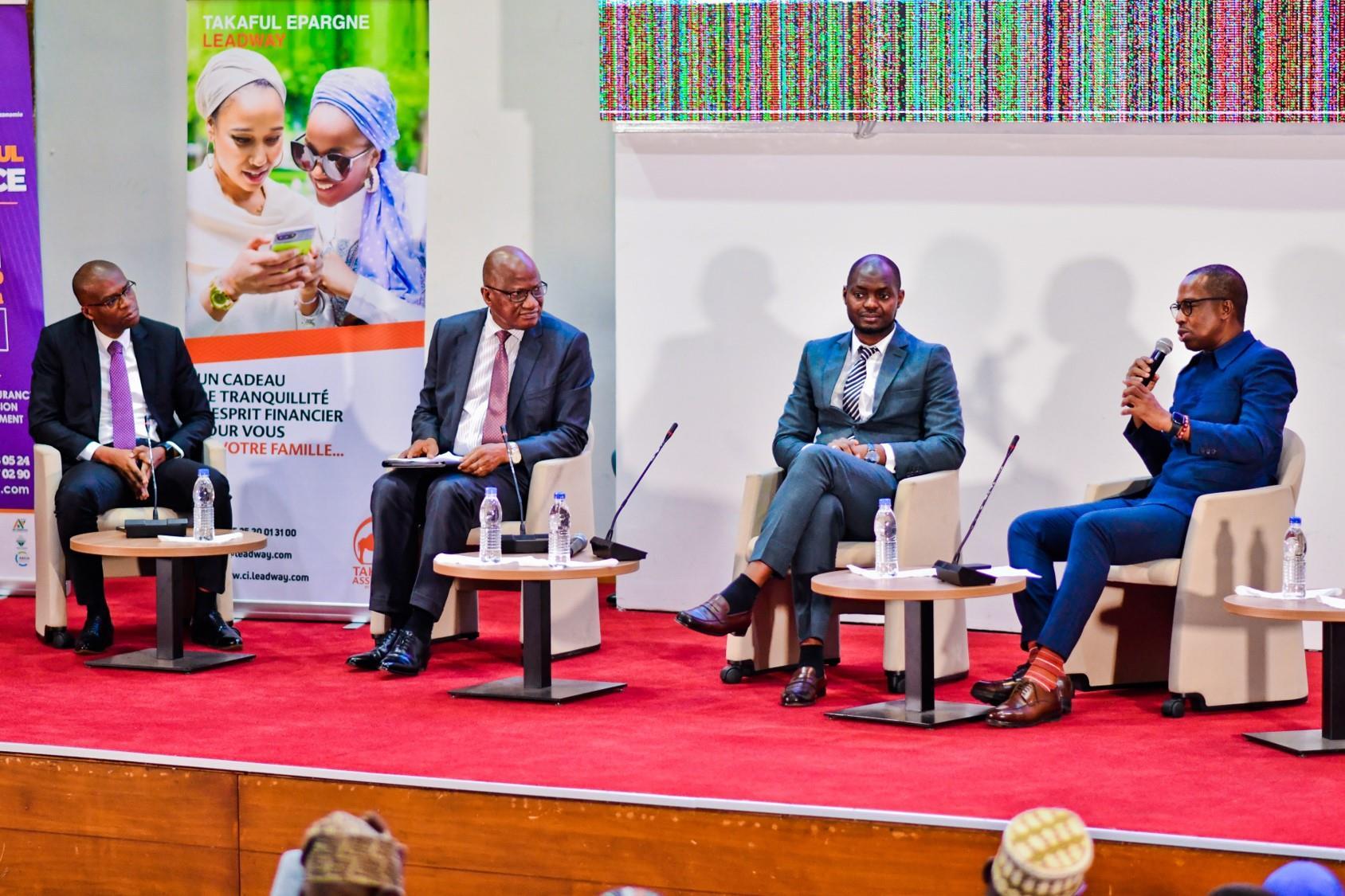
- A delegation from the Nigerian Embassy led by Mr Mohammed GANA, Deputy Head of Mission, representing the Nigerian Ambassador to Côte d'Ivoire ;
- Mr. Cheik Oumar OUATTARA, IsDB Country Representative in Côte d'Ivoire ;
- Mrs Henry Maria, Municipal Advisor, Representative of the Deputy-Mayor, Mr Jacques EHOUO, Mayor of Plateau ;
- Mr Mamadou KONE, Managing Director of Allianz Côte d'Ivoire, President of ASA-CI (Association of Insurance Companies of Côte d'Ivoire) ;
- Mr. Tiornan COULIBALY, General Manager of LEADWAY Assurance Vie in Cote d'Ivoire, GOLD SPONSOR of Abidjan Takaful Conference;
- Mrs Fatou BILE, Manager of Takaful Assurances by LEADWAY Vie (Cote d'Ivoire) ;
- Imam Daoud KONE, Representative of COSIM; - Imam Tiémoko KONE, Representative of CODIS
SPEECHES BY OFFICIALS
Invited to the podium by the Master of Conference, Mr Ibrahim Doumbia, Mrs Henry Maria, Municipal Advisor, Representative of the Deputy-Mayor Mr Jacques EHOUO, Mayor of the Plateau, was the first to deliver a speech
IFC MAGAZINE-JULY 2022 64
To begin with, she made a point of apologising on behalf of Mr EHOUO, Deputy-Mayor of the Plateau, who had wanted to be physically present at the conference However, he could not make the trip due to scheduling constraints and therefore asked her to represent him. However, she said, he supports and encourages Dexterity Africa and will always be the ideal partner for anything related to community development She went on to say that individuals must be well insured to cushion the shocks of life's hazards
TAKAFUL CONFERENCE
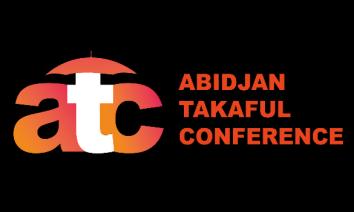
According to her, insurance is a development tool That is why she took the opportunity to commend this great initiative of Dexterity Africa which is working on breathing new life into the insurance sector with Takaful, Islamic insurance To conclude, Mrs Henry Maria also thanked the organisers of ATC for having chosen Plateau, the Smart City, to host the conference
Next was a speech delivered by the founder and CEO of Dexterity Africa, Mr Touré Sory. At the beginning of his speech, he welcomed all the participants and stressed the fact that despite the recurring crises, Africa has entered a new development dynamic Furthermore, to face the new challenges, it is necessary to diversify the financing instruments In his words, Islamic finance is one of the incredible financing sources to be further explored, as it has shown in other climes its ability to boost development through financing economic infrastructures. However, he noted, there is still a lack of knowledge of this finance by the actors To contribute to this dynamic, Dexterity Africa initiated Abidjan Takaful Conference in a bid to raise awareness about this form of finance Mr Touré insisted on the choice of the central theme of the Takaful in improving the insurance penetration rate, contributing to Africa's economic development and achieving the Sustainable Development Goals (SDGs).
Sory Touré, Founder and CEO of Dexterity Africa
Given the success stories of Takaful in Sudan, Egypt, Nigeria and Kenya, as well as its inclusive character, the CEO of Dexterity Africa remains confident of the crucial role that Takaful can play in the development of African economies He made a vibrant call to all stakeholders to work towards taking full advantage of the new opportunities offered by Islamic finance.
As for Mr Tiornan Coulibaly, General Manager of Leadway Assurance, he stated the ambition that drove the creation of a Takaful window in Cote d'Ivoire by his company According to him, this is partly explained by the fact that Leadway has in its DNA a desire to get ahead always Also, the creation of this Takaful window is due to the fact that the company wanted to address a concern from a customer segment. This concern is basically all about knowing what would happen to the premiums paid if a hazard did not occur within the stipulated period. It is against this background that he presented Islamic insurance as an answer to some of the concerns of those customers
Speaking after the CEO of Leadway, Mr Mamadou Kone, CEO of Allianz and President of the Association of Insurance Companies of Côte d'Ivoire (ASA-CI), expressed his pleasure over the advent of Islamic insurance, which will bring a new dynamic in the insurance sector. He said that as soon as he assumed the presidency of the ASA-CI in April 2021, his main concern was to identify ways to meet the needs of customers better Moreover, Islamic insurance has been identified in this regard
In turn, the representative of the Minister of Economy and Finance, Mr Siaka Fanny, reiterated his congratulations to the CEO of Dexterity Africa and the organising committee for having succeeded in organising such a conference in Côte d'Ivoire He also expressed the Minister of Economy and Finance's full support for this conference Finally, he declared open the first edition of "Abidjan Takaful Conference"
THE DEPUTY AND MAYOR OF PLATEAU, MR JACQUES EHOUO SUPPORTS AND ENCOURAGES DEXTERITY AFRICA AND WILL ALWAYS BE THE IDEAL PARTNER FOR ALL THAT RELATES TO THE DEVELOPMENT OF THE COMMUNITY.
Henry Maria, Municipal Advisor, Representative of the Mayor of Plateau
ABIDJAN
AIMS TO POSITION TAKAFUL AS A VIABLE MEANS OF IMPROVING THE INSURANCE PENETRATION RATE, CONTRIBUTING TO ECONOMIC DEVELOPMENT IN AFRICA AND ACHIEVING THE DEVELOPMENT GOALS (SDGS).
IFC MAGAZINE-JULY 2022 65
After the speeches of the officials, the conference proper started with the first panellists taking place on the stage
THE CONFERENCE
PANEL 1
This panel allowed the participants to share their visions on the type of synergy between actors to develop the ecosystem of Islamic finance in order to stimulate inclusive economic growth The panel was attendedby Mrs Kynda Compaoré (Director of Coris Baraka Group, online from Burkina Faso), Mr Siaka Fanny, Tiornan Coulibaly, and Mr Cheik Oumar Ouattara, with Mr Sory Touré as moderator The panellists agreed to strengthen cooperation between all stakeholders in order to foster the development of a robust Islamic finance ecosystem in Côte d'Ivoire and Africa
PANEL 2
Moderated by Mr Ziémogo Ouattara, this panel reviewed the regulation of Takaful in the CIMA zone Participating in the panel were Messrs Bara Diene (DG CIFIA, online from Senegal), Boubkeur Ajdir (Partner, Director IFAAS French-speaking zone), Chiheb Ghanmi (Partner, financial services, online from Tunisia) and Radhouane Ben Amara (DGA Amana Takaful, online from Tunisia) The panellists gave an extensive presentation on the regulation of Takaful in the CIMA zone and the opportunities that its adoption offers
PANEL 3
Focusing exclusively on women's leadership in Islamic finance, this panel was made up solely of women leaders in the field and reviewed the role that women play and the challenges to overcome.
PANEL 4
During this panel, the panellists highlighted the synergy that could exist in Africa between microtakaful, microfinance, Waqf and Zakat to develop innovative products for the financial inclusion of low-income people and the development of SMEs
PANEL 5
This panel discussed the new regulatory framework for the Islamic capital market in the WAEMU zone. Opportunities for all stakeholders were highlighted and new challenges were identified In details, Mr Ajdir, one of the experts who worked to make the delivery of the new regulatory framework possible, recounted the history and the main steps taken to arrive at the final draft of the regulatory framework, which is still awaiting adoption by the WAEMU authorities.
FIRESIDE CHAT
In this section, two pioneers of Takaful were given the floor, namely Dr Bachir Hassan, Founder and former CEO of Takaful Insurance of Africa Limited (Kenya) and Mr Momodou Joof, CEO of West Africa Takaful (Gambia) The panellists enriched the audience with their professional journey and experiences in the Takaful industry
DISCOVERY SESSION
Addressing the issue of the use of financial technology (Fintech) and insurance technology (Assurtech) by Takaful companies and its impact on financial inclusion, this panel reviewed existing offerings around the world and in Africa. One of the highlights of the panel was the presentation of Payday Takaful, an innovative fintech specialised in managing salary advances between employers and their employees
The conference ended at about 6 p m after Mr Boubkeur Ajdir brilliantly attended to questions and concerns raised by the audience.
By The Editorial Desk.
IFC MAGAZINE-JULY 2022 66
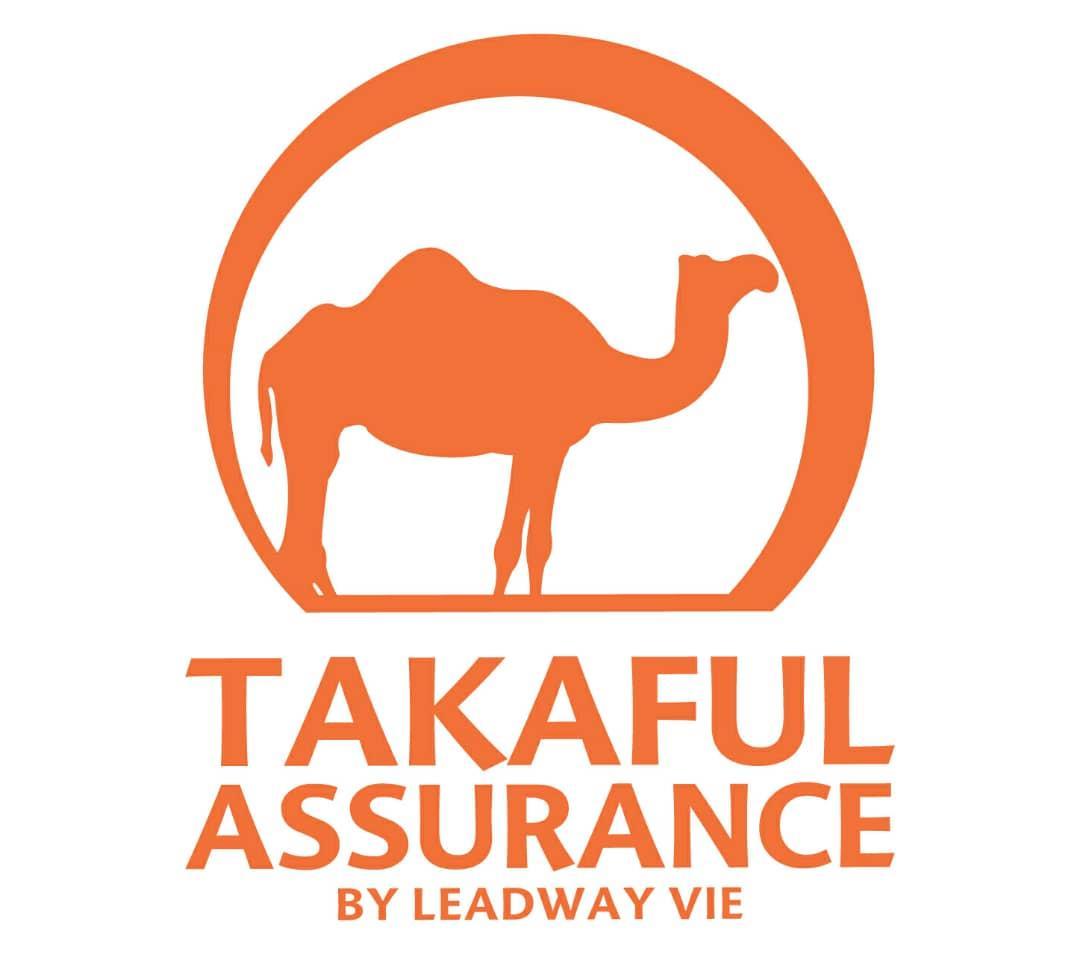
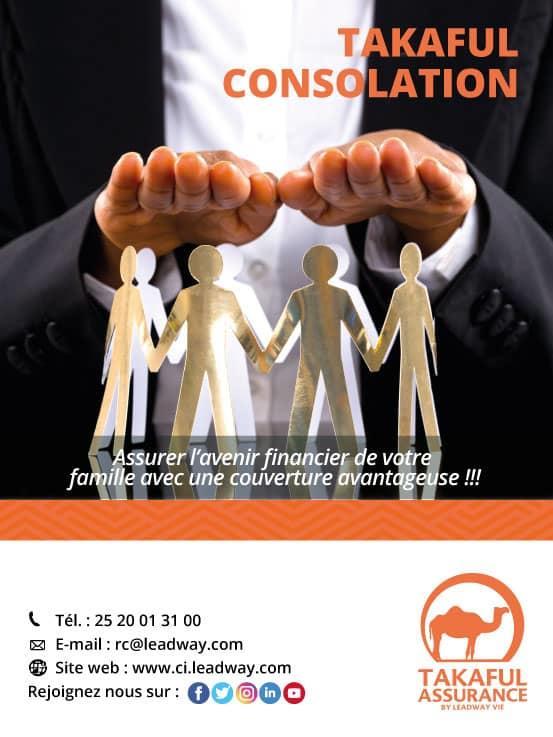

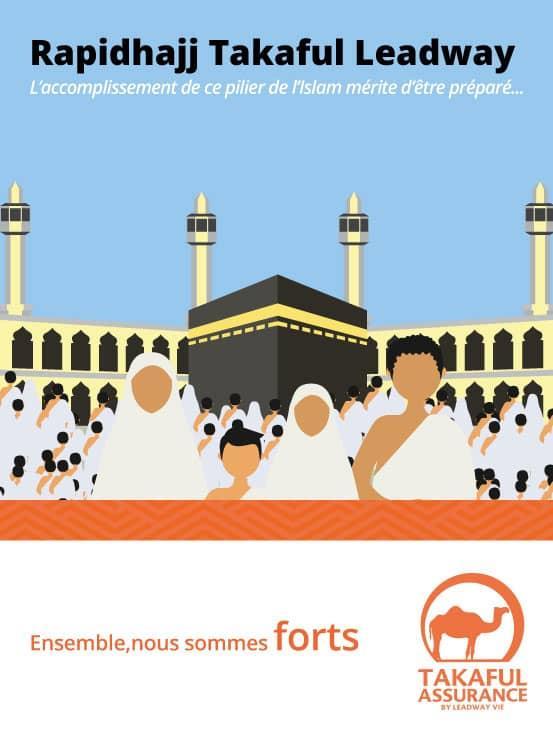
From
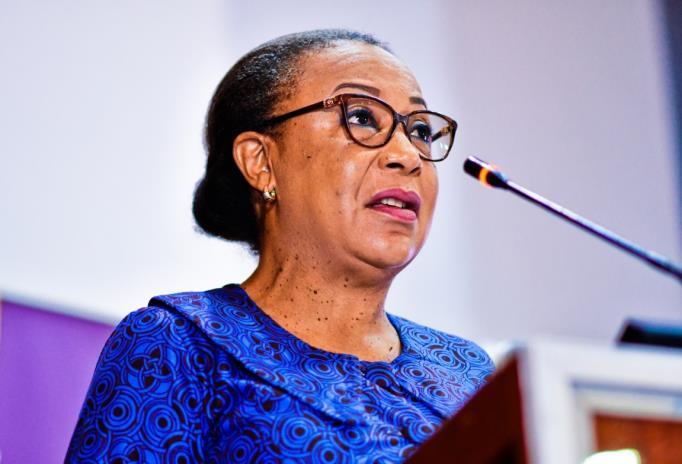
During the inaugural Panel themed: ‘’Synergies between Islamic financial institutions’’. From left to right, Mr Tiornan Coulibaly, CEO Leadway; Mr Siaka Fanny, Executive Secretary PDESFI; Mr Sory Touré, CEO Dexterity Africa; Mr Cheick Oumar Ouattara, IsDB

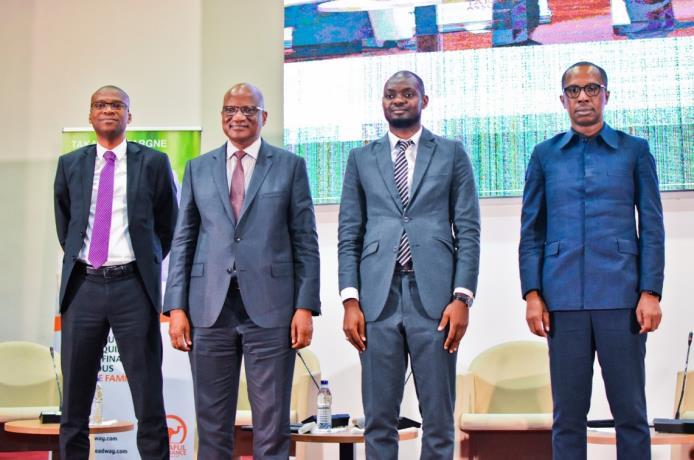

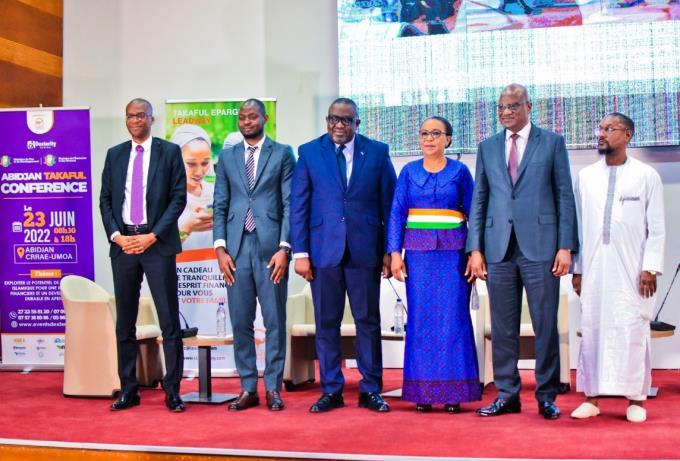
 Abidjan Takaful Conference ATC: Welcoming and settling down of guests, speeches by officials, Teach-In, Panels, Exchanges, Interviews... Review some pictures highlighting significant moments of this ceremony which was a first of its kind!
Speech delivered by Mrs Henri Maria, representative of the Mayor of Plateau.
Mr Mamadou Koné, CEO Allianz CI Assurances, President of ASACI
Panel sur Regulation of Takaful in the CIMA Zone with Mr Ziemogo Ouattara (left); Mr Boubkeur Ajdir (Centre); Mrs Maguette Sakho (right).
Country Representative.
Arrival of Imam Daoud Koné, Executive Secretary of COSIM and President of Charia Supervisory Committee de Supervision Charia of Leadway Takaful.
Abidjan Takaful Conference ATC: Welcoming and settling down of guests, speeches by officials, Teach-In, Panels, Exchanges, Interviews... Review some pictures highlighting significant moments of this ceremony which was a first of its kind!
Speech delivered by Mrs Henri Maria, representative of the Mayor of Plateau.
Mr Mamadou Koné, CEO Allianz CI Assurances, President of ASACI
Panel sur Regulation of Takaful in the CIMA Zone with Mr Ziemogo Ouattara (left); Mr Boubkeur Ajdir (Centre); Mrs Maguette Sakho (right).
Country Representative.
Arrival of Imam Daoud Koné, Executive Secretary of COSIM and President of Charia Supervisory Committee de Supervision Charia of Leadway Takaful.
IFC MAGAZINE-JULY 2022 68
left to right, Mr Tiornan Coulibaly; Mr Sory Touré; Mr Mamadou Koné; Mrs Henri Maria; Mr Siaka Fanny and Mr Momodou Musa Joof.
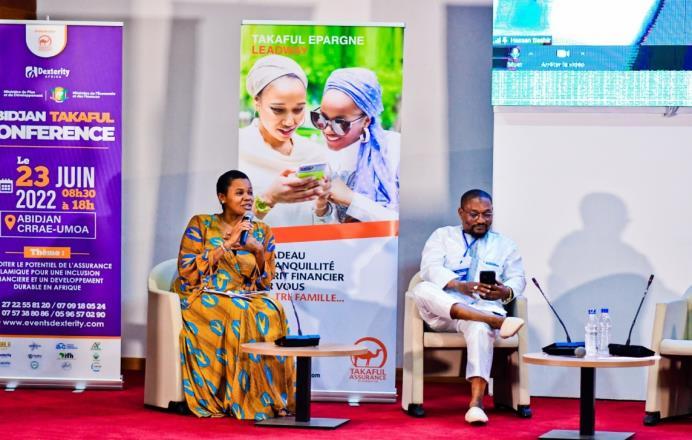


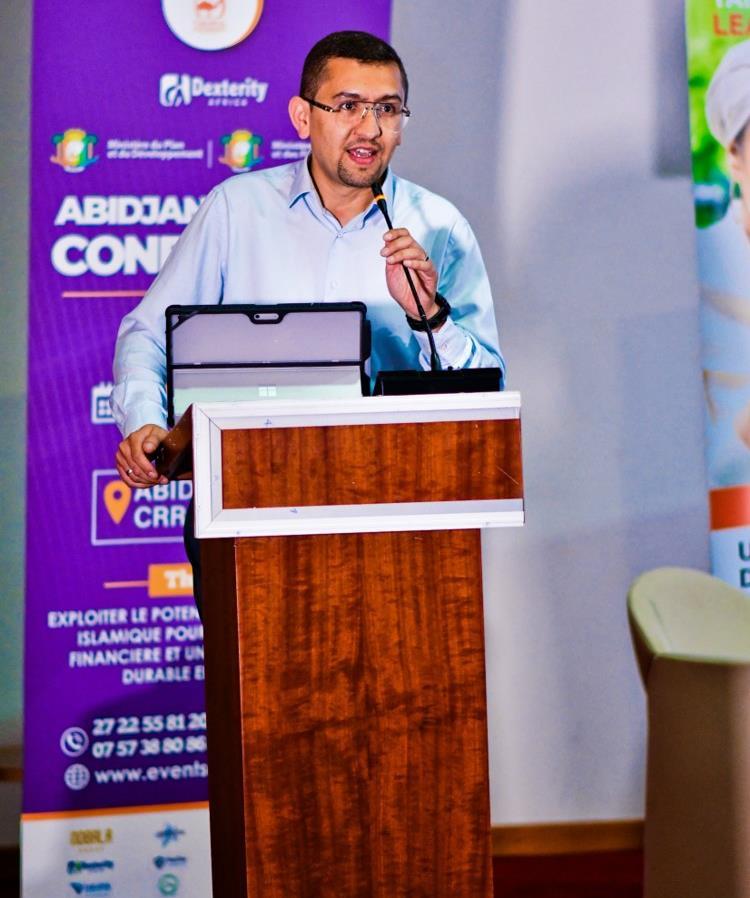
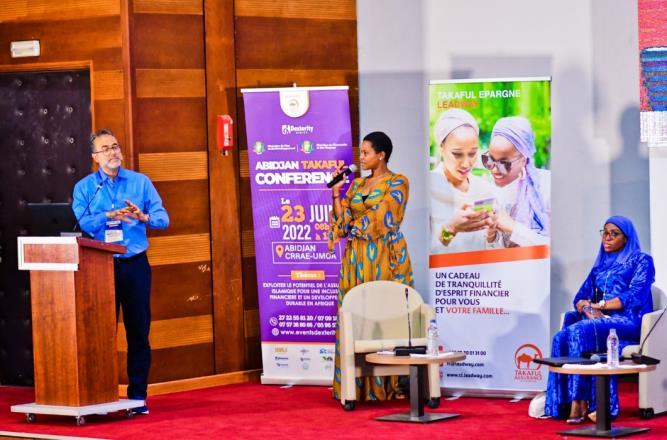
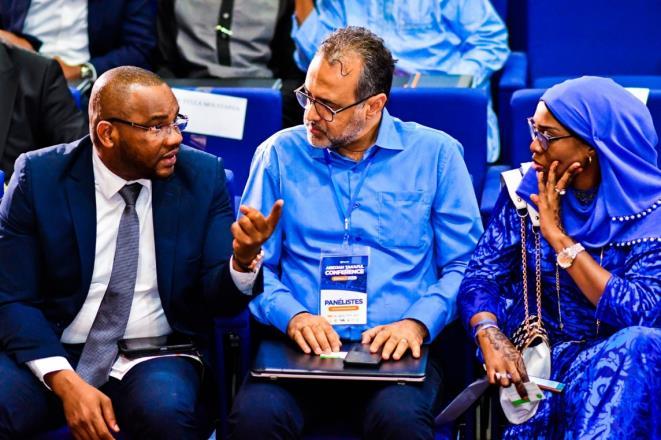
 Panel on MicroTakaful, microfinance Waqf and Zakat in Africa with Mr Nabil Kesraoui (left), Dr Dosso Mafini (Centre) and Mrs Maguette Sakho (right).
Leadway’s team with the CEO of Dexterity Africa
Discussion between Mr Boundy Bakary, Director and Coordinator of the National Participatory Microfinance and Capacity Building Programme in CI (left), Mr Nabil Kesraoui (centre) and Mrs Maguette Sakho (right).
Mr Boubkeur Ajdir, presenting a TakaTech solution, Payday Takaful.
From left to right, Mr Sory Touré (CEO Dexterity Africa) with participants in the Panel on Regulatory framework on the capital market, Mr Hamma Ndiaye, CEO Kaydar Consulting; Mr Ismaêl Adam Cissé, CEO Sirius Capital; Mr Williams Bela, CEO Property KRO; Mr Boubkeur Ajdir, Partner IFAAS).
Panel on MicroTakaful, microfinance Waqf and Zakat in Africa with Mr Nabil Kesraoui (left), Dr Dosso Mafini (Centre) and Mrs Maguette Sakho (right).
Leadway’s team with the CEO of Dexterity Africa
Discussion between Mr Boundy Bakary, Director and Coordinator of the National Participatory Microfinance and Capacity Building Programme in CI (left), Mr Nabil Kesraoui (centre) and Mrs Maguette Sakho (right).
Mr Boubkeur Ajdir, presenting a TakaTech solution, Payday Takaful.
From left to right, Mr Sory Touré (CEO Dexterity Africa) with participants in the Panel on Regulatory framework on the capital market, Mr Hamma Ndiaye, CEO Kaydar Consulting; Mr Ismaêl Adam Cissé, CEO Sirius Capital; Mr Williams Bela, CEO Property KRO; Mr Boubkeur Ajdir, Partner IFAAS).
IFC MAGAZINE-JULY2022 69
Fireside Chat with Dr Dosso Mafini (innovation Economist) and Mr Momodou Musa Joof (CEO, West Africa Takaful), among others.
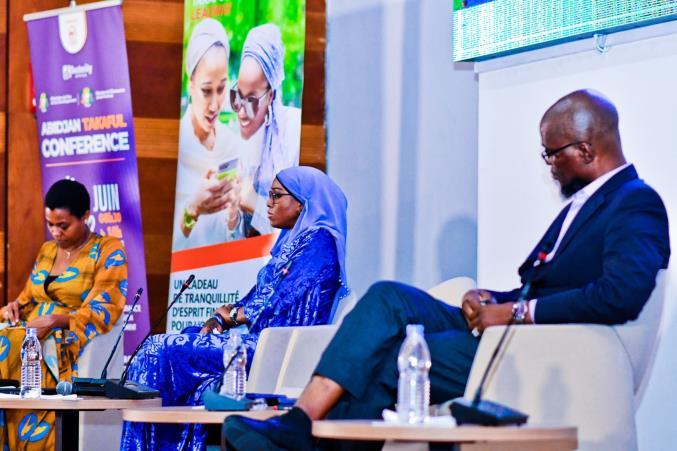

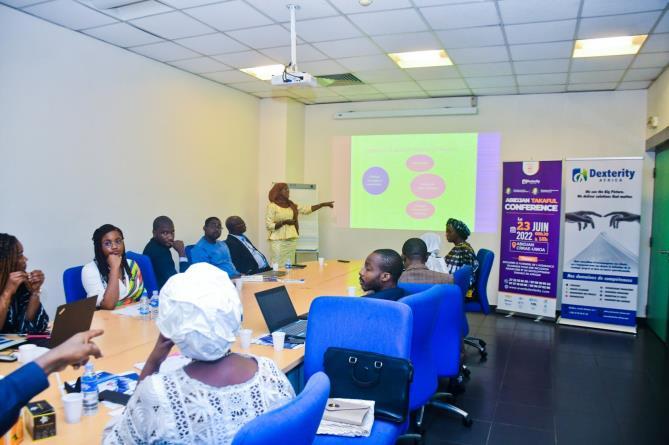


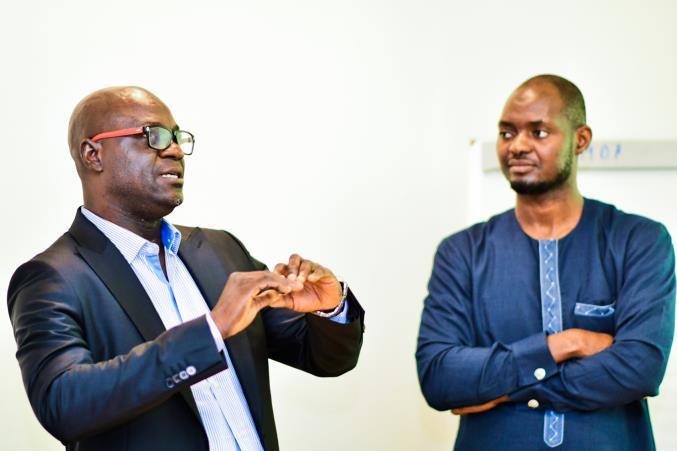 Panel on MicroTakaful, Islamic microfinance, Waqf and Zakat in Africa with Dr Dosso Mafini, Mrs Maguette Sacko and Dr Sylla, Board member, Fondation Waqf et Zakat de CI.
Mrs Maguette Sakho (right) and Mrs Masséni Barry (left), Presenter at Al Bayane TV and Moderator of the Panel CEO POWER TALKS: Women Leaders in Islamic finance.
Panel on MicroTakaful, Islamic microfinance, Waqf and Zakat in Africa with Dr Dosso Mafini, Mrs Maguette Sacko and Dr Sylla, Board member, Fondation Waqf et Zakat de CI.
Mrs Maguette Sakho (right) and Mrs Masséni Barry (left), Presenter at Al Bayane TV and Moderator of the Panel CEO POWER TALKS: Women Leaders in Islamic finance.
IFC MAGAZINE-JULY 2022 70
Experience sharing from Mr Rilwan Sunmonu, CEO Noor Takaful (Nigeria), during the Masterclass on Day 2, while Mr Sory Touré, CEO de Dexterity Africa, pays rapt attention.
Abidjan Takaful Conference ATC: Welcoming and settling down of guests, speeches by officials, Teach-In, Panels, Exchanges, Interviews... Review some pictures highlighting significant moments of this ceremony which was a first of its kind!
Mr Ibrahim Adama Cissé, CEO Sirius Capital, during his participation in the Panel on Regulatory framework of capital market.
Group photograph at the end of Masterclass on Takaful with participants, trainers and the organising committee!
Day 2: Masterclass on Takaful. During a module anchored by Mrs Maguette Sacko.

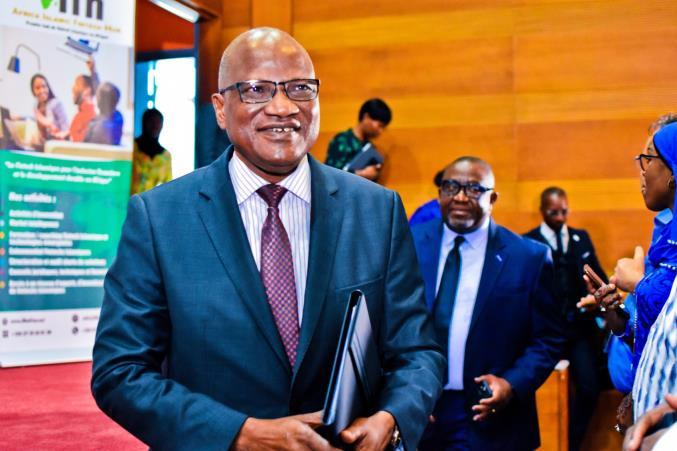
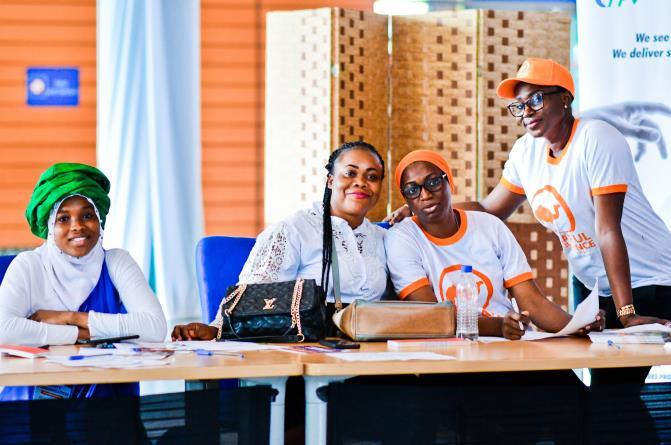
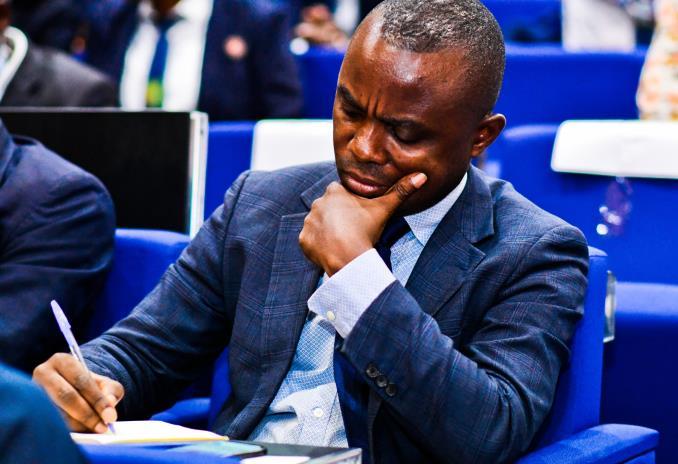
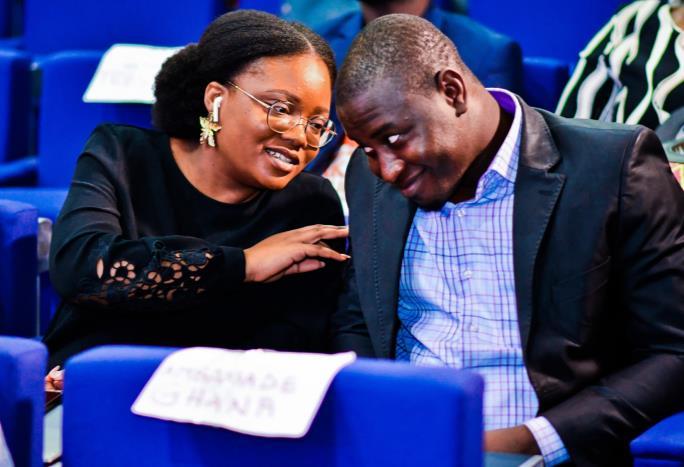

 Une participante s’imprégnant des produits et services du cabinet DEXTERITY AFRICA en finance islamique: www.dexterity-africa.com
One of the attendees taking notes!
Two other attendees sharing ideas…
Students were also in attendance.
Une participante s’imprégnant des produits et services du cabinet DEXTERITY AFRICA en finance islamique: www.dexterity-africa.com
One of the attendees taking notes!
Two other attendees sharing ideas…
Students were also in attendance.
IFC MAGAZINE-JULY 2022 71
An international jurist also graced the occasion with her presence. A group photograph with an usher, a member of the organising committee, and two marketers of Leadway Takaful.
Mr Fanny Siaka, Executive Secretary PDESFI, Representative of the Ministry of Economy and finance.
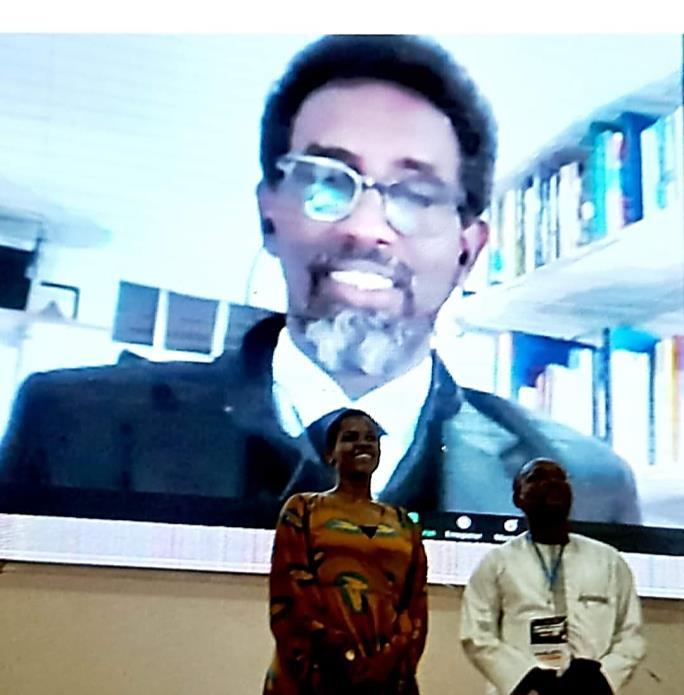
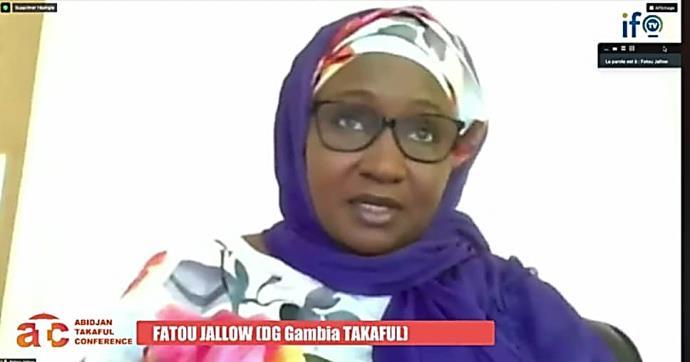





 Dr Hassan Bachir, Founder and ex-CEO of Takaful Insurance of Africa (Kenya), joined the discussion during the Panel Dialogue with a pioneer of Takaful, together with Mr Momodu Joof, CEO of West Africa Takaful (Gambia) and Dr Dosso Mafini, the moderator.
Mr Said Amaghdir, DGA, Winéo Asset Management (Morocco), giving his contribution during a Panel on the New regulatory framework of the Islamic capital market in the WAEMU zone.
Mr Radhouane Ben Amara, Deputy MD Amana Takaful (Tunisia), contributed to the Panel on the New regulatory framework of the Islamic capital market in the WAEMU zone.
Contribution from Mr Chiheb Ghanmi (Partner, Financial Services à GAC Audit et Conseil) during the Panel on the New regulatory framework of the Islamic capital market in the WAEMU zone.
Mrs Fatou Jallow, CEO of Takaful Gambia (Gambia), partaking in the Panel CEO POWER TALKS: Women Leaders in Islamic finance.
Dr Hassan Bachir, Founder and ex-CEO of Takaful Insurance of Africa (Kenya), joined the discussion during the Panel Dialogue with a pioneer of Takaful, together with Mr Momodu Joof, CEO of West Africa Takaful (Gambia) and Dr Dosso Mafini, the moderator.
Mr Said Amaghdir, DGA, Winéo Asset Management (Morocco), giving his contribution during a Panel on the New regulatory framework of the Islamic capital market in the WAEMU zone.
Mr Radhouane Ben Amara, Deputy MD Amana Takaful (Tunisia), contributed to the Panel on the New regulatory framework of the Islamic capital market in the WAEMU zone.
Contribution from Mr Chiheb Ghanmi (Partner, Financial Services à GAC Audit et Conseil) during the Panel on the New regulatory framework of the Islamic capital market in the WAEMU zone.
Mrs Fatou Jallow, CEO of Takaful Gambia (Gambia), partaking in the Panel CEO POWER TALKS: Women Leaders in Islamic finance.
IFC MAGAZINE-JULY 2022 72
Dr Aishath Muneeza, Associate Professor, INCEIF (Malaysia) making her contribution during the Panel CEO POWER TALKS: Women Leaders in Islamic finance.
Mrs Sumayya Hassan, CEO of Takaful Insurance of Africa (Kenya), making her contribution during the Panel CEO POWER TALKS: Women Leaders in Islamic finance.
According to AAOIFI Standard 26, "Islamic insurance is an agreement between persons facing certain risks to compensate for damages resulting from those risks The persons in question pay contributions, as donations, to an insurance fund with a legal status and its own assets The fund's resources are used to compensate participants who suffer a loss covered by the insurance in accordance with the regulations and conditions of the insurance policies."
Takaful insurance is, therefore, a mutual guarantee based on the principles of Islamic finance, which are:
• Sharing of risk between the parties to the contract ;
• Materiality: any transaction must have a "material purpose", directly or indirectly linked to the actual economic transaction;
• Non-exploitation: financial transactions must never lead to the exploitation of one of the contracting parties;
• the prohibition of financing "haram" or illicit activities related to producing alcoholic beverages, pork, pornography, and gambling These principles stem from the prohibition, by religious law, of three practices:
• Riba: literally means increase, addition It refers to usury, the interest earned on money lent, borrowed, or deposited in a bank account.
Takaful Insurance as a Tool for Financial Inclusion
• Gharar: the sale of an unowned property
• Maysir: gambling, speculation
''Micro-takaful" is the Islamic alternative to "conventional micro-insurance", which refers to insurance products offered to disadvantaged people. Micro-takaful is an Islamic assistance fund based on the principles of mutual assistance and voluntary contribution to the low-income population It is a social and protective mechanism with Takaful products tailored towards this disadvantaged population Micro-takaful must meet certain criteria:
• The distribution channel is through individuals or corporate entities involved in the fight against poverty (Islamic banks, Islamic microfinance institutions, NGOs, cooperatives, associations, mutuals, insurance companies, brokers, dedicated or mandated agents;
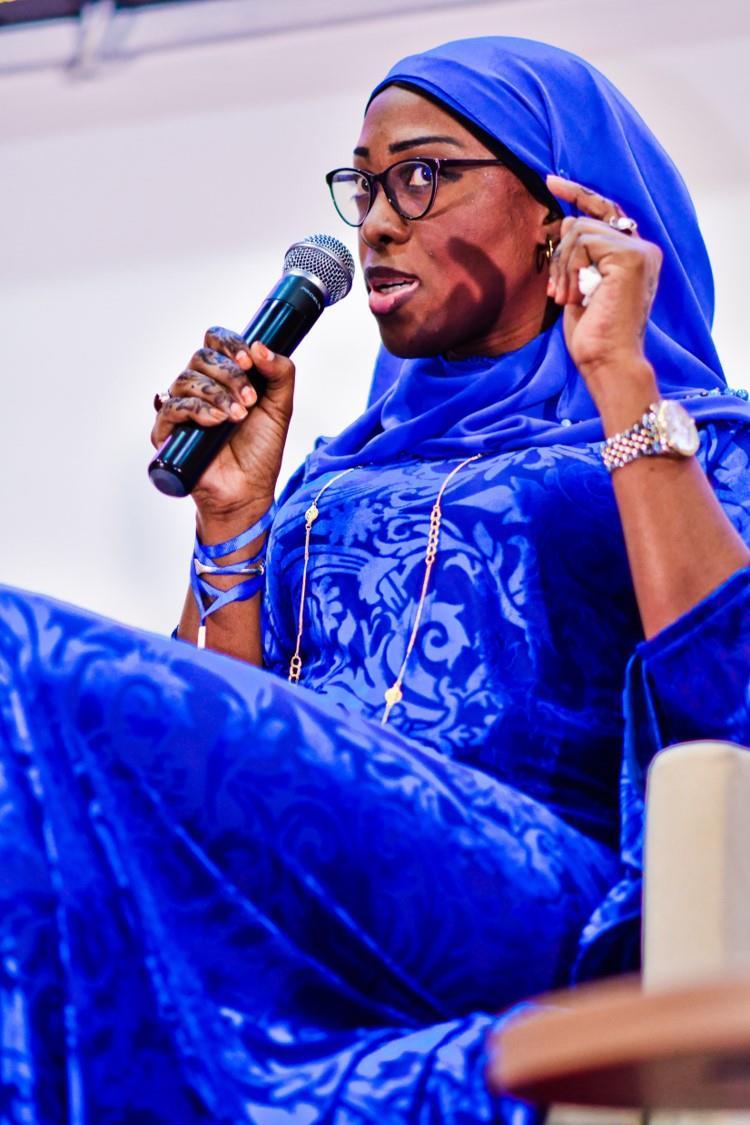
• The mechanism and texts must be simple, clear, and accessible to the targets;
• The participants are people with low or irregular income ;
• The amounts of contributions to the Microtakaful fund are accessible to the participants;
• The use of Islamic financial instruments based on charity and solidarity to mobilise funds (Sadaqat, Zakat, qard hasan, ...);
According to the UNCTAD report, less than half of African countries have achieved inclusive growth over the past 20 years, and 34% of households live
IFC MAGAZINE-JULY 2022 73
below the poverty threshold ($1 9 per person per day). This situation most often affects women and young children. To fight this scourge, several community strategies have been put in place by women (tontine, thrift, solidarity, sharing, EIG, association, cooperative) in order to invest in incomegenerating activities and to achieve financial autonomy Financial services have been created by Islamic finance (Islamic banks, Takaful insurance, Islamic microfinance institutions, Micro-takaful, ) to contribute to the financial inclusion of their audience.
citizens to a diversified range of adapted financial products and services, at affordable costs and used effectively and efficiently"
Takaful insurance and micro-takaful are mutual guarantees based on the principle of Islamic finance with different targets In Africa, solidarity, sharing, and mutual aid have always existed, and these values are also part of the criteria of Takaful.
Financial inclusion is the opposite of "financial exclusion", which is an aspect of social exclusion, a much broader concept A financial system is inclusive when it is accessible without constraint to all segments of the population Financial inclusion is considered a driver of sustainable development Three sectors (3) contribute to strengthening financial inclusion in Africa:
Financial Inclusion from the UN Perspective
The definition of financial inclusion proposed by the UN reads as follows: ‘’access, at a reasonable cost to all households and businesses, to a wide range of financial services: savings, short and long-term credit, leasing and factoring, mortgages, insurance, pensions, payments, local currency transfers, and international remittances ’’
Financial Inclusion from a WAEMU Perspective
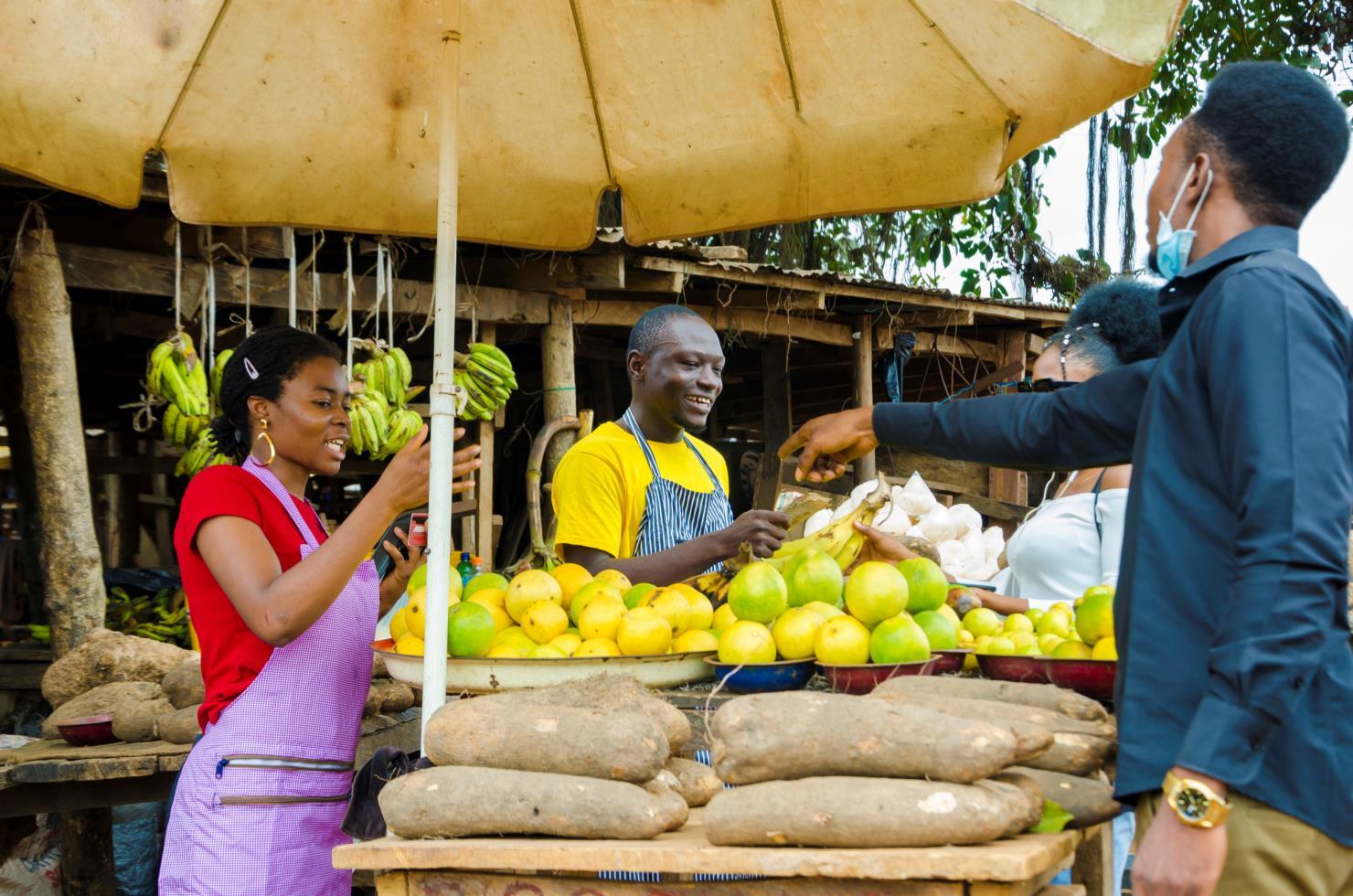
In the WAEMU zone, the definition of financial inclusion goes as follows: "the permanent access of
- The banking sector, which includes banks, national savings banks, postal services, and the public treasury;
- The electronic money service with the electronic money issuing institutions;
- Decentralised financial systems (microfinance institutions);
Data from the BCEAO, July 2019, showed the participation of these sectors in the development of financial inclusion The Strict Banking Rate (SBT) increased from 16 4% in 2017 to 19 3% in 2018 The Extended Banking Rate (EBR), including the Strict Banking Rate plus account holders in microfinance institutions, saw a positive evolution of 41.3% in 2018 against 35.6% in 2017. Furthermore, the Overall
IFC MAGAZINE-JULY 2022 74
Financial Services Utilisation Rate (OFSUR) increased from 53 6% in 2017 to 57 1 in 2018
To increase the development of financial inclusion and serve this low-income population, some companies, Takaful and Micro-Takaful windows, in collaboration with Islamic financial institutions, have developed financial services via fintech and insurtech (credit-health-death, borrower-funeral insurance, ) to cater for this population and strengthen the financial soundness of their business Almost 70% of this population, who come together via tontines, associations, EIGs, and cooperatives, have a smartphone or have accounts in these Islamic financial institutions. They can benefit from microcredits, with a CREDIT INSURANCE that covers the outstanding balance in case of death. They can also benefit from health insurance that covers them in case of illnesses Thus, it allows them to take care of themselves in order to be able to fulfil their commitment and prevent the misuse of the loaned funds Takaful insurance, as well as micro-Takaful, aim at protecting the mutuality, the guarantee, and the mutual assistance of its participants. Through financial services, they can manage their portfolio, succeed in their mission, and increase the accessibility of Takaful or micro-Takaful products across all segments of the population
They constitute an instrument for financial inclusion with a system of protection (family and general Takaful), fight against systemic poverty, and guarantee Islamic institutions with the provision of financing (borrower credit insurance). This allows the development of income-generating activities for women's groups and helps their socio-economic integration To achieve this financial inclusion, it is necessary to accompany it with financial education alongside an awareness of the products and services of Takaful and micro-Takaful companies and social marketing (to make them adhere naturally to the Takaful insurance ideology) at the level of women's groups (associations, tontines, cooperatives, EIGs, ...).
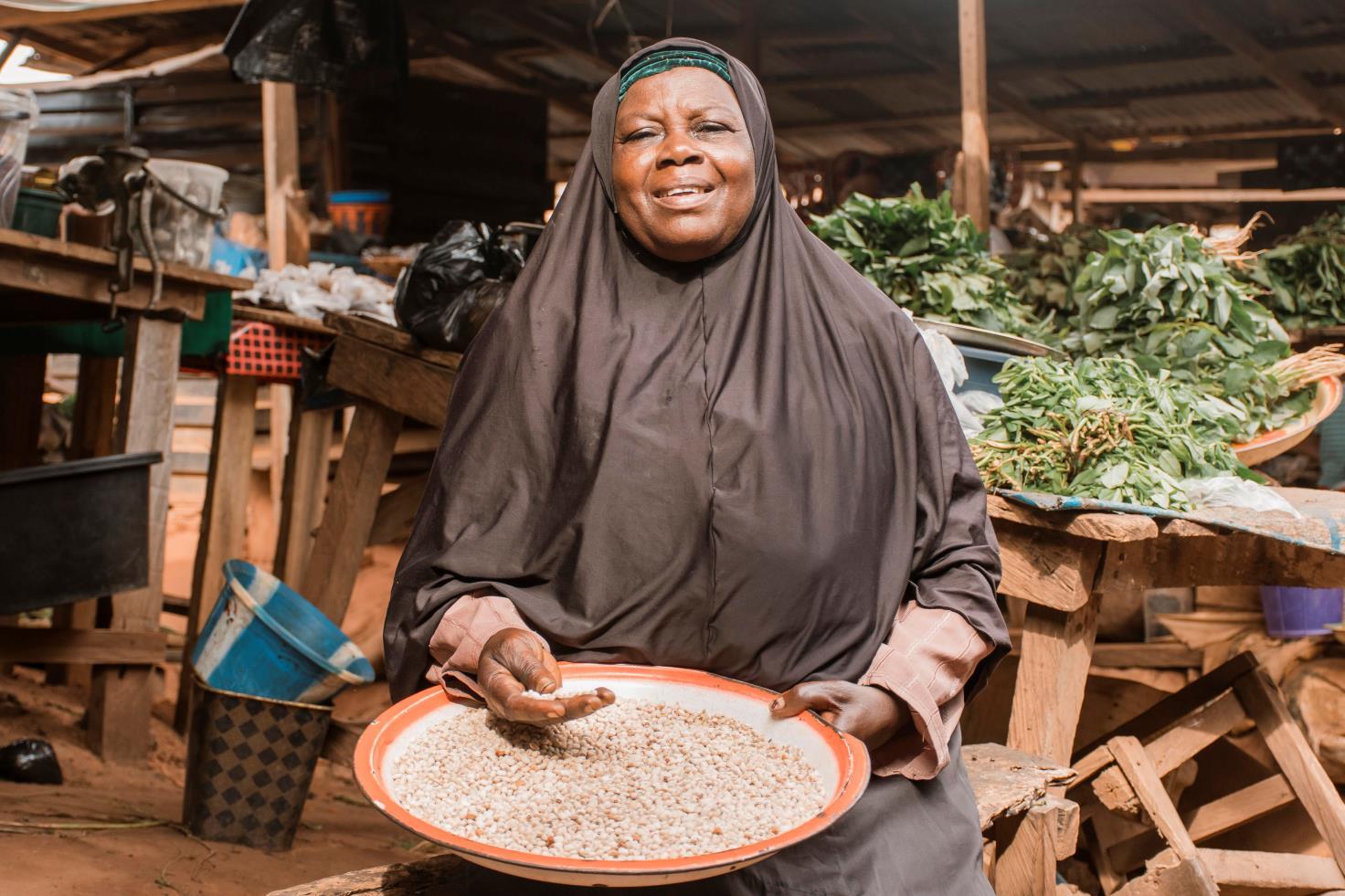
IFC MAGAZINE-JULY 2022 75
What is the definition of Takāful insurance?
The word Takāful means "solidarity, symbiosis," it comes from the Semitic root kafala, which means "to assure, to bond, to guarantee." In Malaysia, a pioneer country in this field, Article Two of the 1984 Act defines Takāful as "a system based on brotherhood, solidarity and mutual assistance." In Tunisia, Article 201 of the Insurance Code defines it as "a contractual regime by which a group of people called 'members' undertake to help each other in the event of the realization of the risk or at the stipulated term in the takāful insurance contract, and, this, through the payment of a sum by way of donation called ''contribution''. Takāful is considered by the fuqahā" as a contract of donation in which a group of participants agrees to guarantee a loss/damage affecting one of them mutually by means of a pact. This insurance system is based on principles of Tabarru' "gift, donation, liberality, offering, gratuitous act" and ta'āwun "mutuality, synergy, mutual aid, cooperation", where the group voluntarily shares the risk collectively. In a takāful contract, participants pay a sum of money, as a tabarru' pledge into a common fund, to be used mutually to assist members against a specified type of risk
The Tabarru' commitment is a central pillar of Takāful insurance, and it is the amount paid by each takāful participant to fulfil mutual aid obligations to settle insured claims To the extent that the Tabarru' commitment as the basis for contributions mitigates the gharar element of the takāful contract, and although there is still some uncertainty as to when the risk will materialize, this uncertainty is considered tolerable in a donation contract and does not invalidate the contract. In a Takāful contract, it becomes evident that a Takāful participant is entitled to the benefit of the Takāful fund because the other takāful participants willingly agree, on the principle of mutual aid, to donate the amount of his contribution to compensate him for the loss suffered.
How is it different from conventional insurance?
In conventional terms, insurance provides security and compensation for what is valuable in the event of loss, damage, or destruction According to Muslim law, there are two aspects of conventional insurance: conceptual and practical
As for the conceptual aspect of insurance, it is not only recognized but also encouraged and rewarded in Islam Jurisconsults have found the very concept of insurance to be consistent with Islamic law. Measures of mutual indemnification and risk reduction through the law of large numbers were already practised at the time of the Prophet (Peace be upon him) The foundation of shared responsibility was laid in the systems of mutualization of group contributions allowing, in the Aqilah framework, to indemnify the victim's family and in the daman khatar at-tariq

IFC MAGAZINE-JULY 2022 76
framework, to guarantee losses occurring during the travels of merchants' caravans. However, the practical aspect of conventional insurance poses a problem of compliance of the insurance contract with Islamic law: firstly, owing to the gharar it contains in the perception of a majority of jurisconsults, and secondly, owing to the presence of ribâ in the companies that carry out the insurance business. Since gharar and ribâ are unambiguously forbidden by Islamic law, they cannot be allowed under the pretext of the conceptual aspect. In the case of the conventional insurance contract, if the loss does not occur, the insurer keeps the premium, and the insured loses it: this can be likened to a form of Maysir leading to a risk of khatar. First, the probability of gain is much lower than the probability of loss, for which the insured pays a small premium in order to collect a larger one if the event occurs. Secondly, the insured is paying a premium with certainty while the settlement of the claim remains uncertain for him. In Islamic law, any disproportionate or unbalanced contract that allows an unfair loss to one party in favour of another is considered to contain maysir, which invalidates the contract. On the company's side, if the indemnities are higher than the premiums paid, the insurance company will be in deficit, which is also considered by most jurisconsults to be an element of maysir The other characteristic element of conventional insurance is the presence of riba in investments with fixed interest and other related practices of the investment activities of conventional insurance companies. Moreover, in the occurrence of a claim, there will be a difference between the amount of the claim settlement and the amount of the premium paid, which will also be
considered as ribâ. These reasons led the majority of jurisconsults to declare conventional insurance unlawful and propose a more equitable mutual insurance solution based on a contract of unilateral donation (uqud attabarouat) and not on a contract of commercial exchange (uqud almuawaddat). Therefore, the fundamental difference lies in the dimension of risk-sharing between the participants and thus in their mutualization. Thus, it can be said that conventional insurance is based on the transfer of risks while takāful insurance is based on the sharing of risks. These donation contracts are considered charitable, and most legal schools of Islam have accepted the non-application of the prohibition of gharar for this type of contract, although their results may be uncertain. This is because these are not commercial contracts but charitable works, for which the participants wish to donate in order to do good and please God.
What guarantees are in place for this new product to develop?
Takāful insurance serves a dual need. Firstly, it addresses the need for the preservation of people and property and is fully in line with Islamic law, which has preservation as its purpose. This classification of takāful insurance as a response to the need for preservation of both people and property efficiently reflects the enormous potential of the demand issued by individuals, companies and other organizations such as institutions, associations and communities. Furthermore, takāful insurance meets the needs of modern society. Correlated with the modern lifestyle society is adopting, households are giving more and more importance to insurance expenses and covering their risks.
Encouraged by the economic and
demographic development, the development opportunities in the insurance sector are considerable given the low penetration rate and the emergence of new security and provident needs linked to the modernization of society. To penetrate the market demands, these expectations must be met through an adapted marketing strategy regarding the development of the offer and the communication used.
As an insurance innovation that respects Islamic law, Takāful insurance makes it possible to meet these needs: it not only meets the expectations of participants but also fulfils an important social function and contributes considerably to the development of the insurance sector in countries where it is underdeveloped.
What is the state of global takāful insurance development, specifically in Africa?
According to Refinitiv, with 323 Takāful operators, global contributions were worth $62 billion in 2020, equivalent to two per cent of the global Islamic financial services sector. Iran, Saudi Arabia and Malaysia are the largest takāful markets, followed by Indonesia and the United Arab Emirates.
In Africa, the market is dominated by Sudan, Egypt, Tunisia and Kenya. There are smaller presences in Nigeria, Senegal, South Africa, Gambia, Mauritania, Zambia, and Algeria, which has just launched. Takāful insurance is expected to launch soon in Morocco after legislation was passed in 2019. The Egyptian insurance market is dominated by the state-owned Misr Insurance, which holds about 45 per cent of the market.
There are 11 takāful companies, with an overall stronger presence in the non-life sector of the market. These companies include Misr Group's takāful subsidiary, Misr Takāful
IFC MAGAZINE-JULY 2022 77
In 2020, Misr worked on creating a new family Takāful business with external partners. This is expected to provide a solid foundation for developing the family takāful sector in a country where life and health insurance accounts for nearly half of the market.
Nigeria has a considerably low insurance penetration rate compared to economies with similar GDP per capita. In recent years, premium growth has not kept pace with inflation. The sector is also undergoing a massive restructuring following the new capital requirements announced by the regulator, which came into effect in December 2020. As a result, six insurers have indicated their intention to merge, and seven others have announced that they will raise new capital. Four Takāful companies have composite licenses, representing less than 1 per cent of the insurance industry. This percentage is somewhat smaller than in Kenya, where there is only one Takāful company but an overall larger insurance market.
Can you reflect on your experience as a wholesale broker in Takāful insurance in France?
Initiated at the request of Muslim associations and undertakers established in France, we launched Sakina Funérailles in 2021, the first Takāful offer in France designed to finance funerals and repatriation. This coverage allows its holder to cover funeral and possibly repatriation expenses by integrating religious rituals and respecting their last wishes. To facilitate the distribution of the Sakina Funeral solution in this period of health crisis, we have launched a digital platform that allows you to make estimates, edit membership forms and sign them electronically.
The guarantees are granted from 12 to 85 years of age; the subscription is made without a medical questionnaire.
The contract allows the participant to obtain a capital sum to cover funeral expenses and repatriation in the event of death. In the event of death, the capital opted for at the time of subscription will be paid to the beneficiary designated in the contract.
The beneficiary of the contract can be an individual or a corporate entity such as a funeral home that can pay the funeral and repatriation expenses directly to the deceased's country of origin.
According to Les Echos études, the potential turnover of Takāful in France is estimated at 3.5 billion euros or 1.70% of the total insurance market. On this basis, France could become the fifth largest Takāful market in the world. Justifiably, the European Central Bank indicated in its report on Islamic finance published in June 2013 that Islamic finance seemed to have a good potential to develop in France. For this industry to harness its full potential, it is essential to foster the emergence of a major regional or global player from which all other players seek to take their market shares. With the launch of Sakina Funérailles, this is our ambition!
IFC MAGAZINE-JULY 2022 78
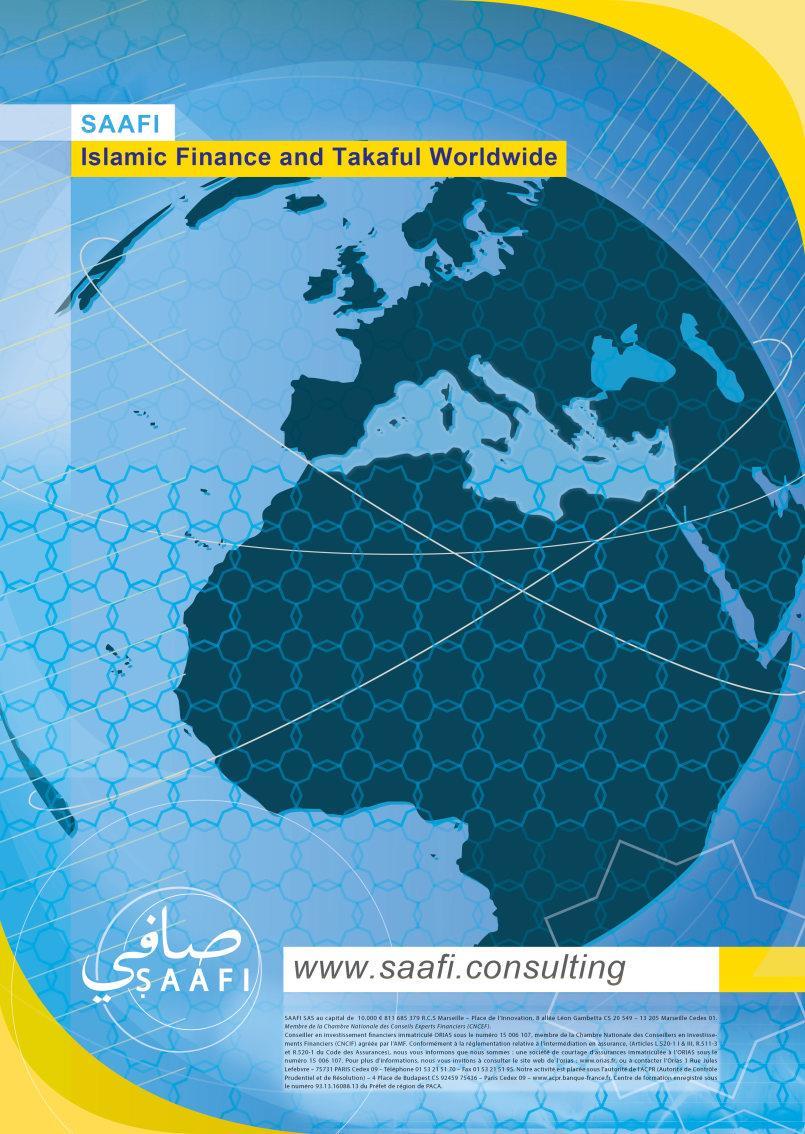
What partnerships between Development Institutions and Zakat Funds to achieve the Sustainable Development Goals?

The progress made in recent years as a result of the efforts made by governments and all development partners, with the ultimate goal of achieving the Sustainable Development Goals (SDGs), is now seriously compromised This is because the global extreme poverty rate, which has been declining for over twenty years, has increased in 2020 (between 88 and 115 million additional people have fallen into poverty, according to the World Bank). There is a degree of uncertainty about prospects and the achievement of the global goals This situation is attributable to the adverse effects of a combination of three main factors: the COVID-19 pandemic, recurrent armed conflicts, and climate change This problematic context aggravates a situation where the annual financing gap at the time of the adoption of the MDGs in 2015 was already estimated at US$2,500 billion
To remedy this situation, new sources of financing should be sought and mobilised in order to re-orientate the world economy in the right direction by financing the SDG projects In this context, some Islamic finance products (Sukuk, real estate Murabaha, ) are already mobilised for this purpose. However, its potential remains poorly exploited insofar as Islamic social finance, whose principles and objectives align with many SDGs, remains underdeveloped in many countries. It is clear that Islamic social finance through Zakat could be one of the new alternative sources to explore Indeed, according to the World Bank (2016), the potential of Zakat could reach US$1,000 billion in the coming years.
It is therefore certain that such a source of financing cannot be ignored insofar as, on the one hand, it constitutes enormous financial resources that are immediately available, and, on the other hand, Zakat is perfectly consistent with the objectives pursued through the SDGs
In this context, partnerships between international institutions in the field of development and the institutions in charge of Zakat funds should be encouraged and strengthened to unlock them and put them at the service of the SDGs.
Zakat is an Arabic word that could be translated into French as "legal alms" It is the third pillar of Islam Therefore, it is an obligation for every Muslim whose savings in a given year reach a certain amount to give part of it (a proportion of 2 5%) to the needy in his community This act of generosity and solidarity is meant to ensure the purification of the donor's wealth. Seen from this angle, Zakat has a double advantage On the one hand, it purifies the donor's wealth without compromising their religious faith. On the other hand, the resources distributed allow the beneficiaries to have a minimum to meet their basic needs
In sum, if the governance of Zakat is well coordinated, it could be of great benefit to society as a whole
IFC MAGAZINE-JULY 2022 80
Historically, Zakat is considered the first solidarity tax paid by Muslims The poor are excluded from this obligation as they are the beneficiaries, along with the needy, travellers, and staff of Zakat institutions, In the past, no legal authority or institution was in charge of collecting or controlling the donation's effectiveness. The principle was to trust the integrity of those who were eligible Nowadays, however, it is common to see a certain degree of organisation in the governance of Zakat within the Muslim community, where sometimes states are heavily involved
equilibria This is evidenced by the fact that Zakat is systematically transformed into a socio-economically worthwhile expenditure for the beneficiaries Nevertheless, the benefits can also be seen in the economy as a whole through a knock-on effect
From a historical or contemporary perspective, Zakat has continuously played a vital social and economic role in the Muslim community
At the social level, giving out Zakat action is primordial in maintaining cohesion within society thanks to its concrete results on the individuals and the society as a whole Indeed, through its policy of wealth redistribution, with the wealthy being led to transfer a proportion of their wealth to the underprivileged, Zakat makes it possible to reduce and alleviate the impact of poverty.
This transfer of resources enables the beneficiaries to meet their basic needs, thus legitimising their existence

Zakat thus makes it possible to establish a system of social solidarity and sharing within communities, which helps to maintain a certain social balance and an acceptable standard of living.
Economically, the role of Zakat is equally crucial Firstly, Zakat is an excellent means of combating hoarding, which is even forbidden according to the Islamic religion.
By paying Zakat, significant financial (and nonfinancial) resources are immediately injected into the economy by donors This promotes the availability of liquidity and its circulation.
Secondly, Zakat has a multiplier and accelerator effect on overall income in an economy, unlike state taxes, which are known to have a negative shock on the income of economic agents, according to economic theory on macroeconomic
Finally, Zakat can help curb unemployment and stimulate employment depending on how the funds are used. Indeed, the funds can be used directly for consumption or indirectly through the creation of new opportunities by investing them in social projects that primarily benefit the poor. In the latter case, Zakat resources would create sustainable jobs and reduce unemployment among Zakat recipients
The efficient and effective use of Zakat funds in a strategic partnership type of arrangement is likely to contribute to the achievement of the SDGs
Contextualisation of SDGs.
The SDGs, adopted in September 2015 by 193 countries at the United Nations (UN) headquarters as part of the 2030 Agenda for Sustainable Development, set out a fifteen (15) year plan to achieve these goals
They follow on from the eight (8) Millennium Development Goals (MDGs) and constitute the seventeen (17) priorities for humanity to achieve economic and social development that includes respect for the planet.
IFC MAGAZINE-JULY 2022 81
ZAKAT HAS A DOUBLE ADVANTAGE. ON THE ONE HAND, IT PURIFIES THE DONOR'S WEALTH WITHOUT COMPROMISING THEIR RELIGIOUS FAITH. ON THE OTHER HAND, THE RESOURCES DISTRIBUTED ALLOW THE BENEFICIARIES TO HAVE A MINIMUM TO MEET THEIR BASIC NEEDS.
The adoption of the MDGs came at a time when the effects of climate change, which is a result of the abusive production activities of humans on the planet, are increasingly perceptible in terms of recurring disasters (floods, droughts, famine, drops in productivity, rising temperatures, among others) The SDGs are therefore supposed to take into account the achievements of the MDGs, which were intended exclusively for developing countries, by integrating other aspects of development that were not taken into account in a cross-cutting way In this context, they constitute a universal call to action to eradicate poverty and hunger, to fight against inequalities of all kinds by promoting access to education for all and appropriate health care The MDGs also encourage the pursuit of planet-friendly economic growth to ensure that future generations have adequate resources at their disposal Achieving the goals requires a framework for transnational cooperation between states
First and foremost, Zakat's mission to fight poverty by enabling the poor to have the minimum resources to ensure their survival is consistent with SDG 1: "Eradicate extreme poverty and hunger" and SDG 2: "Zero Hunger" SDG 1 aims to eradicate extreme poverty by 2030, halve the proportion of men, women and children living in poverty in all its dimensions, and build the resilience of the poor and vulnerable. SDG 2 aims to eradicate hunger by ensuring that poor and vulnerable people have access to sufficient, safe and nutritious food throughout the year

Furthermore, by promoting the redistribution of wealth from donors to recipients, Zakat can achieve SDG 10, whose main target is to rapidly and sustainably increase the income of 40% of the poorest people by empowering them. It aims to reduce inequalities within and between countries.
Finally, the collaboration between donors and Zakat funds to better organise the collection and distribution of funds to beneficiaries is in line with the objectives of SDG 17, which calls for establishing various partnerships to achieve the SDGs
The mandates Zakat is meant to fulfil are consistent with the targets of many of the SDGs As such, it is conceivable that these funds could be effectively directed towards their achievement.
As can be seen, the missions assigned to Zakat and those of the SDGs converge. It would be desirable for its funds to be put at the service of these goals Therefore, several forms of cooperation will likely be established between
IFC MAGAZINE-JULY 2022 82
partner development institutions and Zakat foundations to distribute funds effectively to achieve the SDGs
world's leading zakat agencies Working closely with various global Muslim organisations such as the Organisation of Islamic Cooperation (OIC) and IsDB, it is committed to developing the global practice of Zakat and contributing to humanity in the context of universal solidarity
Islamic social finance occupies an important place in the Islamic economic system due to the mission assigned to Zakat Several institutions, including the World Bank, the United Nations Development Programme (UNDP) and the United Nations Refugee Agency, have recognised Zakat's role in achieving the SDGs In this vein, UNDP has already committed to harnessing Zakat resources to fund SDG-related projects by signing partnerships with Zakat institutions On its part, UNHCR has established a Zakat fund for refugees
To make the partnership a reality, UNDP has begun assisting BAZNAS (Badan Amil Zakat Nasional), the Indonesian agency responsible for collecting Zakat, on how to use Zakat funds to finance local SDG plans Based on its experience as a development partner, knowledge of the field and expertise in projects with high social impact, UNDP identifies the projects to be funded, and BAZNAS disburses the funds exclusively from the Zakat resources collected The inaugural project of this partnership was launched in 2017. It consisted of financing renewable energy projects for the benefit of disadvantaged communities In total, more than 803 households, including nearly 5,000 beneficiaries in four villages in the province of Jambi (located on the east coast of Sumatra Island), were provided with access to electricity
Having recognised Zakat's funding potential, UNDP has entered into a partnership agreement with the World Zakat Forum (WZF). WZF is a multilateral organisation that brings together the
This project has increased the income-generating capacity of the local beneficiaries, substantially improving their living conditions. Within the same partnership, in 2018, a UNDP initiative was funded by BAZNAS to assist the affected populations of Lombok and Palu following the double disasterearthquake/tsunami - that hit these two islands Just

IFC MAGAZINE-JULY2022 83
recently, in 2020, a similar partnership was concluded in Africa between the government of Mauritania and UNDP It was part of the drafting of the national development plan known as Stratégie de Croissance Accélérée et Prospérité Partagée (Strategy for Accelerated Growth and Shared Prosperity), SCAPP 2016-2030. The Mauritanian government used UNDP's technical assistance to set up a regulatory infrastructure to formalise and structure the collection and distribution of Zakat, which was previously unregulated and fragmented Ultimately, the Mauritanian government intends to take advantage of the potential of Zakat to finance development projects.
Islamic institutions intend to get more involved in funding UNHCR's humanitarian action. A partnership agreement has been signed between the UNHCR and the Islamic Solidarity Fund for Development (ISFD), the Islamic Development Bank (IsDB) subsidiary in charge of the fight against poverty. The provision of this fund

Being aware of the strength of the resources and their immediate availability, UNHCR initiated a "Refugees Zakat Fund" for refugees in 2019 This is a way for UNHCR to mobilise zakat resources to achieve some of its missions: to provide refugees, the displaced, and stateless people with adequate protection and the basic amenities they need To carry out this mission, UNHCR has sought legal advice (fatwas) from Islamic institutions.
Several of them (the International Academy of Islamic Fiqh based in Saudi Arabia, the Fatwa Council of Tarim, the Council of Scholars of Morocco, among others) issued a favourable opinion, authorising
UNHCR to collect and distribute Zakat Critical to the success of the initiative is the use of digital technology. To this end, UNHCR has developed and launched an interactive application on its website that can be accessed anywhere and anytime, making it easier for donors to make secret and secure zakat payments.
A mobile version, called "Refugees Zakat Fund App", is now available and can be downloaded from the App Store, Google Play and Huawei App Gallery By redistributing 100 per cent of the resources collected through its mechanism to the areas where help is needed the most, UNHCR stands out as a trustworthy and effective international partner whose actions align with the values and principles of Zakat To make the process transparent, UNHCR not only publishes an annual report on the state of Islamic philanthropy but also allows an independent observer to visit the field to conduct audits and make recommendations where appropriate The UNHCR reports (available via this link (https://zakat unhcr org/fr/rapports)) outline the total resources raised and how they were utilised According to the latest annual report on Islamic philanthropy, published on 25 March 2022, UNHCR reported collecting a pool of USD 35.4 million in zakat funds for refugees in 2021. This fund comprises 66.6% Zakat, 33.13% Sadaqah (voluntary donations), and 0 27% Zakat Al Fitr (Zakat paid at the end of the month of Ramadan), assisted at least 690 families, or more than 1 2 million beneficiaries consisting of refugees and IDPs
IFC MAGAZINE-JULY 2022 84
will enable UNHCR to intensify its assistance to refugees and IDPs.
BEING AWARE OF THE STRENGTH OF THE RESOURCES AND THEIR IMMEDIATE AVAILABILITY, UNHCR INITIATED A "REFUGEES ZAKAT FUND" FOR REFUGEES IN 2019.
Islamic institutions intend to get more involved in funding UNHCR's humanitarian action A partnership agreement has been signed between the UNHCR and the Islamic Solidarity Fund for Development (ISFD), the Islamic Development Bank (IsDB) subsidiary in charge of the fight against poverty. The provision of this fund will enable UNHCR to intensify its assistance to refugees and IDPs
There are strong connections between the missions assigned to Zakat and the achievement of the SDGs. Some development partners have already started to use Zakat resources to finance high-impact social projects that benefit the poor and needy. Estimated by the World Bank to be between USD 200 and 1000 billion, each year, enormous financial resources are mobilised worldwide through Zakat. It is, therefore, necessary to strengthen and multiply the partnerships between Zakat institutions and those in charge of conducting development projects within the framework of the SDGs. Such partnerships, if well developed, could help to better organise and modernise the collection of Zakat and its use in order to achieve sustainable development goals.
Written by
The NGO Save The Children received a certificate from Shaykh Haytham Tamin's Utruji Foundation on 22 February 2022 in London, authorising it to collect and distribute zakat funds as part of its humanitarian missions in favour of children throughout the world This fundraising would allow the NGO to diversify and strengthen its actions in the field
ACCORDING TO THE LATEST ANNUAL REPORT ON ISLAMIC PHILANTHROPY, PUBLISHED ON 25 MARCH 2022, UNHCR REPORTED COLLECTING A POOL OF USD 35.4 MILLION IN ZAKAT FUNDS FOR REFUGEES IN 2021. THIS FUND COMPRISES 66.6% ZAKAT, 33.13% SADAQAH (VOLUNTARY DONATIONS), AND 0.27% ZAKAT AL FITR (ZAKAT PAID AT THE END OF THE MONTH OF RAMADAN), ASSISTED AT LEAST 690 FAMILIES, OR MORE THAN 1.2 MILLION BENEFICIARIES CONSISTING OF REFUGEES AND IDPS.
IFC MAGAZINE-JULY 2022 85



BANKING TECH TAKATECH WAQF TECH ZAKAT TECH HALALTECH GREENTECH WEALTH TECH INCUBATION TRAINING MARKET INTELLIGENCE SHARIA AUDITING INNOVATION LAB HACKATON & EVENTS NETWORKING

raryLib
ISLAMIC FINANCE IN AFRICA: THE PROSPECTS FOR SUSTAINABLE DEVELOPMENT
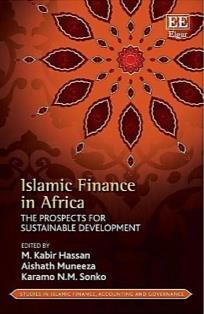
Islamic Finance in Africa discusses the progress, issues, and innovations in African Islamic financial markets. It provides a comprehensive overview of Islamic finance in Africa by exploring legal, regulatory and governance challenges while balancing the issues and innovations found in both Islamic commercial and social finance.
The chapters in the book can be broadly classified into three parts. The first part covers legal, regulatory and governance developments and issues of Islamic finance in Africa, the second part deals with issues and innovations in Islamic commercial finance, and the third explores issues and innovations in Islamic social finance. The editors use a case study format to present the topic in discussion effectively and provide insight into actual or potential areas of growth.
Scholars and Islamic finance stakeholders, including research and education institutes, will find this book invaluable in understanding this important topic and region. In depth case studies allow the reader to zoom into selected markets to understand issues/innovation in detail. This book also will be useful to policymakers and regional standard setting bodies, including multilateral and humanitarian agencies, in understanding the potential of Islamic finance in financial inclusion and resolving humanitarian crises.
About the Authors: Edited by M Kabir Hassan, Professor of Finance, Department of Economics and Finance, University of New Orleans, USA; Aishath Muneeza, Associate Professor, School of Graduate and Professional Studies, INCEIF University, Malaysia; and Karamo N M Sonko, President and Founder, WellBoring, UK
About the Author: Ezzedine Ghlamallah graduated from Université de Droit et de Sciences politiques de Strasbourg, where he obtained an Executive MBA in Islamic finance He holds a Master's degree in finance, accounting, taxation, and wealth management from Université d'Aix-marseille He is also a graduate of the Ecole Nationale d'Assurance de Paris, in banking, finance, and insurance Since 2014, he has been teaching Islamic finance and management sciences courses in numerous schools and universities
FINANCIAL INSTRUMENTS AND CASH WAQF: BRIDGING ISLAMIC FINANCE WITH SUSTAINABLE DEVELOPMENT GOALS
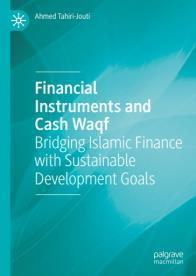
ISLAM ET ETHIQUE DES AFFAIRES ECONOMIQUES ET FINANCIERES

Cet ouvrage a pour objectif d’apporter au lecteur une compréhension globale du système économique et financier islamique qui représente également un nouveau champ de recherche académique. La première partie est consacrée aux fondements ainsi qu’aux enjeux et perspectives de développement du système financier islamique. La seconde partie est dédiée à l’identification des thématiques de recherches dominantes en économie et finance islamiques.
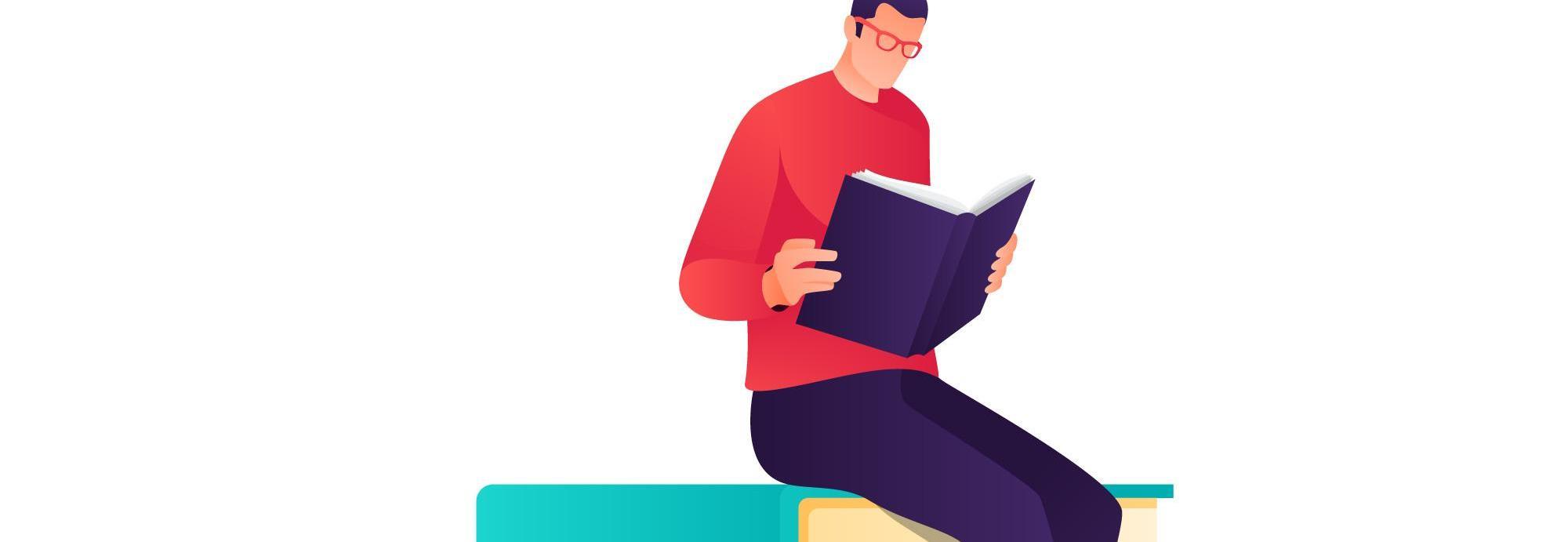
Some of these product structures involve the collection of Zakat. The book's third part presents the methodology to bring all these product structures together in a national Waqf cash ecosystem targeting the SDGs. The objective of this ecosystem is to increase the impact of the different initiatives and instruments. In addition, the third part of the book introduces the concept of offshore Waqf centres and the methodology for designing and implementing them. These offshore Waqf centres aim to connect national monetary Waqf ecosystems and individuals with higher impact investment opportunities. This book will interest academics, researchers and practitioners of Islamic finance, but also sustainable finance. Dr Ahmed Tahiri Jouti is the Managing Partner and founder of Green for South. He is a former Managing Partner and CEO of Al Maali Group (Dubai and Casablanca). Dr Ahmed is an Associate Editor of the ISRA International Journal of Islamic Finance and has published several articles and books, including The Fourth Market Theory and Pathways to Differentiation in the Islamic Finance Industry. He is also a member of the AAOIFI working groups tasked with developing new governance standards for the Islamic finance industry.
About the Author: Dr Ahmed Tahiri Jouti is a founding partner of Green for South He is a former Managing Partner and CEO of Al Maali Group (Dubai and Casablanca) Dr Ahmed is Associate Editor of the ISRA International Journal of Islamic Finance He is also a member of the AAOIFI working groups tasked with developing new governance standards for the Islamic finance industry
88 IFC MAGAZINE-JULY 2022
Istanbul,Turkey



Events
Calendar 2022
RoyaleChulanHotel,KualaLumpur(Malaisie)
AUGUST 16-17 AOÛT
Organiser:CERTEVENTS Contact:https://www.mifc.com/o/mifctheme/images/main-bg.png
NOVEMBER 24-27 NOVEMBER 28-30 KualaLumpur,Malaysia Hybrid Organiser:EmnesEvents SEPTEMBER 21-23 Abidjan,Côted’Ivoire
DexterityEvents&Training/Africa IslamicFintechHub Meet great people Expand your Knowledge Impact your Business NEWS-MAGAZINE-TV-PODCAST-FORUM
Organiser:IstanbulCommerceUniversityandIstanbul SabahattinZaimUniversity Contact:https://www.cantonfair.net/event/3934-oichalal-expo
Organiser:


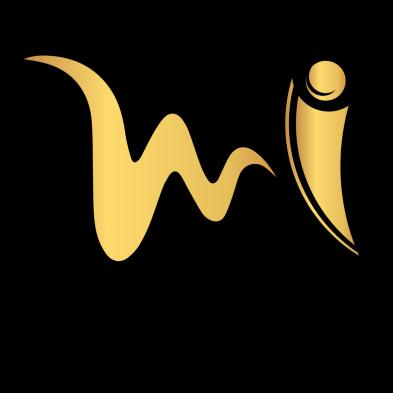
 By Sory TOURE
By Sory TOURE















































































 Sory TOURE, IFC MAGAZINE
Sory TOURE, IFC MAGAZINE



























 ABIDJAN
ABIDJAN













 Abidjan Takaful Conference ATC: Welcoming and settling down of guests, speeches by officials, Teach-In, Panels, Exchanges, Interviews... Review some pictures highlighting significant moments of this ceremony which was a first of its kind!
Speech delivered by Mrs Henri Maria, representative of the Mayor of Plateau.
Mr Mamadou Koné, CEO Allianz CI Assurances, President of ASACI
Panel sur Regulation of Takaful in the CIMA Zone with Mr Ziemogo Ouattara (left); Mr Boubkeur Ajdir (Centre); Mrs Maguette Sakho (right).
Country Representative.
Arrival of Imam Daoud Koné, Executive Secretary of COSIM and President of Charia Supervisory Committee de Supervision Charia of Leadway Takaful.
Abidjan Takaful Conference ATC: Welcoming and settling down of guests, speeches by officials, Teach-In, Panels, Exchanges, Interviews... Review some pictures highlighting significant moments of this ceremony which was a first of its kind!
Speech delivered by Mrs Henri Maria, representative of the Mayor of Plateau.
Mr Mamadou Koné, CEO Allianz CI Assurances, President of ASACI
Panel sur Regulation of Takaful in the CIMA Zone with Mr Ziemogo Ouattara (left); Mr Boubkeur Ajdir (Centre); Mrs Maguette Sakho (right).
Country Representative.
Arrival of Imam Daoud Koné, Executive Secretary of COSIM and President of Charia Supervisory Committee de Supervision Charia of Leadway Takaful.











 Panel on MicroTakaful, Islamic microfinance, Waqf and Zakat in Africa with Dr Dosso Mafini, Mrs Maguette Sacko and Dr Sylla, Board member, Fondation Waqf et Zakat de CI.
Mrs Maguette Sakho (right) and Mrs Masséni Barry (left), Presenter at Al Bayane TV and Moderator of the Panel CEO POWER TALKS: Women Leaders in Islamic finance.
Panel on MicroTakaful, Islamic microfinance, Waqf and Zakat in Africa with Dr Dosso Mafini, Mrs Maguette Sacko and Dr Sylla, Board member, Fondation Waqf et Zakat de CI.
Mrs Maguette Sakho (right) and Mrs Masséni Barry (left), Presenter at Al Bayane TV and Moderator of the Panel CEO POWER TALKS: Women Leaders in Islamic finance.












 Dr Hassan Bachir, Founder and ex-CEO of Takaful Insurance of Africa (Kenya), joined the discussion during the Panel Dialogue with a pioneer of Takaful, together with Mr Momodu Joof, CEO of West Africa Takaful (Gambia) and Dr Dosso Mafini, the moderator.
Mr Said Amaghdir, DGA, Winéo Asset Management (Morocco), giving his contribution during a Panel on the New regulatory framework of the Islamic capital market in the WAEMU zone.
Mr Radhouane Ben Amara, Deputy MD Amana Takaful (Tunisia), contributed to the Panel on the New regulatory framework of the Islamic capital market in the WAEMU zone.
Contribution from Mr Chiheb Ghanmi (Partner, Financial Services à GAC Audit et Conseil) during the Panel on the New regulatory framework of the Islamic capital market in the WAEMU zone.
Mrs Fatou Jallow, CEO of Takaful Gambia (Gambia), partaking in the Panel CEO POWER TALKS: Women Leaders in Islamic finance.
Dr Hassan Bachir, Founder and ex-CEO of Takaful Insurance of Africa (Kenya), joined the discussion during the Panel Dialogue with a pioneer of Takaful, together with Mr Momodu Joof, CEO of West Africa Takaful (Gambia) and Dr Dosso Mafini, the moderator.
Mr Said Amaghdir, DGA, Winéo Asset Management (Morocco), giving his contribution during a Panel on the New regulatory framework of the Islamic capital market in the WAEMU zone.
Mr Radhouane Ben Amara, Deputy MD Amana Takaful (Tunisia), contributed to the Panel on the New regulatory framework of the Islamic capital market in the WAEMU zone.
Contribution from Mr Chiheb Ghanmi (Partner, Financial Services à GAC Audit et Conseil) during the Panel on the New regulatory framework of the Islamic capital market in the WAEMU zone.
Mrs Fatou Jallow, CEO of Takaful Gambia (Gambia), partaking in the Panel CEO POWER TALKS: Women Leaders in Islamic finance.






















